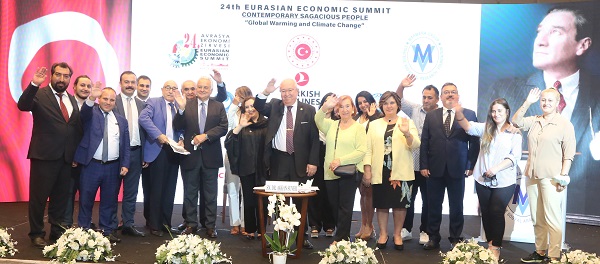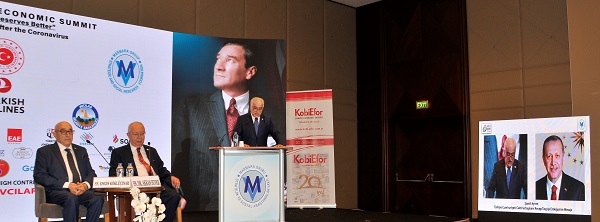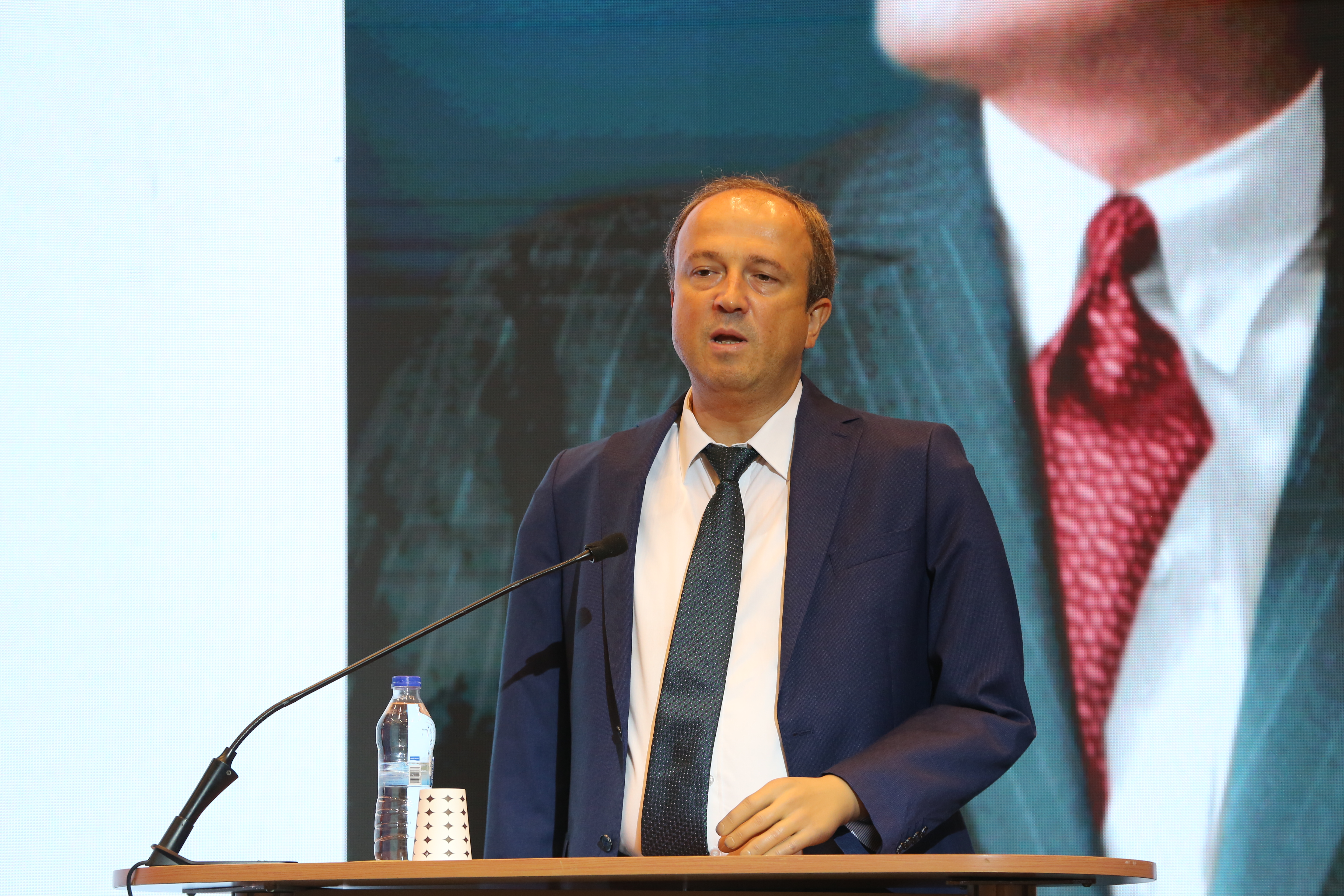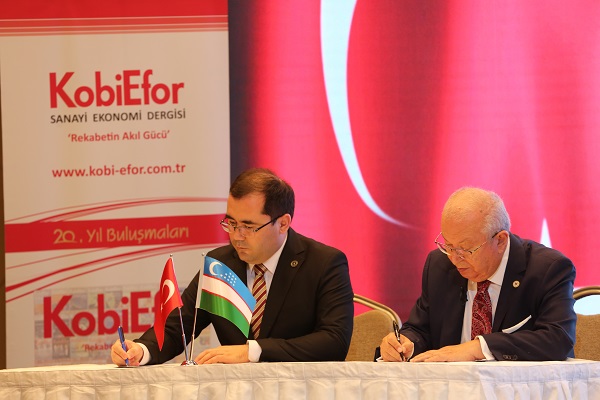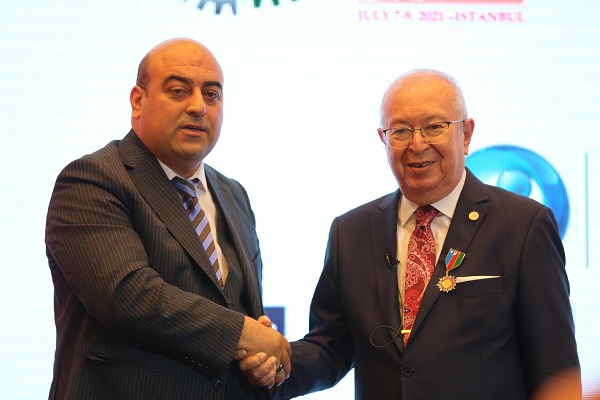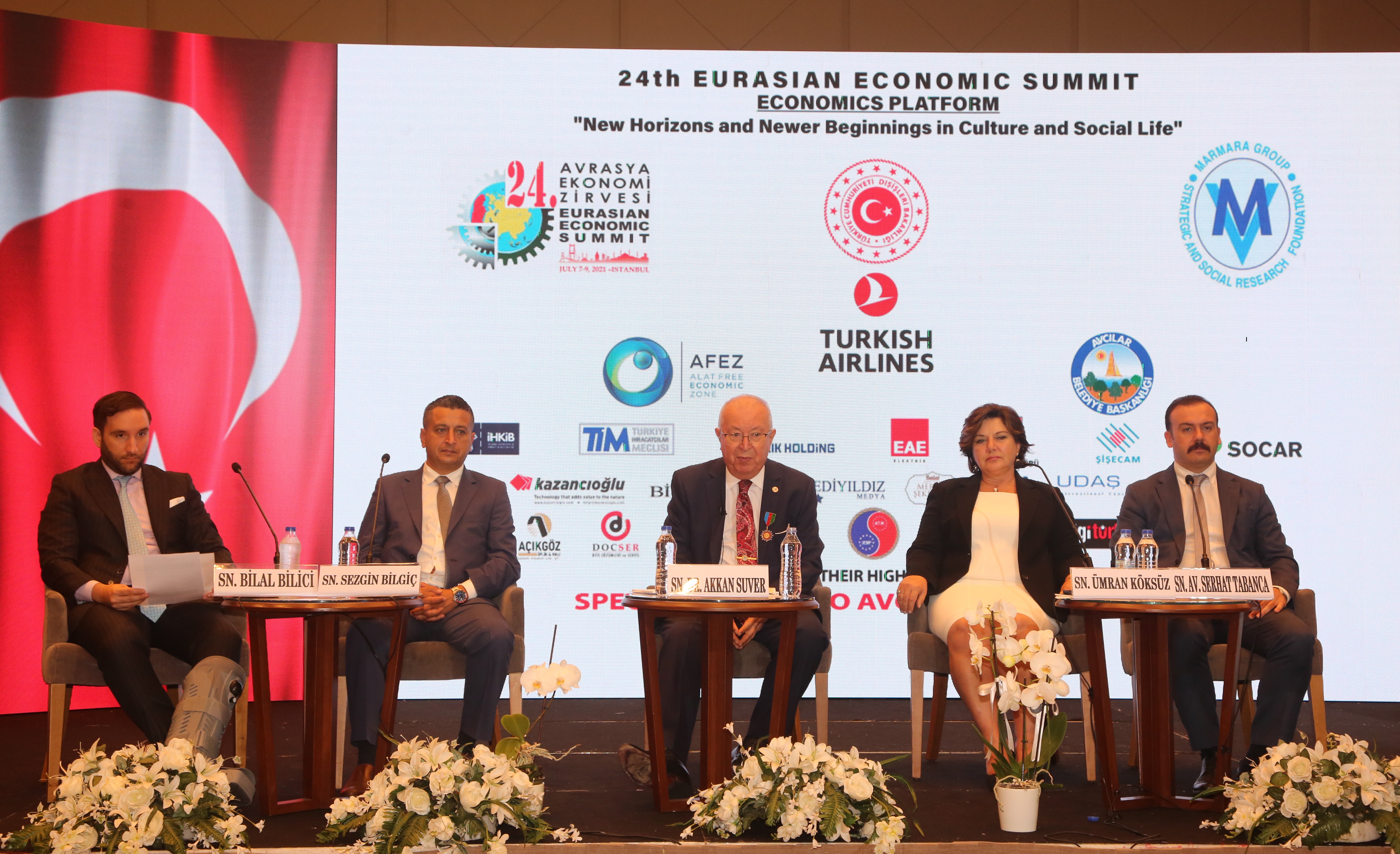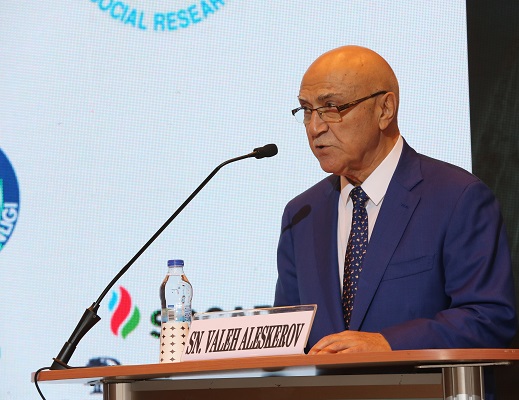The 24th Eurasian Economic Summit was held with the participation of 41 countries
24th Eurasian Economic Summit
The 24th Eurasian Economic Summit, which started its work with the messages of President of Turkey Recep Tayyip Erdoğan and President of Azerbaijan Ilham Aliyev, was held with the idea of "Humanity Deserves Better". To the 24th Eurasian Economic Summit; 41 countries from Angola to the People's Republic of China, from Pakistan to Germany, from Mongolia to the USA attended. Among participants there were Presidents, Speakers of Parliaments, former Presidents and Ministers, Members of Parliaments, Businessmen, Academicians and Religious Leaders.
1st Day-1st Session: Openning Ceramony
President of the Republic of Turkey Recep Tayyip Erdoğan attended our opening ceremony with his messages. The message of President of the Republic of Turkey, Recep Tayyip Erdoğan, was read by MP from Istanbul and General Coordinator of Eurasian Economic Summits, Şamil Ayrım.
Dear president,
Dear guests,
I greet you with my most heartfelt feelings and respect.
I thank you for your kind invitation and wish you a successful Eurasian Economic Summit.
I congratulate the Marmara Group Foundation, which organized the summit and I would like to express my gratitude in advance to all the participants who enriched the content of the summit with their valuable ideas, observations and criticisms.
It is understood that the Eurasian Economic Summit, which is going to be held for the 24th time this year, will provide a basis for productive discussions in a wide range from health to climate change, from culture to energy security.
The results of the summit, which was held at a time when the coronavirus epidemic opened the door to serious changes in the global economic and political structure, will be a guide for both us and our relevant institutions.
Thanks to the strong infrastructure it has established in the last 19 years, thank goodness, Turkey has successfully managed the epidemic process, which has been described as the biggest health crisis of the last century.
There were no problems in health services, and we did not allow any weakness in other areas, from public safety to production, from agriculture to investments.
With the measures we took timely and our dynamic epidemic management, we did not let the wheels stop, especially in the economy.
Despite the unfavorable global economic climate, disruption in supply and logistics chains, and increasing protectionism, we closed 2020 with growth. Last year, we became the second country with the highest growth rate in the G-20, with a rate of 1.8 percent.
Again in this period, we were among the states that increased industrial production the most in the G-20.
Export and first quarter growth figures announced last week show that our country continues its success by increasing it in 2021.
Leading indicators for the second quarter figures point to record growth.
We will bring Turkey one step closer to its goals by making the most effective use of the window of opportunity that the epidemic process has opened for our country.
As we move forward in line with our 2023 goals and 2023 and 2071 visions, every segment of our society, from the business world to our universities, from civil society to politicians, has important duties. We see that we can only turn our ideal of “Great and Strong Turkey” into reality by joining forces and benefiting from each other's ideas.
I believe that the 24th Eurasian Economic Summit, organized under the leadership of the Marmara Group Foundation, will further strengthen our struggle. With these thoughts in mind, I wish the Summit to be successful again, and I present my love and respect to all the participants who participated in the program online in your person.
Recep Tayyip ERDOĞAN
President of the Republic of Turkey
.jpg)
Azerbaijani President Ilham Aliyev's message was delivered by Azerbaijan's Energy Minister Perviz Shahbazov.
Esteemed participants of the Summit!
Ladies and gentlemen!
It is my distinct pleasure to greet you all – heads of states and governments, ministers, members of parliaments and other distinguished guests – at the 24th Eurasian Economic Summit.
Today, we are delighted to participate in a platform that has a great credibility, a high status, and a long history of cooperation and most importantly, always serves the mission of humanity in the world.
The Marmara Group Strategic and Social Research Foundation has played an invaluable role in the establishment of a multifaceted bridge of cooperation between countries and peoples over a large geographic area throughout the years within the framework of the Eurasian Economic Summit.
On this occasion, I would like to congratulate the President of the Marmara Group Strategic and Social Research Foundation, Dr. Akkan Suver, and the representatives of the Marmara Group Foundation.
Distinguished participants!
As you know, His Excellency Mr. Ilham Aliyev, President of the Republic of Azerbaijan, has always praised the effective activities of the Marmara Group Strategic and Social Research Foundation in promoting justice, development, and solidarity in the world and has addressed a letter to the esteemed participants of the 24th Eurasian Economic Summit, organized by the Marmara Group Foundation.
I present the letter to your attention.
President of the Republic of Azerbaijan
To the Participants of the XXIV Eurasian Economic Summit
Esteemed participants of the Summit!
It gives me a great pleasure to extend to you my most sincere greetings and congratulate you with start of the next Eurasian Economic Summit, organized by the Marmara Group Strategic and Social Research Foundation.
The Eurasian Economic Summits have been successfully promoting peace and dialogue for many years and have always made valuable contributions to the development of cooperation in the Eurasian region as a platform for discussing new challenges in the era of globalization. Current iteration of the summit is being held under aegis of “İnsanlık daha iyisini hak ediyor” (Humanity deserves better), which has a great symbolic meaning. Today, each of us is responsible for the well-being of mankind, for the human factor to be at the center of all interests and policies on a global scale, and for people to live in a world they deserve. Along with the pandemic, our world is currently facing challenges due to climate change and a number of risks that threaten global security. All these issues are global, and their solutions are attainable only through global cooperation. Joint efforts on issues that threaten humanity, ensuring justice, regional cooperation, and eliminating inequality are key conditions of the new geopolitical order as well.
As an important factor in this new geopolitical order, Azerbaijan is currently pursuing a strategic path aimed at cooperation, peace, and the establishment of a sustainable security on a regional and global scale, by radically changing the geopolitical and geoeconomic realities in the South Caucasus. Brother Turkey has always supported us in this process, which put an end to crimes against humanity, occupation and paved the way for great development in the region. Our victory in the 44 day Patriotic War and current processes are achievements of the Azerbaijani-Turkish brotherhood and unwavering unity. Most importantly, it is a victory of justice and development that both countries value for themselves. The greatest contribution to the new geopolitical reality is the Shusha Declaration. This historic document formalized the brotherly, friendly, and partner relations between Azerbaijan and Turkey as an alliance. This document which serves as a major guarantor of security and peace is of strategic importance for Eurasia as a whole, including the South Caucasus. Azerbaijan and Turkey are confidently walking together to build a favorable, prosperous, and dignified future for everyone, enabling the effective use of the region's resources, communication, and logistics potential. The global role of our countries in ensuring energy security will also remain as a solid foundation for sustainable cooperation and the well-being of the peoples in Eurasia.
I believe that the discussions to be held at this meeting will be useful in identifying new prospects for cooperation for the benefit of mankind.
I wish every success to the work of the Summit.
İlham ALİYEV
President of the Republic of Azerbaijan
.jpg)
The text of the President of Marmara Group Foundation Dr. Akkan Suver's speech at the 24th Eurasian Economic Summit on July 8, 2021.
I am glad to open the twenty-fourth Eurasian Economic Summits.
As someone who knows the importance of maintaining and sustaining an international event with such modest opportunities for twenty-four years without interruption, I would like to express our gratitude to all of our participants, both at home and abroad, who have shown interest in the Marmara Group Foundation.
I would like you to know that we are saddened to hold this modest event, which has lived for about a quarter of a century, online due to the pandemic conditions we are experiencing today.
However, considering the health conditions we are living in, despite all the preparations we have made from flight tickets to hotel reservations, we have decided to hold the 24th Eurasian Economic Summit online, due to the risk of causing difficulties and restrictions to our guests.
I hope that we will be honored to host you in Istanbul at the 25th Eurasian Economic Summit we will organize next year, and we believe that next year we will show the hospitality that we have not been able to show for two years.
Dear participants,
Humanity is on the eve of a turning point!
At the end of the last year and a half, the Covid-19 pandemic has brought great changes to our planet.
Ideas of living, disconnected from national politics, were destroyed.
Concepts such as global unity, global diplomacy, and global cooperation came to the fore,
I hope that today's geopolitics will develop within the framework of the motto of dialogue and more dialogue.
Because the Covid-19 outbreak has shown us that a problem in China does not only affect China.
Therefore, we need to turn to the idea of how we can make the global stagnation we are living in competitive and lively again through its economic and democratic social dimensions, how we can make it cooperation-centered.
I believe we must seek ways to foster cooperation and competitive development for the peace, prosperity and security of our planet.
I know that global stability, global security, global diplomacy will be the result of a global dialogue.
I would like to emphasize the importance of drawing our roadmap within the framework of the belief that humanity deserves better, with the slogan of “Yes to the fiercest competition but no to conflict”.
I would like to take the advantage of the 24th Eurasian Economic Summit to announce as the Marmara Group Foundation along with our civil society identity that we can deal with complex issues such as economic and social inequalities, climate problems, pandemics, demographic problems with cooperation and dialogue, not cold war models.
The lines between the opposing poles of a possible new cold war are different today than they were in the last century. It is not clear. There are significant differences in the balance of power. My country, Turkey, evaluates these differences in the process of integration with Europe while remaining loyal to the rules of Eurasian geography.
Again I would like to state here that my country, Turkey is contributing more to international economic and social projects, and it creates examples of moral and cultural cooperation with universal values in the region.
On the other hand, instead of an opportunity to weigh the dynamics of the relations of global powers, we should also seek ways for humanity to regain its dynamism and reach the capacity to rediscover itself through global diplomacy and global dialogue.
With the fast developing information technologies, artificial intelligence, quantum computing, environmental concepts, free market economy is taking us to a new world.
After the Second World War, due to the supremacy of the USA, the common communication language of humanity, French disappeared and was replaced by English. The dollar became the common economic exchange tool instead of the sterling. Today, however, the future of the language of communication and the dominance of the dollar is uncertain.
Because the daily use of translation programs and cryptocurrencies on our computers is becoming widespread.
I think that in the near future, the fate of the dollar and the English language will not be different from the British Sterling and the French language.
What is important is the growth and development of new technologies and information with respect to democracy, law and people.
Before concluding my words, I would like to state that we had losses in the days we left behind. We lost Dr. Edward De Bono, one of our members who have made a name in the international arena as Marmara Group Foundation and Eurasian Economic Summits. Again, one of our Founding Members and one of the indispensables of Eurasian Economic Summits, Prof. Dr. Ahmet Samsunlu, Our Former Doyen and Businessman Jak Kamhi, Journalist Kenan Akın, Pharmacist Sabahat Darendeliler, Deputy Gönül Saray, Prof. Dr. Ahmet Vefik Alp and Businessman Sadettin Sükan, all of whom I am in the sadness of sending to eternity. I want you to know that we will always respect the cherished memories of these dear friends and we will not forget them.
Distinguished participants,
The primary topics we will bring to the agenda at our Summit this year are, the stagnation of the economy after the pandemic, the reconstructing of the energy building for the common future of humanity, The Belt and Road Initiative, which we consider as a peace project with climate problems.
In addition to our speakers, we will also listen to the evaluations of Ankara Ambassadors of the countries that are part of the Belt and Road Initiative this year, many of which are celebrating the thirtieth anniversary of their independence, at our Summit.
Again, at the 24th Eurasian Economic Summit, we will have the chance to watch the story of the Alat Free Zone, which was implemented in Baku on the shore of the Caspian Sea, with the presentation of its President, Mr. Valeh Aleskerov.
Yes, despite Covid-19, I would like to end my speech with the words of Sir Winston Churchill, one of the important statesmen of England, with the thesis that humanity deserves better.
He says; Don't waste a good crisis. I respectfully greet your delegation of high participants, and with the belief that we will not waste this crisis, I am starting the works of the 24th Eurasian Economic Summit.
.jpg)
Noting that the international system has undergone a radical and rapid change once again, Yavuz Selim Kıran, Deputy Minister of Foreign Affairs of the Republic of Turkey, stated that we are going through a period of increasing injustice and inequality, and that the gap between rich and poor societies has become more evident with the epidemic. Referring to the Asia Anew Initiative, Kıran emphasized that despite the GNP, we are the second country that provided the most aid in the epidemic, and said, "We have the distinction of being a geography of peace and stability."
Noting that we will contribute to the reconstruction of Azerbaijan's Karabakh region, Kıran mentioned the importance of the Baku-Tbilisi-Ceyhan Pipeline and shared that Turkey ranks 12th in the world and 5th in Europe in renewable energy. Kıran stated that they aim to support the economic development in Turkey with clean energy because humanity deserves better.
.jpg)
Guest Speaker, world-renowned Philosopher Prof. Dr. Ioanna Kuçuradi said, "Peace is a situation in which the two sides do not lead to a confrontation or struggle." Noting that international relations also mean human rights, Kuçuradi noted that human rights precede any kind of relationship in any political unit, emphasizing that potentials make humans different from other living things. Arguing that potentials make people equal in terms of dignity and rights, Kuçuradi said that the pandemic is a process in which humanity and human rights must be protected.
Avcılar Mayor Atty. Turan Hançerli said that Avcılar has been a transit point for centuries at the junction of Asia and Europe, with its port, railway and road connections, 25 minutes from the airport. Stating that the pandemic shows that we need to be more in solidarity, Hançerli said that the world did not give a very good test in this regard and that we saw that we were not prepared. He stated that there is a serious injustice in the world in vaccination, that we have learned to produce solutions together in the pandemic, but that the great crisis is not only limited to the pandemic, and it will not be the last: “We can start to build a resilient city, country, world for all humanity. We must not forget that this must be for the whole world. We have to be together side by side. Summit has been contributing for a quarter of a century to meet the better of humanity.”
.jpg)
Urfi Akbalık, Vice President of İHKİB (Istanbul Ready-to-Wear Clothing and Apparel Exporters' Association), stated that they are closely interested in the issue of sustainable clean energy, the route of trade, and announced that they are nearing the end of the digital transformation project of the Turkish ready-made clothing industry and that they have established a Digital Transformation Center within İHKİB. Noting that the zero carbon target has been set within the framework of the EU Green Agreement and that they are assertive in this regard as the sector, Akbalık said that it is imperative for them to switch to an EU-funded sustainable strategic management model regarding digital transformation. Stating that they plan to make serious investments by developing relations with associations such as the International Ready-made Clothing Federation (IAF), Euratex (European Apparel and Textile Federation), Akbalık expressed that they believe that the Eurasian Economy Summit will show the design power of the Turkish fashion world to the world.
.jpg)
Ambassador, Black Sea Economic Cooperation Organization (BSEC) Secretary General Lazar Comanescu stated that the pandemic has put the business circles in a difficult situation and that they continue their duty to support economic cooperation and that they are in favor of result-oriented cooperation. Noting that they will plan their work until 2030 with a meeting they will organize, Comanescu explained that they cooperate with other international organizations in the PABSEC. Underlining that the Black Sea Region is a complex basin, a region of great importance for the world economy and with a high potential for development, Comanescu noted that the PABSEC undertakes major tasks to develop a healthy economy and that urgent action is needed for economic recovery.
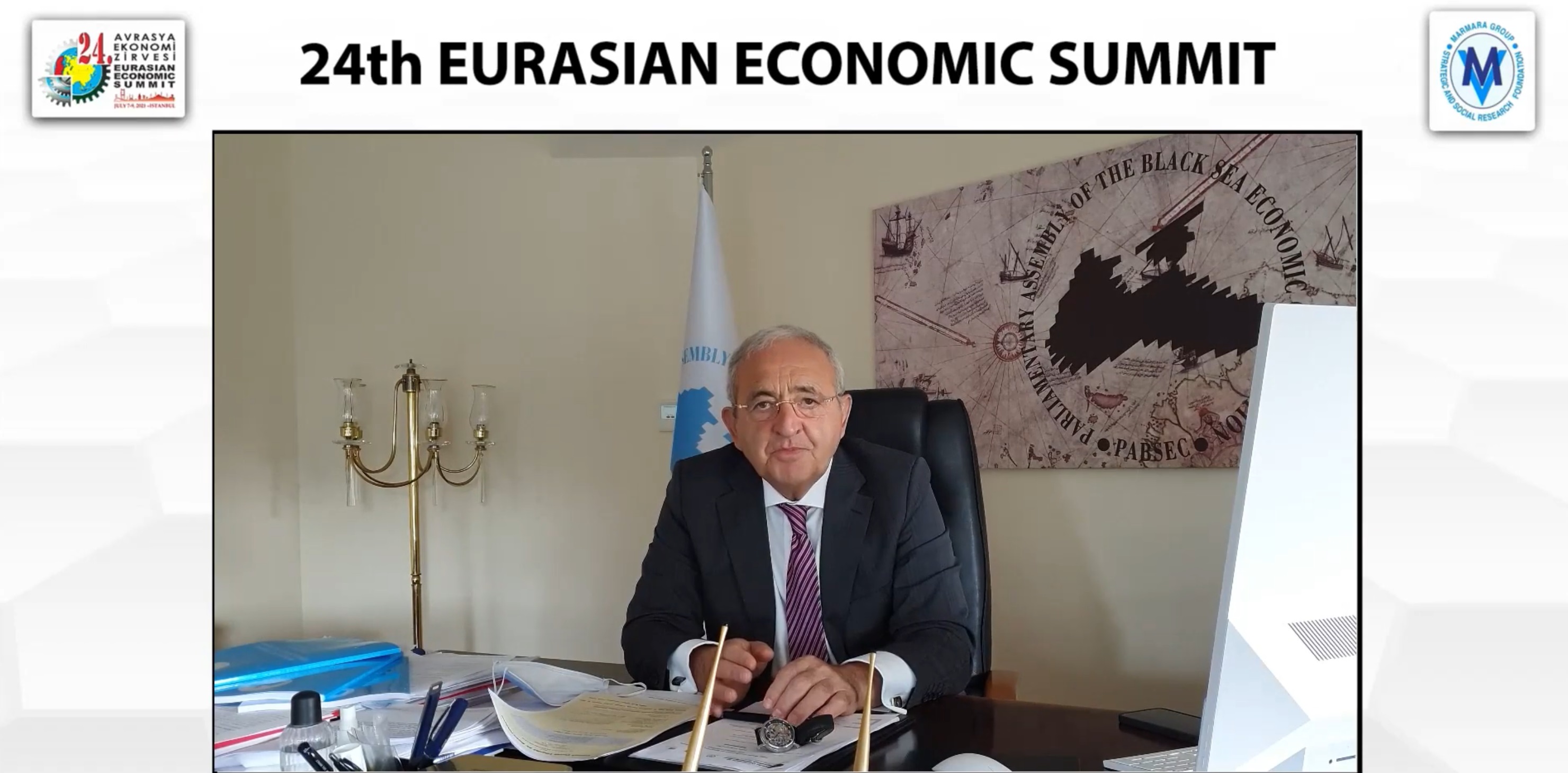
Black Sea Economic Cooperation Parliamentary Assembly (BSEC) Secretary General and Marmara Group Foundation Medal of Honor (2017) Prof. Dr. Asaf Hajiyev, emphasizing the importance of the Black Sea Region, which is located in the middle of the world transportation junction, as a bridge between Asia and Europe, in terms of world politics, said that the oil and energy resources in the Caspian and Black Sea are very strong, but not only the energy richness, but the real richness of the region's multiculturalism. He said: “We are working for the wealth of humanity. Security and peace in the region should also be ensured. Wars are destroying our economy and refugees are emerging. One out of every 50 people in the Black Sea Region is a refugee, 1 out of 20 people in Turkey, and 1 out of 10 people in Azerbaijan is a refugee. This is the refugee problem; half a trillion (500 billion) dollar problem. Legislation must be corrected so that the problem can be solved.” Tolstoy said, “Happy families are different from unhappy families. Reminding his statement, "The problem of unhappy families must be resolved," Hajiyev said that the conflict in the Karabakh conflict has ended, and that, above all, the territorial integrity must be respected first, Presidents; with the declaration signed by İlham Aliyev and Recep Tayyip Erdoğan, he declared that their main goal is to develop the region. Emphasizing that the energy lines from the region reach Europe, Hajiyev said, "The Black Sea should not divide us, but should unite us."
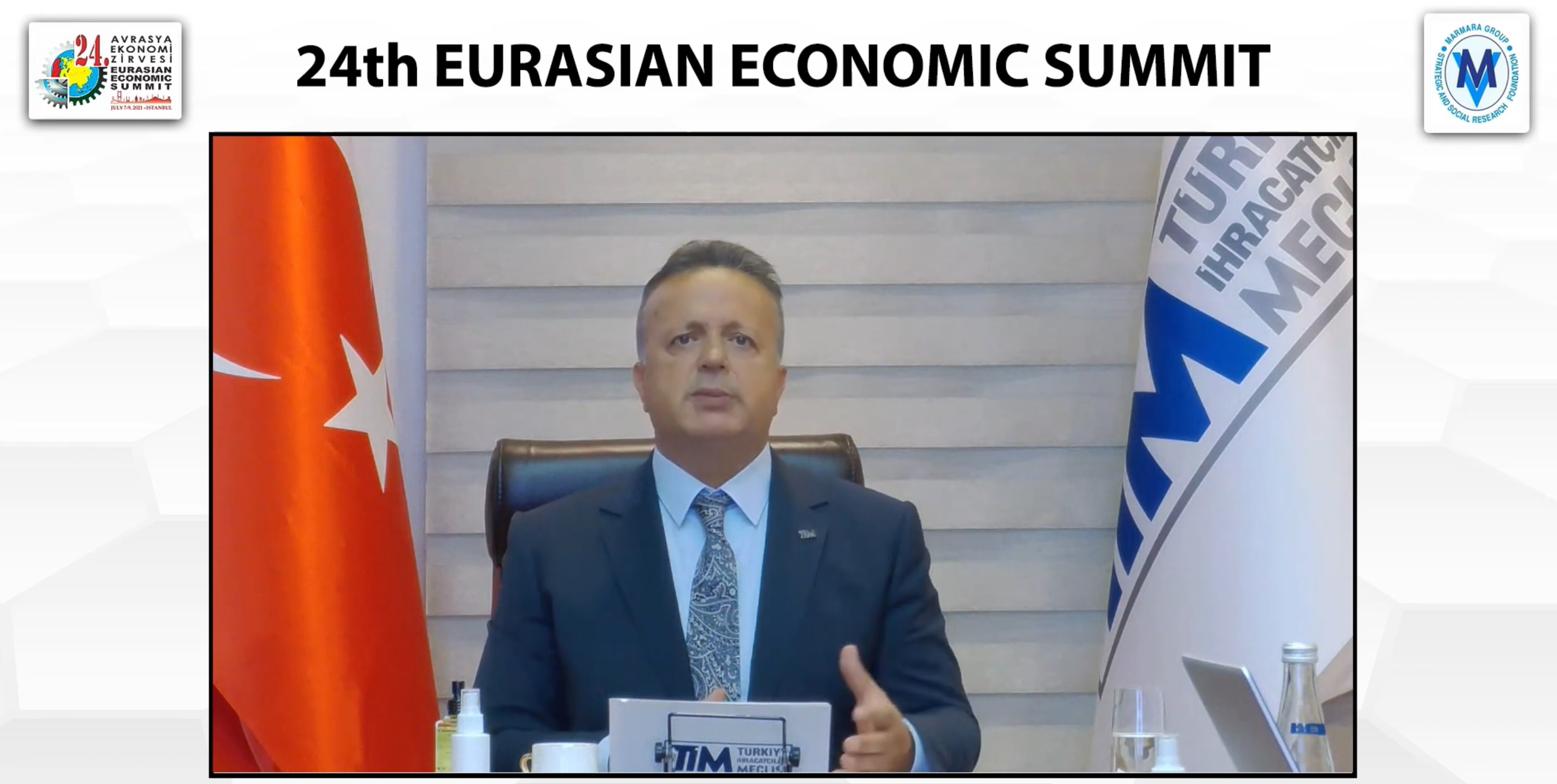
TIM (Turkish Exporters Assembly) President İsmail Gülle explained that the figures in global trade recovered at a rapid pace, the recovery continued, but the sense of confidence was damaged considerably, and that as Turkish exporters and manufacturers, they broke export records on a monthly basis in the last 5 of the 6 months: “19 With the figure of 773 million dollars, our exports increased by 47 percent in June. Thus, we broke all records on a monthly, quarterly, 6-month and annual basis. The Turkish exporter has made an extraordinary entry into the post-Covid-19 era by reading the transformation in their supply chains well.” Noting that TİM has reached the limit of 200 billion dollars in 12-month exports, Gülle said that with the target of 'Turkey with Foreign Trade Surplus', they first achieved sustainable exports, and now they are working to achieve a sustainable foreign trade surplus. Emphasizing that we need to consider the trends of the post-pandemic era, Gülle emphasized that buyer countries have reshaped their expectations from suppliers by highlighting concepts such as green production, safe production and safe trade: It adopted the EU Climate Law, which aims to reduce greenhouse gas emissions. With the European Union, our biggest export partner, we need to carefully monitor the legal process and take quick action in order not to disrupt our exports.” Gülle emphasized that Turkey, which realizes only 1% of global carbon emissions and is advantageous in increasing its market share, is a healthy, environmentally friendly and "reliable" supplier as seen once again during the global epidemic period. Touching on the work of TİM, Gülle also shared that they declared 2021 as the year of sustainable production-sustainable exports at TİM: “We say that Turkey will rise with exports. Undoubtedly, this rise will not be alone, but together with the whole of Eurasia. In addition to all these activities, we will continue to work within the framework of the win-win principle by giving more weight to regional cooperation in the new period. Eurasia will lead the world that deserves better; it is a very valuable region.”
.jpg)
President of the Bosnia and Herzegovina Federation, Marinko Cavara, who spoke in the Welcoming Speech of the Foreign Guests to the Summit Participants, said that the epidemic taught us a lesson about the vulnerability of our security and that we, as humanity, failed in solidarity. Reminding that we all live close to each other on our common small planet, Cavara noted that the solutions continue to travel and communication, and that if the coronavirus does not destroy us, the lack of contact will destroy us. Emphasizing that the impact of the pandemic cannot be measured, Cavara stated that it is up to us to see the crisis as an opportunity.
Eldar Tulyakov, Director of the Uzbekistan Center for Strategic Development; stated that according to the reports of national and international observers, Uzbekistan invests heavily in its own resources and allocates additional finance for large projects. Stating that Uzbekistan will be ready to participate in bilateral cooperation in the Belt and Road project, Tulyakov stated that the project will be a sustainable development model and infrastructure projects will contribute to the development of Central Asia.
Azerbaijan Journalists Union awarded Dr. Akkan Suver the "Veteran Journalist Gold Medal" for his work on Azerbaijan friendship. Emil Nasırlı, the owner of Azerbaycanım Magazine, presented the medal to Dr. Suver and stated: "Akkan Suver is the son of Azerbaijan. Not only us journalists, every Azerbaijani knows this, knows and loves him. Because he is a lover of Azerbaijan."

The Opening Ceremony ended with the Barcovision show of the İHKİB Fashion Fashion Show (Designer Ceren Ocak).
Day 1 Sessıon 2: Economy Sessıon
Marmara Group Foundation President Dr. Akkan Suver, Members of the Marmara Group Foundation Board of Directors and Business People; Sezgin Bilgic, Adv. Serhat Tabanca, Members of the Marmara Group Foundation Board of Trustees and Business People; Ümran Köksüz and Bilal Bilici were present.
Valeh Aleskerov, General Manager of Alat Free Economic Zone, made a speech introducing the international free zone to be established in Baku. In his speech, Valeh Aleskerov presented the great investment project, which will be realized on July 22, 2022, to the participants of 41 countries.
Good morning (afternoon/evening) ladies and gentlemen,
Today I would like to share with you our vision for Alat Free Economic Zone which was established by the decree of the President of the Republic of Azerbaijan dated 22 May 2020 and has officially been in operation already for a year. I will share with you details of this vision and our strategic intent in developing AFEZ, potential investors and reasons for them to invest into AFEZ, and more importantly economic benefits and privileges that will flow from the investments to our investors, our country, and our people.
Azerbaijan aims to achieve knowledge-based and internationally competitive economy in upcoming years. To make it happen we need to:
- further strengthen the role of non-oil sector in the economy,
- establish a world class business environment by continuing the development of energy, transportation and logistics infrastructure,
- become a diversified and export-oriented, as well as knowledge-based and high tech-based economy creating high added-value, and
- become a competitive participant in international economic relations.
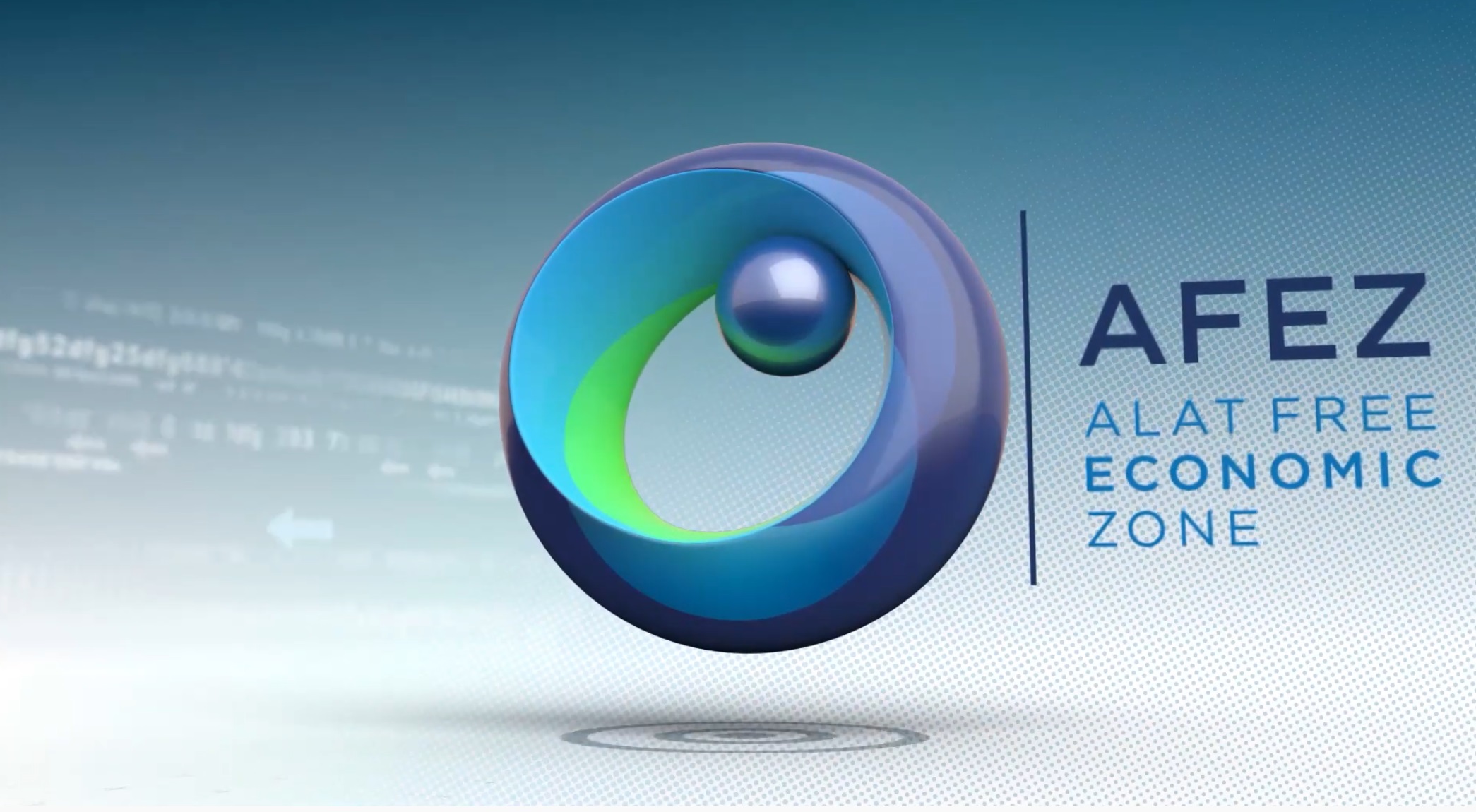
Azerbaijan moves firmly towards the goals above. And AFEZ has a key role to turn the vision into reality. In this regard, the President of the Republic of Azerbaijan has given full support to the development of AFEZ as a world class investment location and key facilitator of future developments. By the Presidential decree, the AFEZ Authority has been established and assigned with planning, development and governance of AFEZ.
As the chairman of the Board of the AFEZ Authority, I would now like to draw your attention to legal basis of AFEZ, potential investors and their reasons to invest into AFEZ, incentives that will be provided for the investors and property solutions in AFEZ.
What is the legal basis of AFEZ? The Law of the Republic of Azerbaijan on AFEZ sets out legal framework for the establishment, operation, development and governance of AFEZ. According to the Law on AFEZ, administrative and legal relations between the AFEZ Authority and AFEZ investors, as well as any other day-to-day activity at AFEZ are regulated under AFEZ internal regulations. Hence the legal basis of AFEZ is the AFEZ legislation which is comprised of the Law on AFEZ and AFEZ internal regulations. The AFEZ legislation has been prepared from the perspective of potential investors and best international practice. In case of any conflict between the AFEZ legislation and Azerbaijani law, the AFEZ legislation prevails.
To provide certainty to investors and to demonstrate precedence of AFEZ legislation, we have made changes in more than 80 laws of Azerbaijan, particularly tax law, customs law, etc. to clearly acknowledge that AFEZ legislation takes precedence over those laws. By ensuring the best business environment for investors the purpose of the legal basis of AFEZ is to provide AFEZ investors with everything they need to do a successful business, further develop and expand their businesses.
What type of investors do we welcome at AFEZ, who will benefit from the fiscal and non-fiscal incentives? They are businesses engaged in high value-added and export-oriented manufacturing and services, internationally traded activities, using innovative technologies and management experience. Having said that, we will pay great attention to every potential investor’s proposal and treat it with respect. Thus, we will also be ready to cooperate with those who might not have required capacity today, yet have potential to advance himself towards that direction.
Now I will turn to the fiscal and non-fiscal incentives that are offered to AFEZ investors. One of the key benefits is the absence of any tax on a business in AFEZ. In addition, import by AFEZ investors of any products or services from a foreign country and export by AFEZ investors of any products and services to a foreign country is exempt from customs duties and taxes.
Another benefit in AFEZ is a particular-purpose customs point which will implement trade facilitation-based customs regime.
.jpg)
Incentive package for investors also includes the following:
- No restrictions on foreign currency or profit repatriation of investors related to their activities in AFEZ,
- Investor property is immune from nationalization or other restrictions,
- Full protection of intellectual property rights,
- International standard independent dispute resolution.
These incentives will be available for both new investors of AFEZ and to support the subsequent expansion and growth of their companies at AFEZ. In our eyes, an AFEZ investor is a family member of AFEZ for life.
Now I would like to briefly inform you of property solutions at AFEZ. AFEZ is being established in a total site area of approximately 850ha, spread over three sites, which is adjacent to highways, railways and the Port of Baku. Master Plan for 850ha area was completed in 2020. Additionally, detailed design for 60ha area which is the first stage of the development is ready. Construction and utility supply works have already been commenced in this 60ha area and these works will be completed till July 2022. Thus, we will provide our investors with complete infrastructure and ready-to-use industrial plots.
Plus, by July 2022 customs point and customs services center, AFEZ Authority building, and one-stop shop business center, advance office accommodation for investors, utility services center will be ready and in operation.
We are now in close contact with potential investors by exchanging information and convening meetings to start future cooperation between ourselves even before the construction works are completed.
We are sure that we will have detailed and informative meetings with all businesspersons attending this summit as well, and there is no doubt that these meetings will provide profitable and endless opportunities for our future cooperation.
Thank you for your attention.Ambassador of Bangladesh in Ankara Mosud Mannan
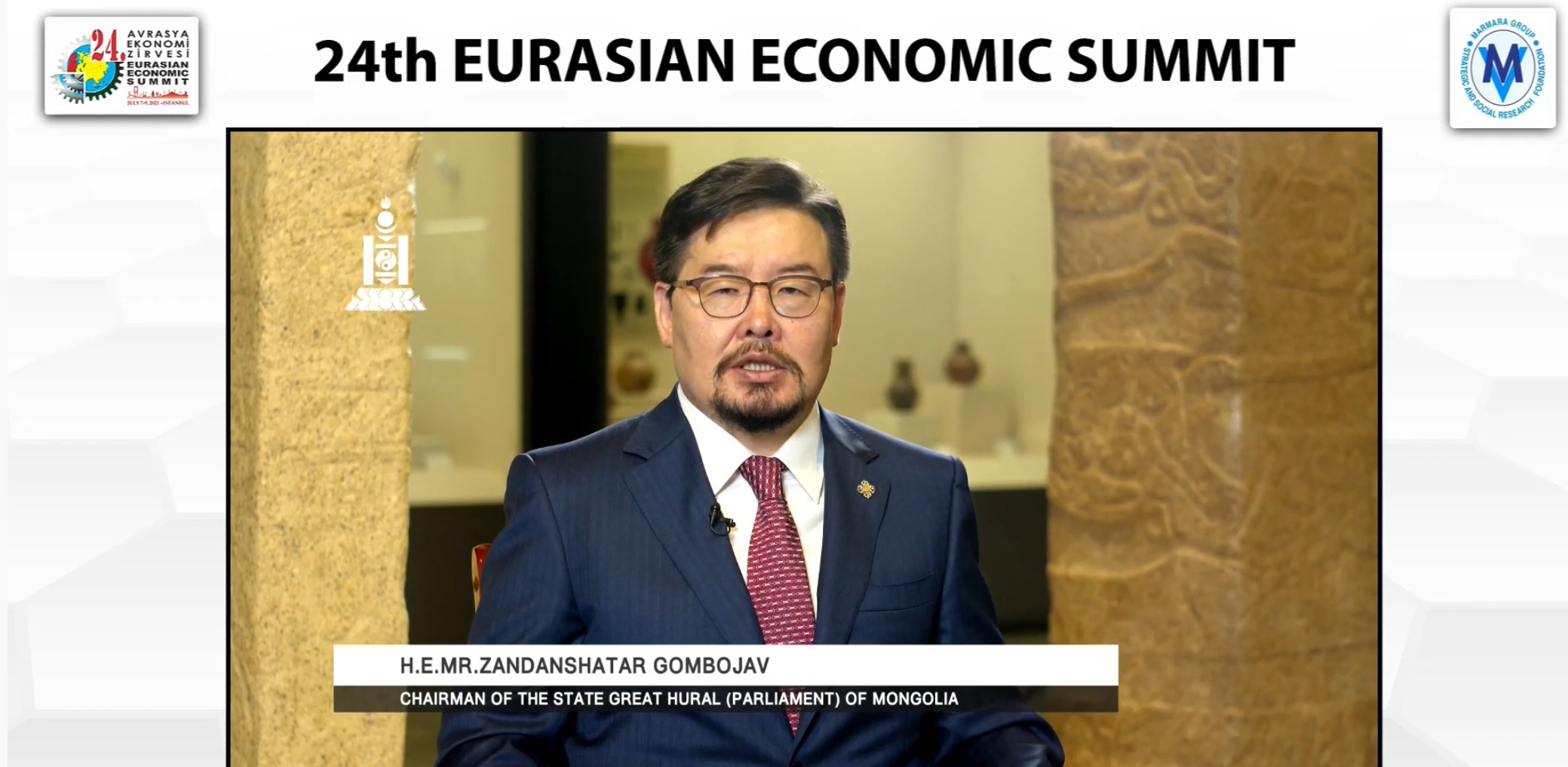
President of the Mongolian Parliament Zandanshatar Gombojav emphasized that the epidemic shows that we need to fight against the problems collectively, and emphasized that we need to work together to eliminate the damages of natural disasters and climate change and prepare for a brand new post-pandemic world.
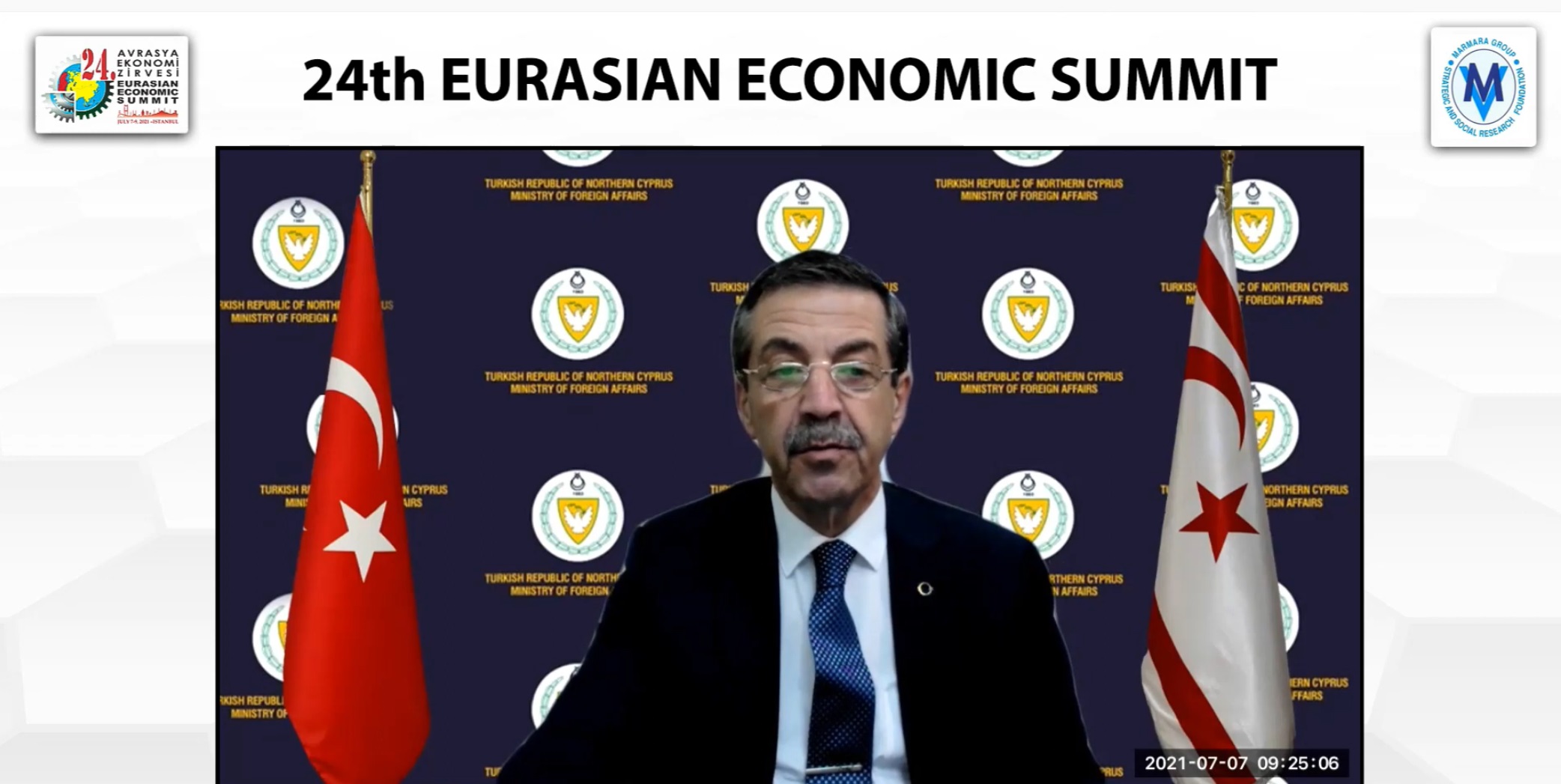
TRNC (Turkish Republic of Northern Cyprus) Foreign Minister Tahsin Ertuğruloğlu emphasized the importance of TRNC in terms of tourism and said that they prepared their policies for the post-pandemic period. Ertuğruloğlu, who stated that Turkey supports the TRNC a lot in health and vaccination, said that the UN has called on both sides regarding the Cyprus problem and that they are ready for a new meeting: "We need to have a result-oriented negotiation."
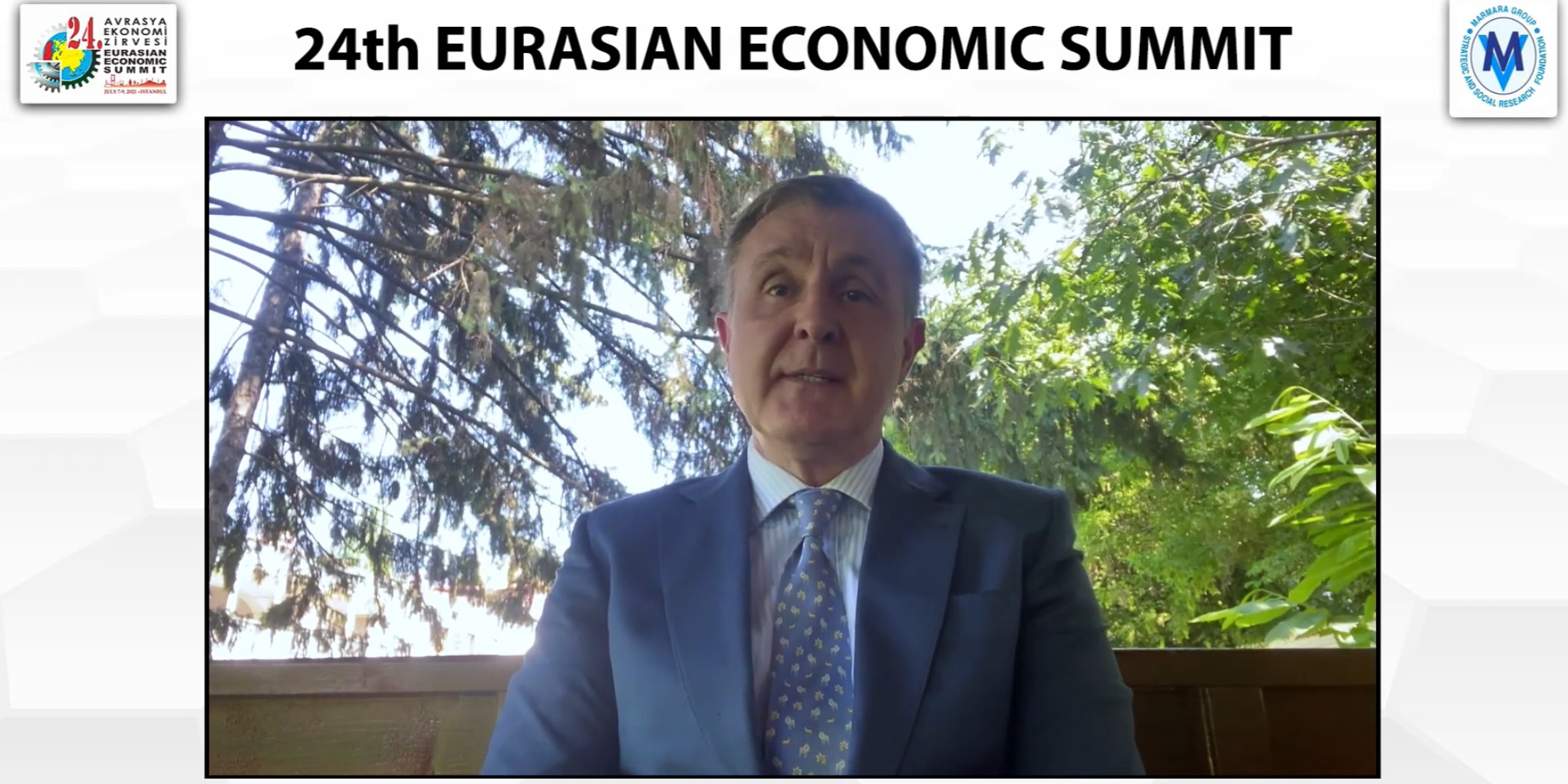
Pointing out that the decreasing pollution levels have saved many lives, Prince Radu of Romania said that the pandemic killed 4 million people, but scientists said that air pollution kills 7 million people every year. Stating that humanity understands the importance of empathy, self-sacrifice and citizenship, and countries show a spirit of unity with the pandemic, Prince Radu said, "If we cannot solve this, how will we overcome the climate crisis?" said. Emphasizing that the common point of our countries is that they have a vibrant, creative and very large young population, Prince Radu mentioned the difficulty of a competitive education system and employment for such a high population. However, noting that this is an incredible resource, Radu shared that he thinks a balanced and determined action after the pandemic is important for our families and us.
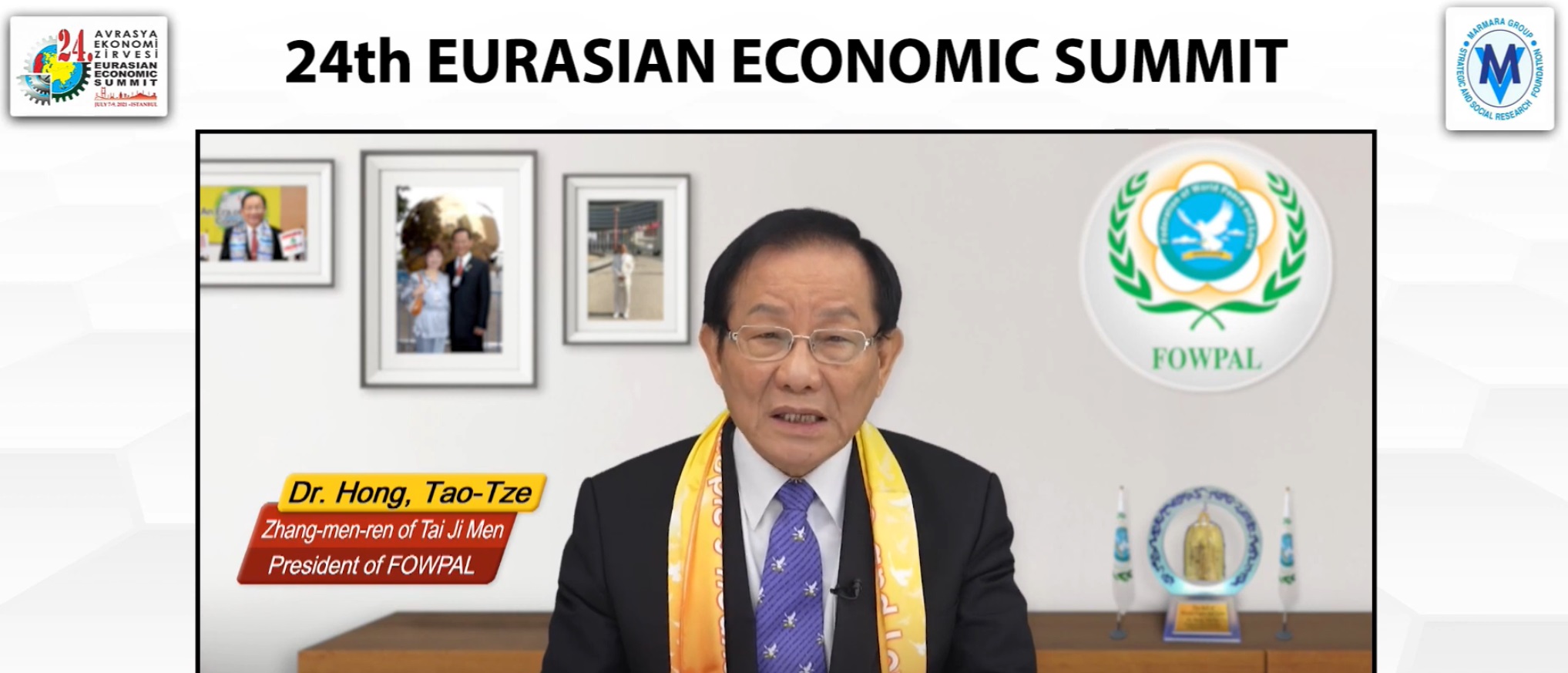
President of the World Federation of Peace and Love (USA) Dr. Hong Tao-Tze emphasized that we need to work together to maintain peace and said, "The direction of the heart, shapes the world." Stating that conscience is the key to peace and prosperity in the post-pandemic world, Tao-Tze noted that if we unite and treat each other with compassion and sensitivity, conscience will awaken and conscientious actions activate positive energy in the world:
“We must work with dedication and sincerity to achieve balance and mutual prosperity.” Pointing out that we urgently need global solidarity, Tao-Tze said that peace is a prerequisite for security, and that economic growth and sustainable development are only possible with security: “A Chinese proverb says; “Happiness comes after disaster, disaster is hidden in happiness.” We should work together for the benefit of each other. The most effective weapon in the pandemic is conscience. We will heal the world with conscience and love.”

The Prime Minister of Kyrgyzstan (2015-2016) Temir Sariev said that the global world needs joint and real efforts in accessing vaccines and other issues that concern humanity. Mentioning that they had incredible difficulties while carrying out the reforms, Sariev said that Kyrgyzstan is a mountainous country, has a great potential in the field of hydroelectricity and uses only 10 percent of this potential, that the farmers do not use chemical fertilizers and produce environmentally friendly products. Sariev also emphasized that Kyrgyzstan is at the very center of the great Silk Road Project.
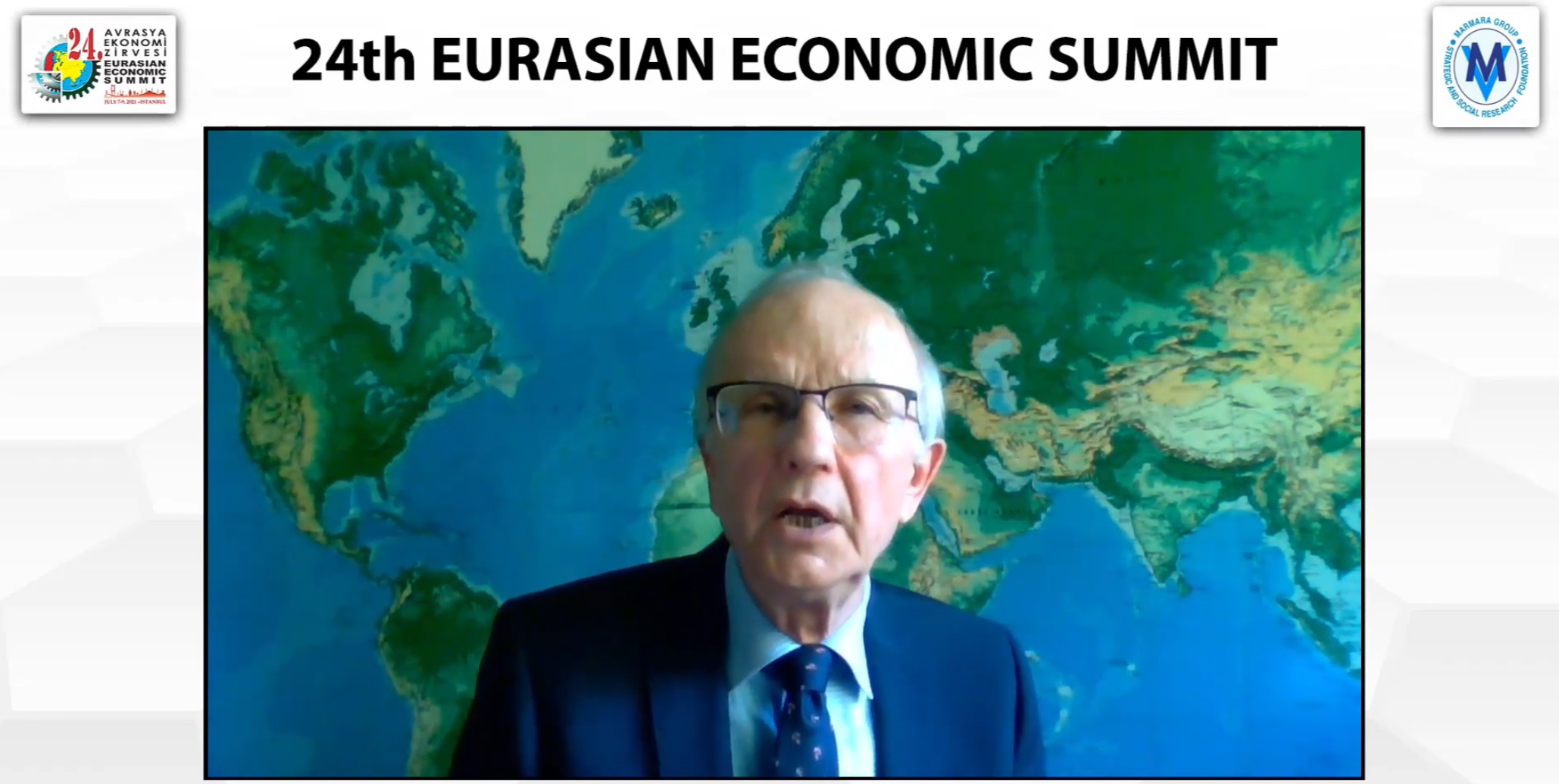
Polish Minister of Finance, Deputy Prime Minister (1994-1997 and 2002-2003) Prof.Dr. Grzegorz W. Kolodko, noting that not everyone is equal due to economies of scale when it comes to liberalization and integration, said, “We want win-win”. Stating that the situation should not be 2-0 for China, Kolodko emphasized that the change regarding how inclusive globalization can be more equitable should be continuous. Referring to the knowledge-based economy, Kolodko stated that Turkey, which is a part of the West, should play a much more active and positive role with its geopolitical position and bring the West and East together.
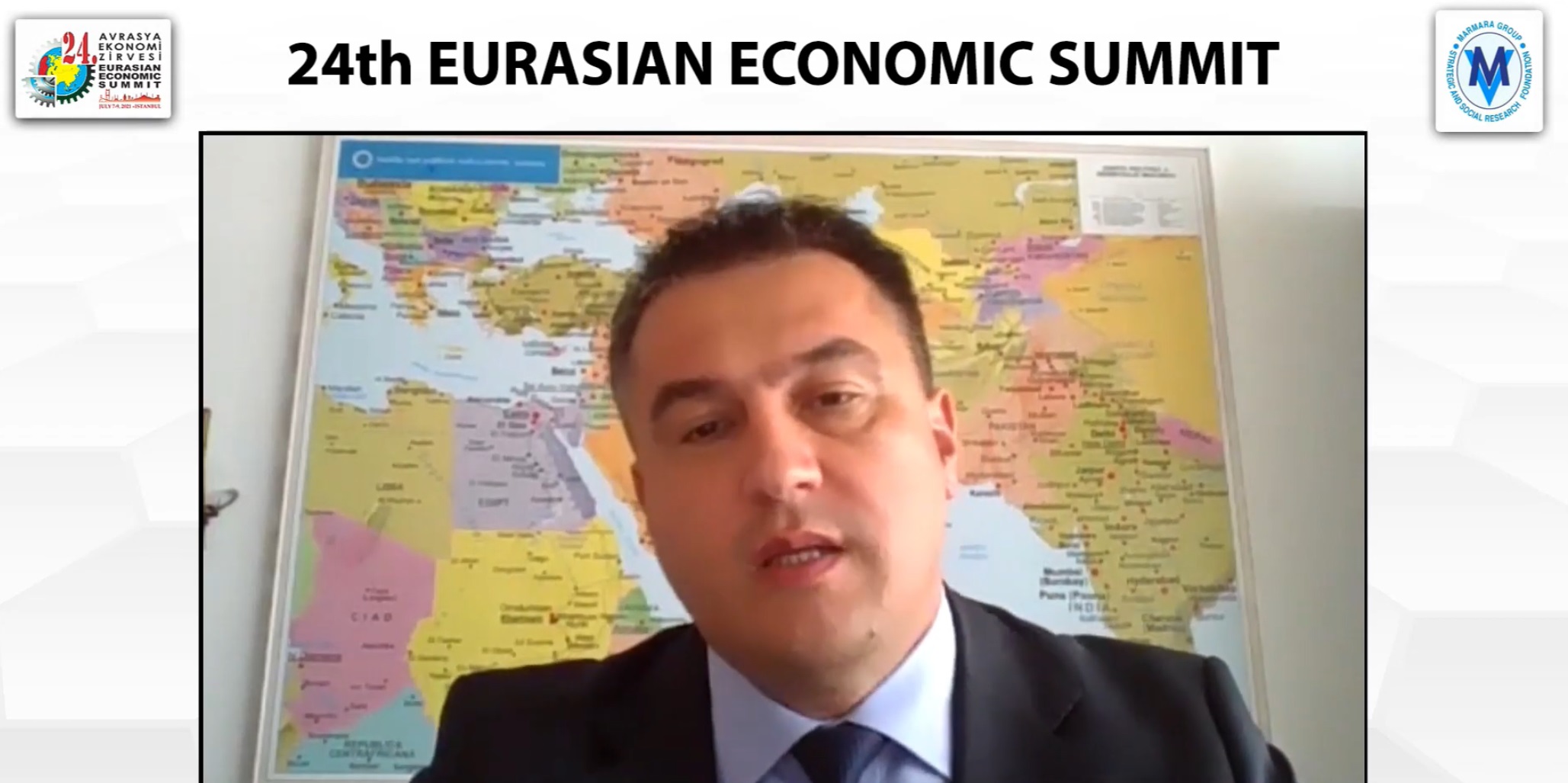
Flavius Caba-Maria, President of the Middle East Policy and Economics Institute (Romania), said that they saw that regionalization is accelerating gradually, regions are coming to the fore in the global economy, and that the dynamics are moving from West Asia to the East. Stating that China has increased its regional power with the influence of India and that regional policies have now become Asian, Caba-Maria said, “The phenomenon of digitalization will emerge even stronger after the pandemic. Big changes are happening in supply chains as well. We see that this crisis brought the end of globalization. National forces come to the fore. The world is no longer a global village, there are different agreements between countries and groups, bilateral relations come to the fore. We see that public debt is increasing day by day. Synthetic biology, the destiny of humanity. What about space waste?”

Director of the Center for American Studies at Sichuan University (PRC) Dr. Changning Chen said, “Humanity deserves better. The future belongs to patriots, not globalists. It is important here that global interests are used for the safety of everyone. The solution lies in further improving globalization. With cooperation, we can go to a better world. We need to fight together in order not to be under the hegemony of a single country in the world and to create a better world.”
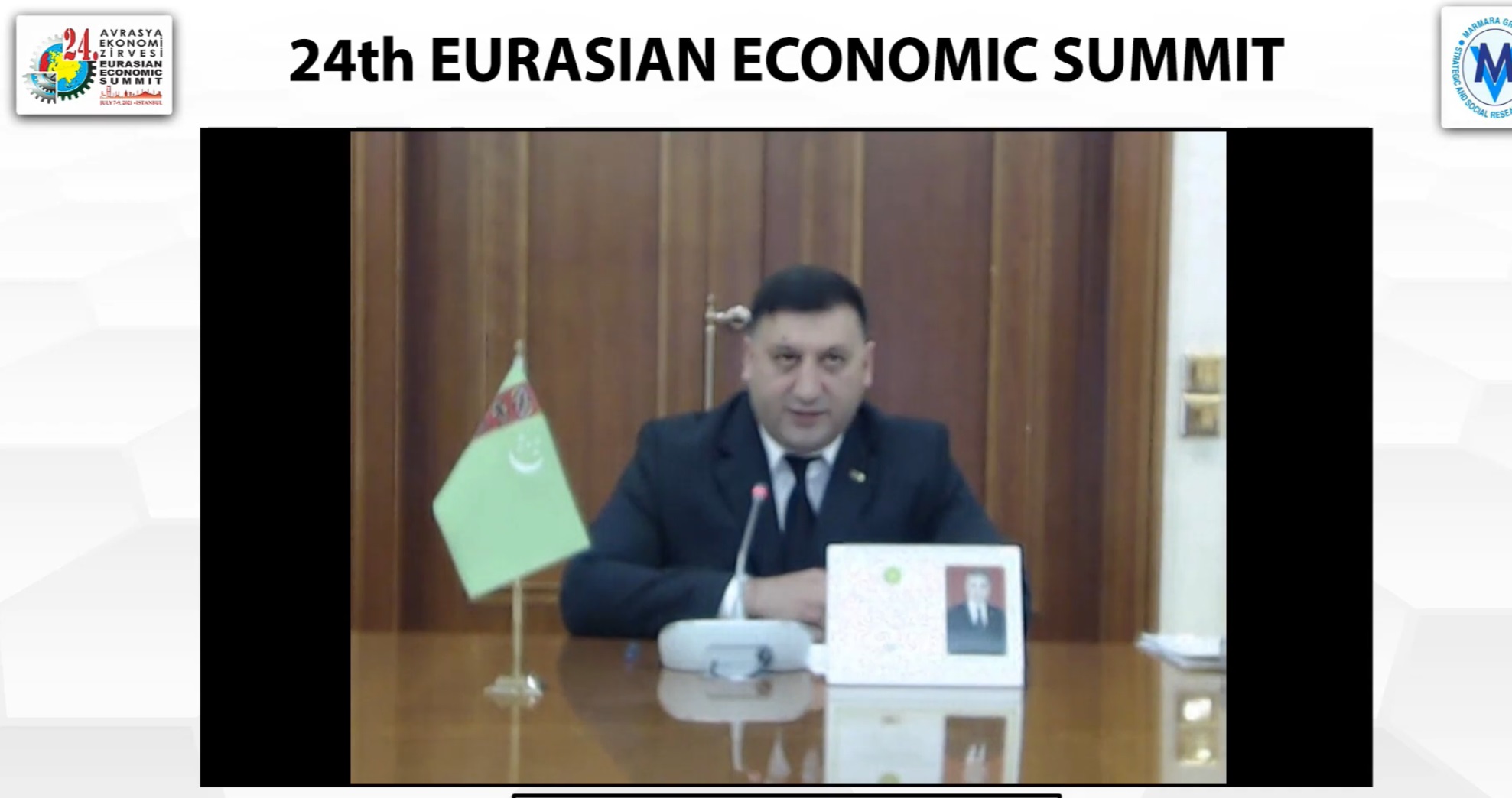
Rovshen Nuryagdyyev, Deputy Minister of Finance and Economy of Turkmenistan, stated that the pandemic has a significant impact on social life and said that a good vaccination rate will accelerate the return to social life. Nuryagdyyev pointed out that steps were taken to fight in Turkmenistan and noted that the stable growth of the Turkmenistan economy also created new opportunities.

Vice President of the Chinese Institute of Foreign Affairs, Amb. Ou Boqian said that despite all the difficulties, globalization will not slow down, developments in science and technology have made it easier for people to communicate, and global value and production chains form a complex network covering many countries in the world: “The process of globalization can never be reversed. 10 Asia Pacific countries have officially signed a regional survey.” Reminding that it is the 100th anniversary of the founding of the Communist Party of China, Boqian announced that China has eliminated absolute poverty by 2020 and has been successful at the moderate level of prosperity.
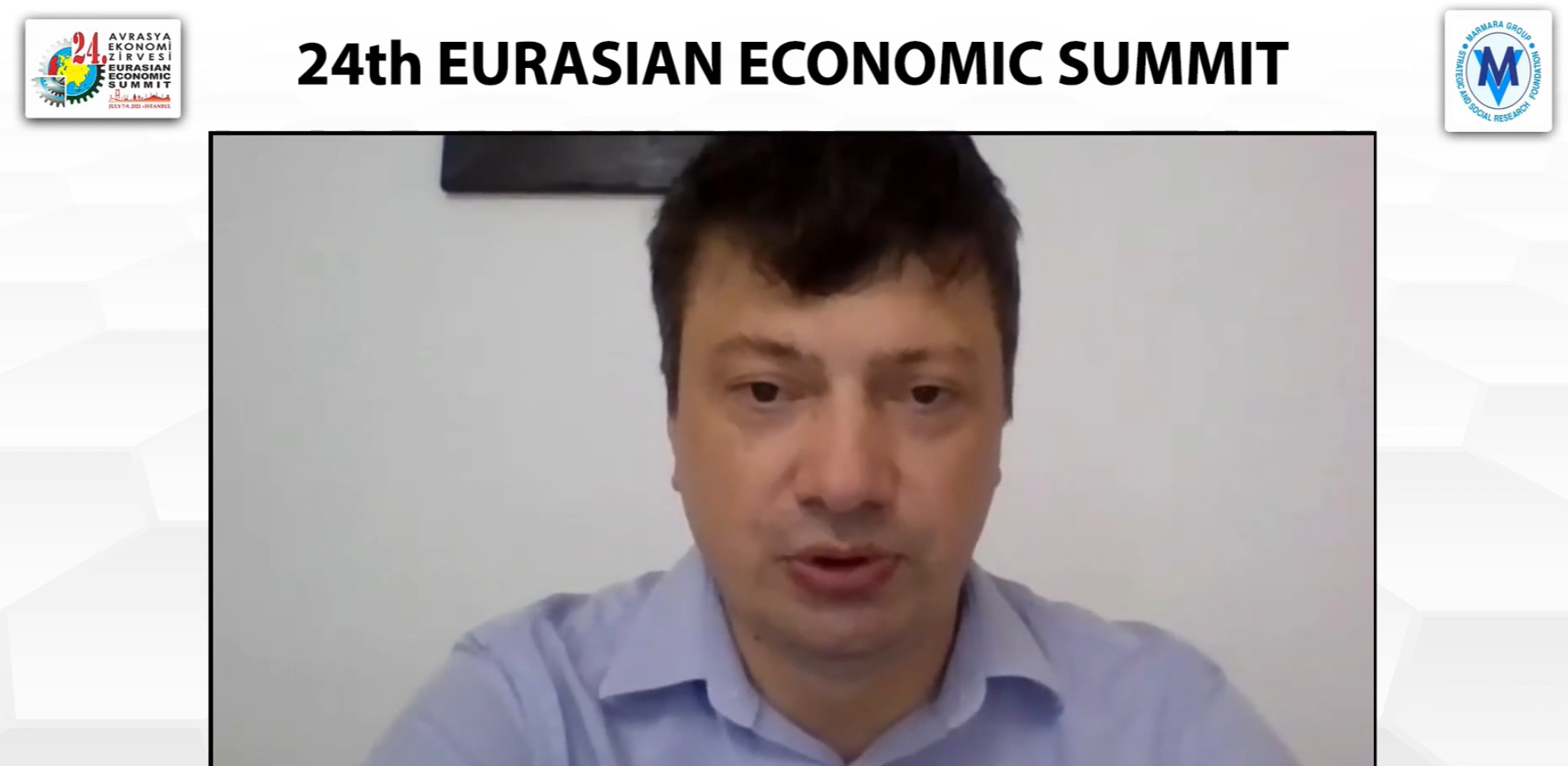
Romanian Minister of Culture (2017) and Deputy Iounut Vulpescu pointed out that the most important lesson in the pandemic is to support and embrace culture as the most important demand. Pointing out that there is a need for a social and economic support system for artists, Vulpescu emphasized that we need to move to a sustainable culture management based on resilience: “I aim to declare culture as a fundamental sector in your country. Thus, resilient societies can be built. It could be an important strategic area in Europe. Where culture is key policy in Belgium, bookstores were always open throughout the pandemic. If there is a support mechanism, investors will trust businesses in the cultural sector.”

Minister of Regional Development of Kosovo, Fikrim Damka, stated that globalization is negatively affected depending on the economies, and pointed out that it is inevitable for the global economy to undergo structural changes after the pandemic. Damka explained that Kosovo gives grants by prioritizing start-up, entrepreneurial, innovative and environmental projects.
.jpg)
3 Term Deputy, Iran İ.C. Azerbaijan Ambassador Dr. Ahad Ghazaei stated that trade relations between countries are hindered by politics, and entrepreneurs cannot develop themselves due to political restrictions. “We are ready to improve economic relations,” Ghazaei said. Iran Commodity Exchange can be contacted directly. We can establish working groups and specialized committees at the Eurasian Economic Summit. The ALAT project will be a main player here. The Government of Azerbaijan has approved economic development projects. As Azerbaijan-Turkey friends and neighbors, we are ready to support them," he said.
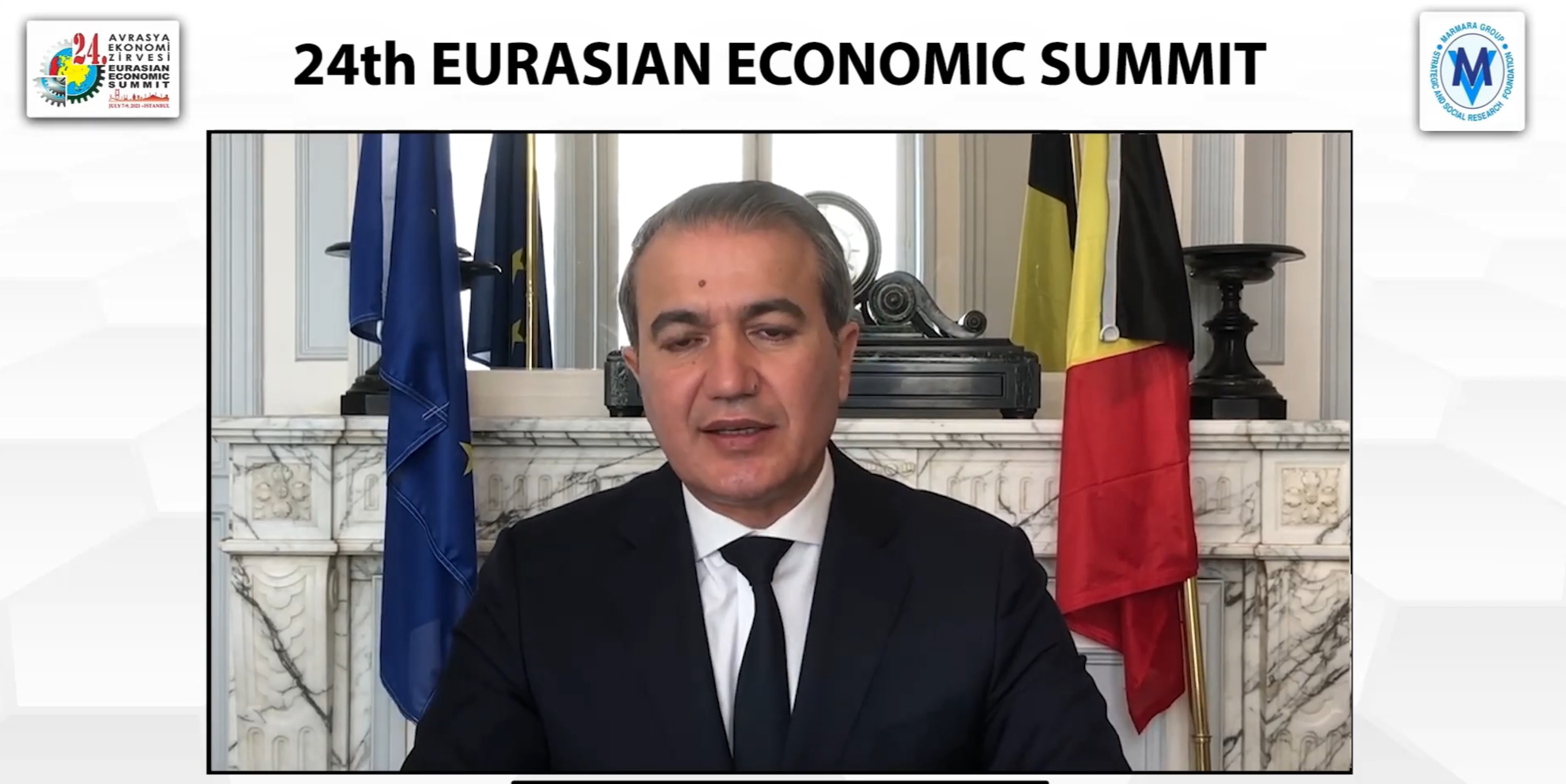
Belgian Federal Deputy and Mayor of Saint-Josse, Emir Kır, underlined the importance of the vaccine: “While one out of 500 people in the world is vaccinated in poor countries, a quarter of rich countries are vaccinated. The vaccine should be fairly accessible to everyone. For poor countries, rich countries should take pioneering and important steps.”
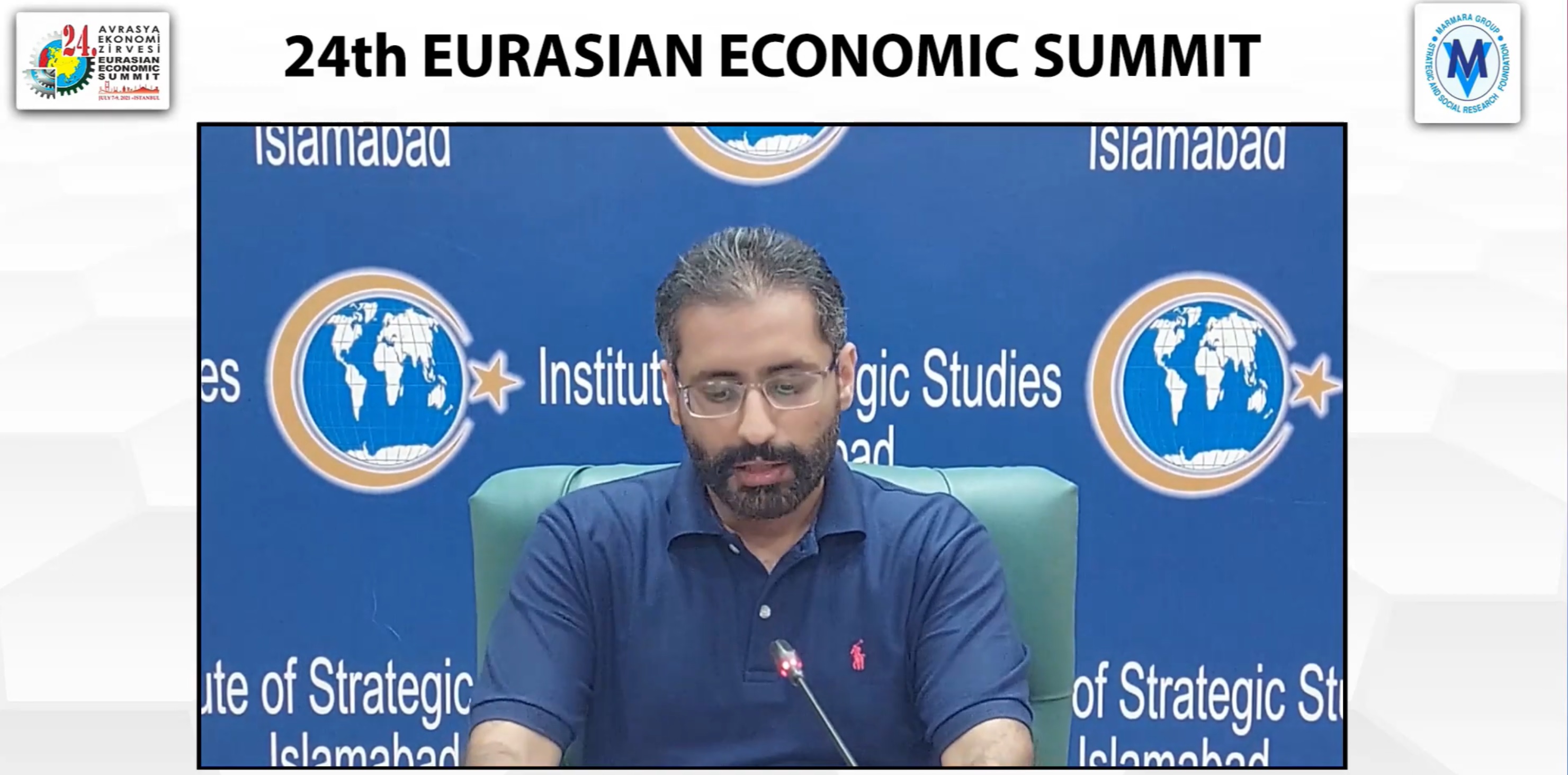
Strategic Perspectives Center, Researcher Mian Ahmad Naeem Salik stated that the pandemic has made the situation between the rich and the poor clear, and stated that the government plays an important role in Pakistan's being constructive in global markets, and that the China-Pakistan economic corridor offers tremendous opportunities to the regional economy.

Day 1 Sessıon 3: Energy Platform
The Presidency Council of the last session of the first day of the Summit titled 'Making the Energy Building Better for the Common Future of Humanity' consisted of: Dr. Akkan Suver, Members of the Marmara Group Foundation Board of Trustees and Business People; Nimet Ulubay, Rahmi Dilek and Ayhan Tahmazoğlu.
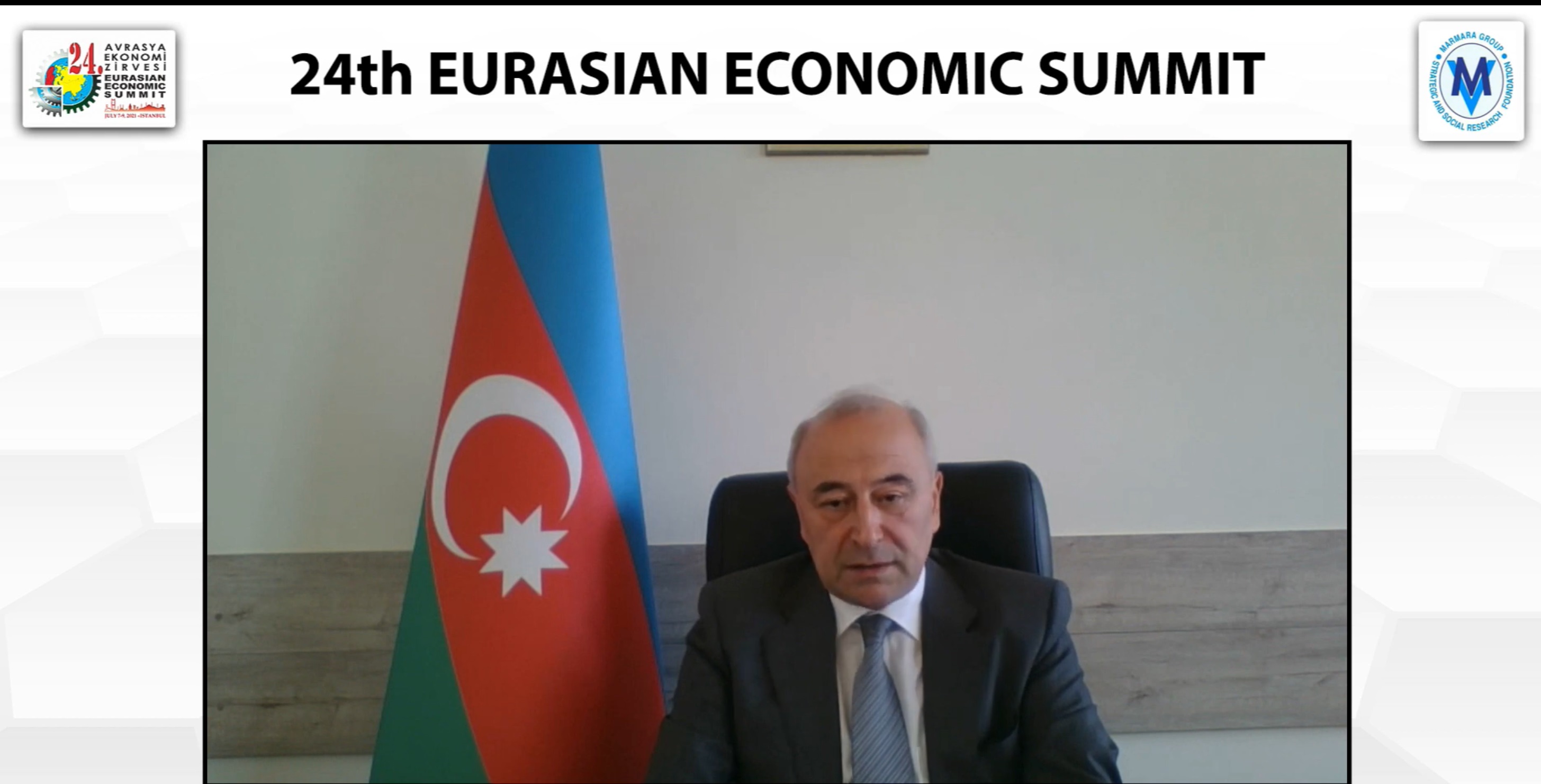
Azerbaijan Deputy Minister of Energy Samir Veliyev emphasized the importance of energy, one of the basic needs of people, and drew attention to the fact that there is a lack of energy on the one hand and a waste of energy on the other. Stating that we cannot separate the atmosphere as we separate the lands, Veliyev said that we need to mobilize everyone on this issue and that our way out is one. Finding the cheapening of clean energy technologies pleasing, Veliyev stated that these are important steps for the transition to clean energy: “Our steps must be accelerated, our efforts must be strengthened.” Veliyev added that Azerbaijan aims to achieve clean energy by 2030.
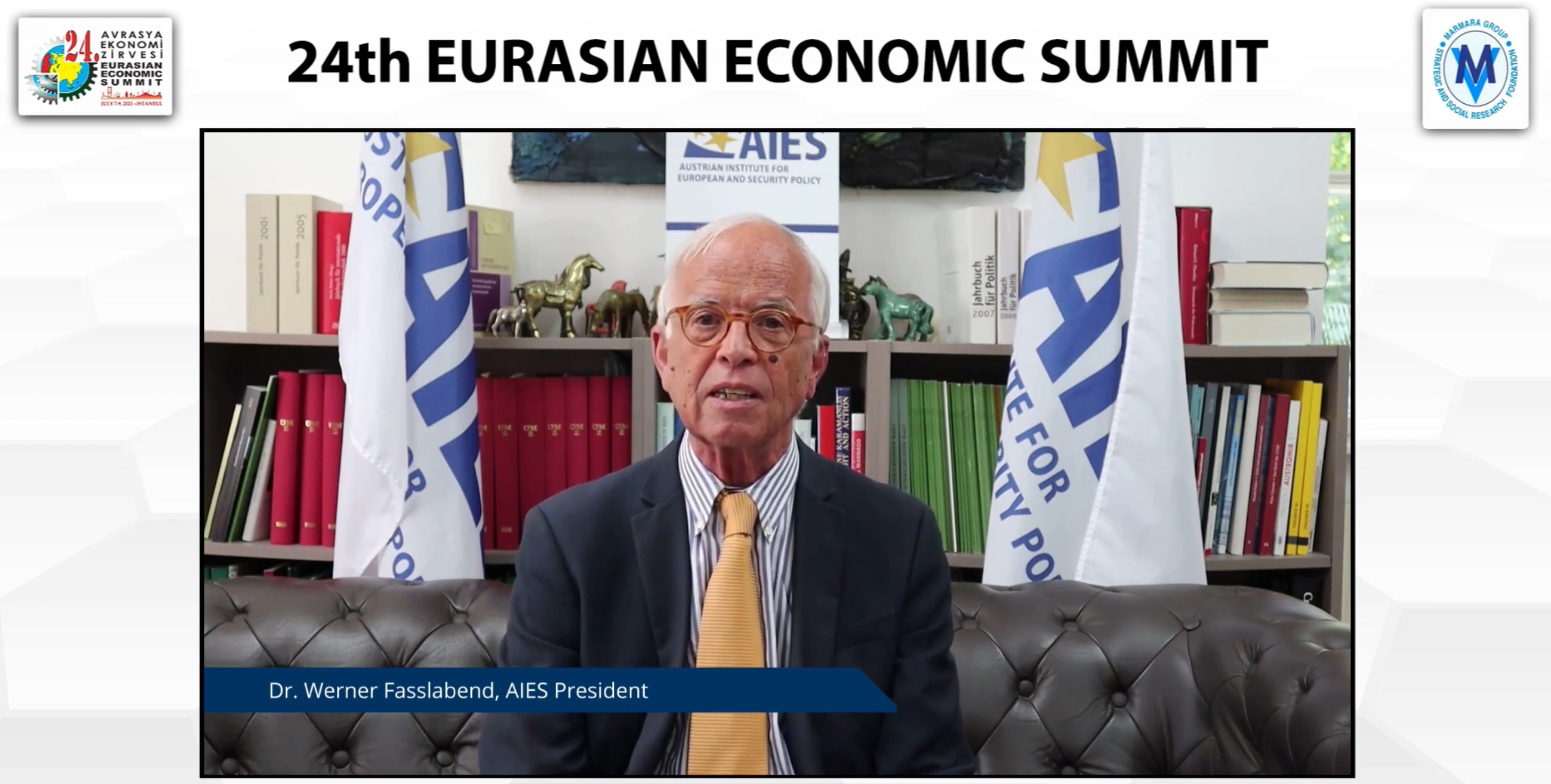
Austrian Defense Minister (1990-2000) Dr.Werner Fasslabend touched upon the events experienced in the world last year in terms of stability and security, emphasizing that only a small part of the problems could be solved and these are important issues for the whole of Europe. He noted that Turkey actively participates in all these situations, assumes a lot of responsibility and contributes to stability in the entire region.
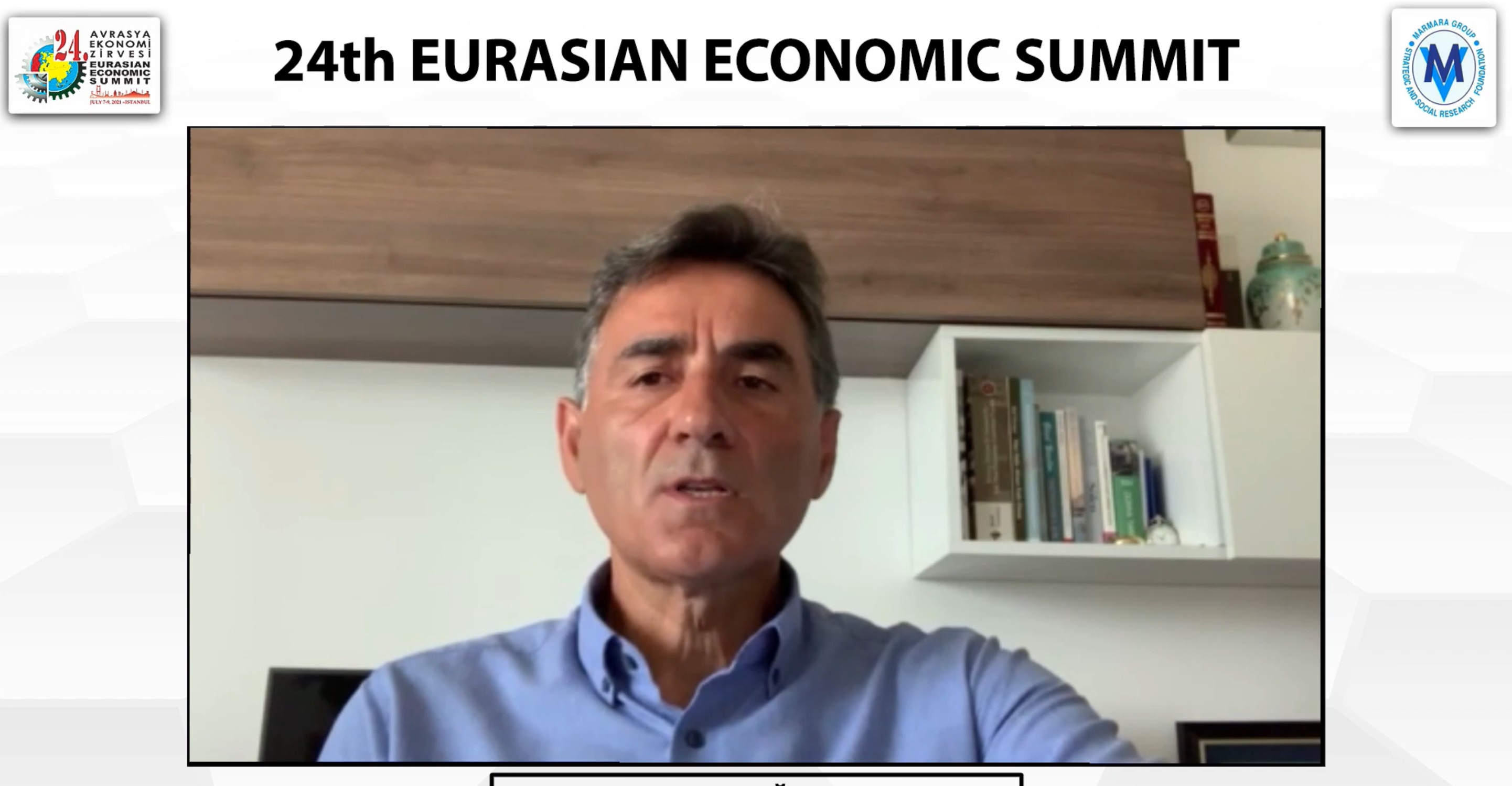
Kosovo Former Minister of Public Administration Mahir Yağcılar stated that it is necessary to increase the exchange of science and technology between peoples on global threats: “We can create a better life by better understanding each other and sharing what we know.”
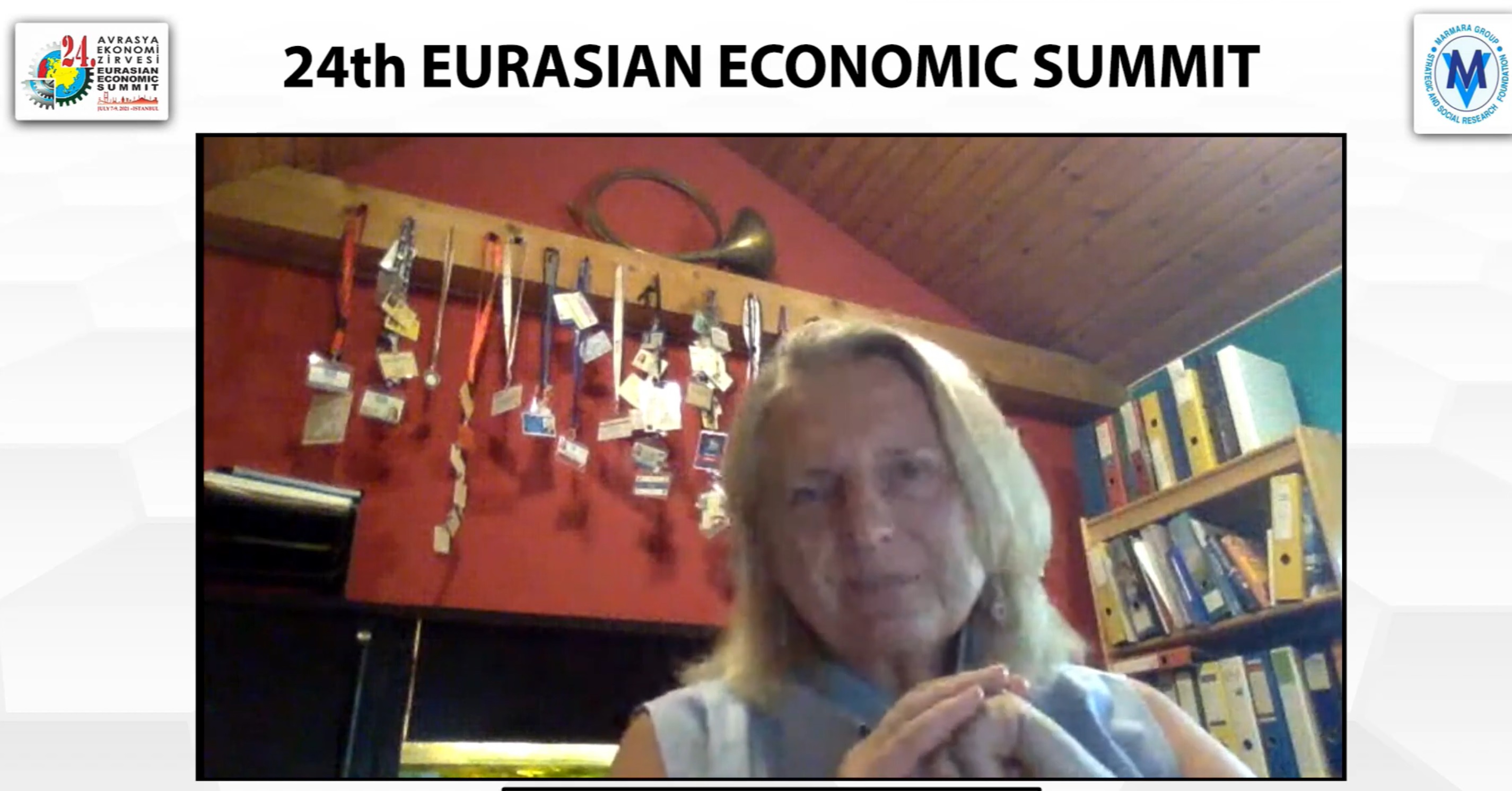
Austrian Foreign Minister (2017-2019) Dr. Karin Kneissl shared that they see a rapid energy change today and that we need to minimize the environmental impact of human behavior: “Zero emission industry is a dangerous utopia. However, an environment with low carbon emissions would be a more realistic expectation. There is no such thing as innocent energy. If we want vehicles that move with electricity, this needs to be in a certain balance. Climate change is not just a public relations issue, it is a much more important issue. As a result, the coal and gas sector will continue to play their role in their respective fields. Because energy diversity is needed. In order to reach the targets set by certain administrations, they must invest 4 trillion dollars every year and this investment must continue for the next 9 years. And we still cannot eliminate the social effects of this. E.g.; people continue to use their conventional cars.”
.jpg)
Romanian Senate President (2017-2019) Teodor Melescanu stated that the implementation of the Paris Agreement brought economic and social results that countries agreed to reduce greenhouse gas emissions with the Kyoto Protocol and the Paris Agreement, but this does not continue in the world. Noting that leaders around the world are preparing incentives for companies with a low-carbon business model after Covid-19, Melescanu stated that 1 trillion Euros has been allocated to make the EU the first zero carbon continent, and that energy will not change quickly in a few years. Mentioning that even though nuclear power plants produce clean energy, the disposal of nuclear waste is a problem, Melescanu said that fusion has almost become the 'holy grail' in safe and clean energy experiments, and that China is also conducting nuclear fusion studies: I have full faith that there will be a method.”
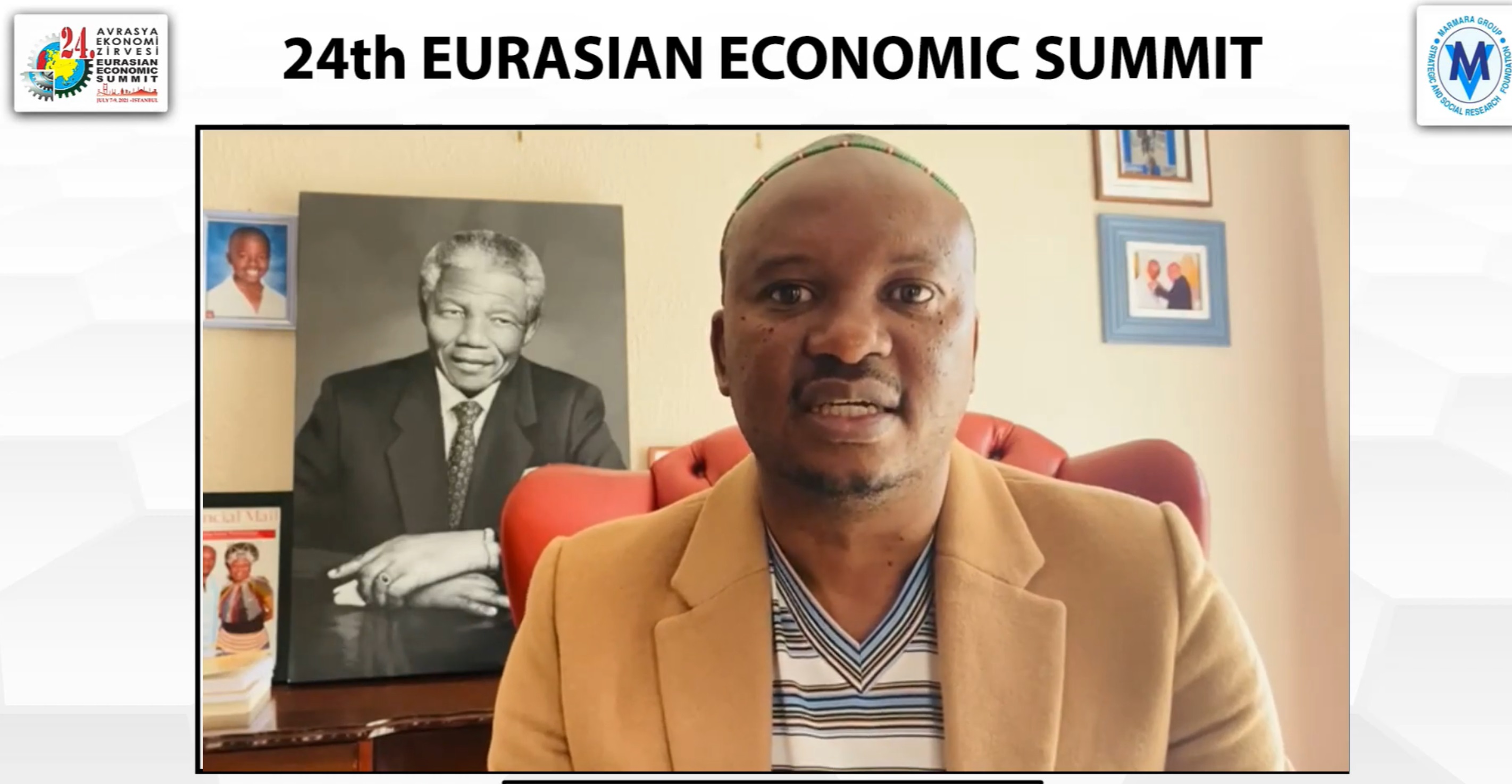
South African Deputy Zolani Mkiva thanked the Marmara Group Foundation for such a beautiful international Summit organized for the 24th time and wished success.
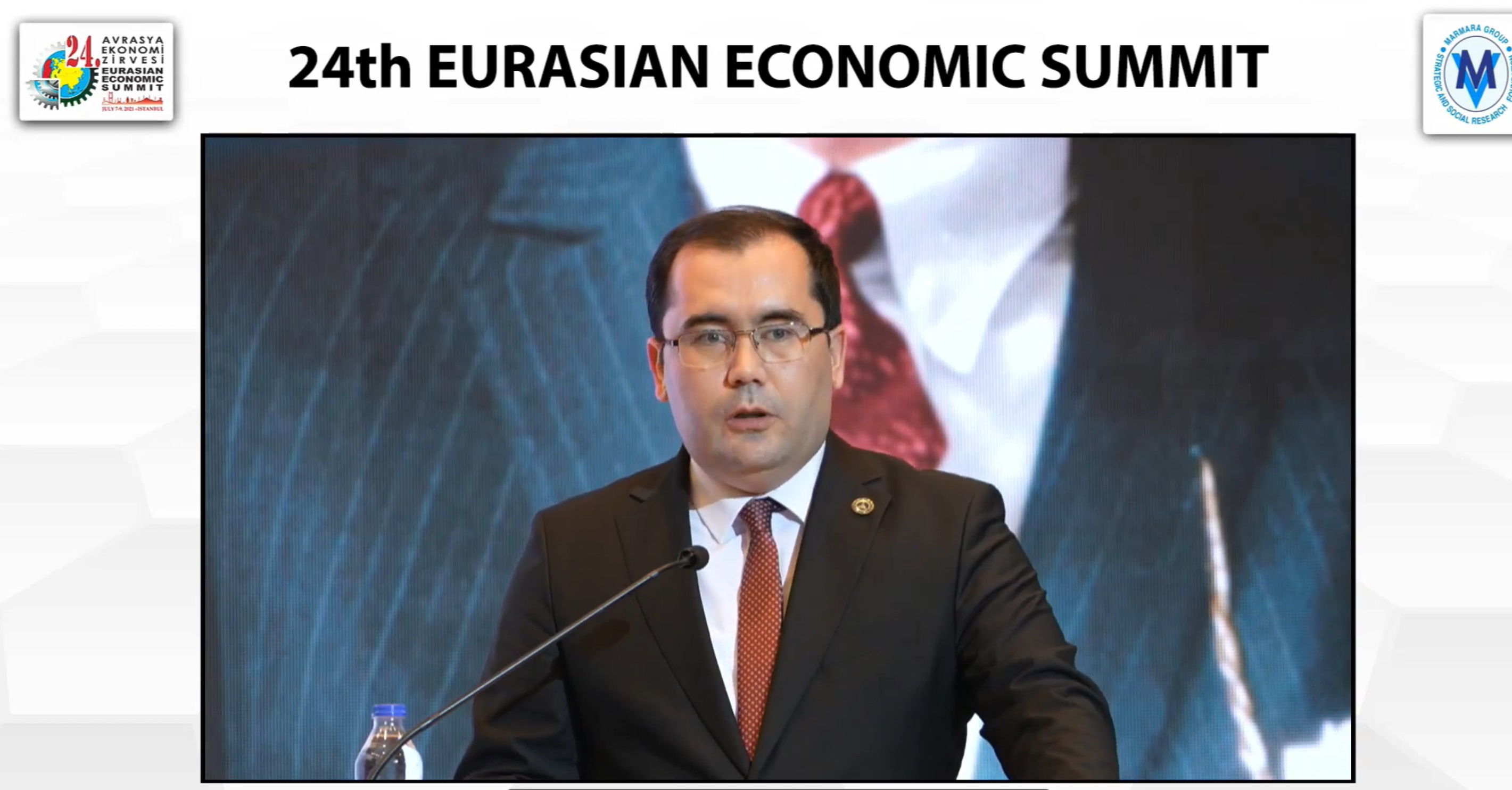
Uzbekistan Strategic Development Center Director Eldar Tulyakov emphasized the geopolitical and geostrategic importance of Uzbekistan and Central Asian countries and stated that Uzbekistan produced 16 billion m3 of natural gas, decreased to 15 billion m3 in 2020 during the pandemic, and that it has been reforming the energy sector since 2017. Stating that they aim to increase green energy by reducing energy consumption, to use environmentally friendly resources and to transition to green energy, the Ministry of Energy has been established for this purpose, and state policies highlight what will be done in the energy sector in 2021 and that they aim to achieve carbon neutrality, and that Uzbekistan signed the Paris Agreement in 2017.
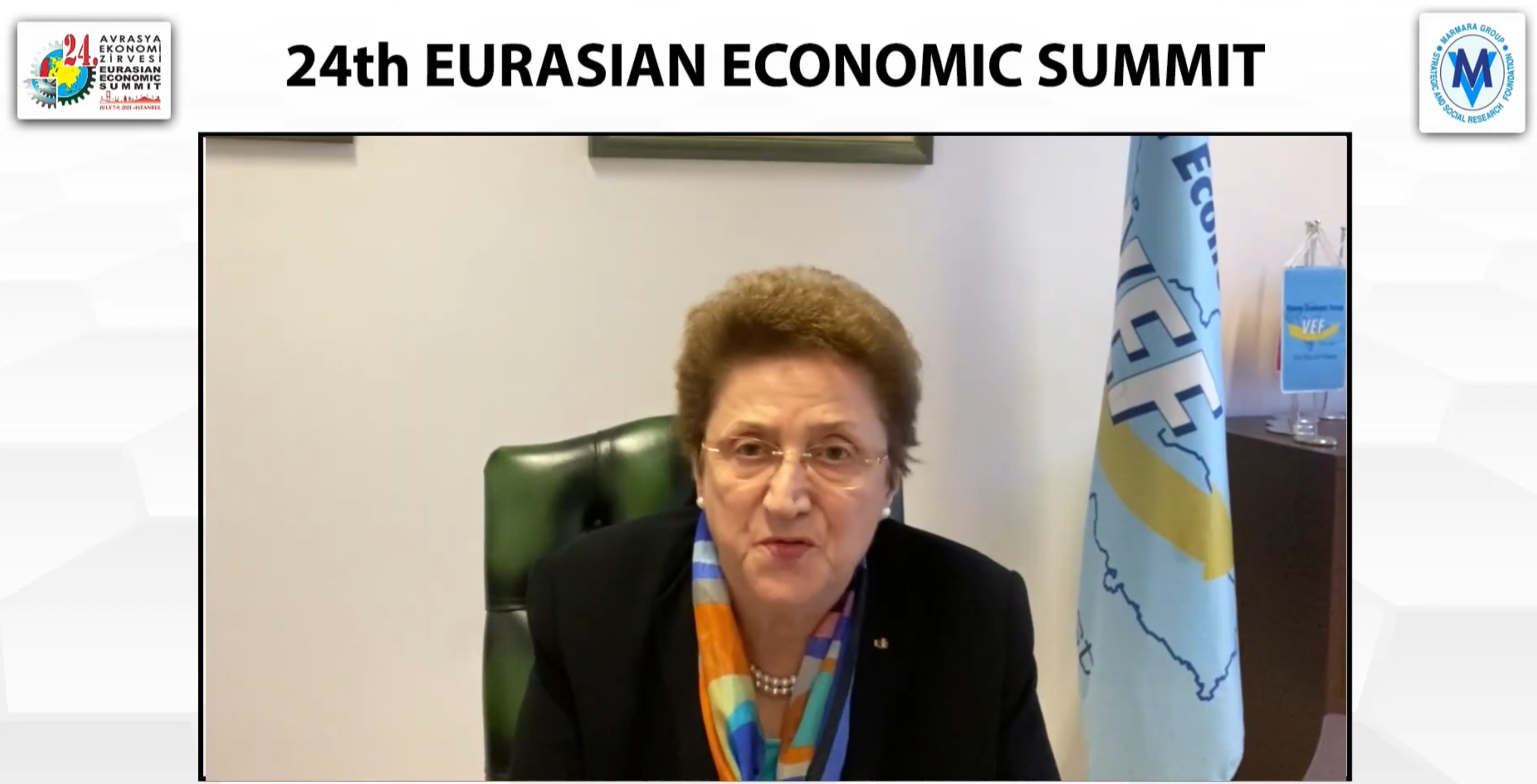
General Secretary of the Vienna Economic Forum, Dr. Elena Kirtcheva, conveying that initiatives were discussed in the Vienna Economic Forum this year on the support of economic recovery after Covid-19, she said that the EU has reached the highest figures in carbon prices per ton, and that all players are willing to use clean technology: “We humanity deserves better. We must be ready for change. Increasing storage of clean energy is also important. I think the Summit is an opportunity to develop international dialogue and cooperation.”
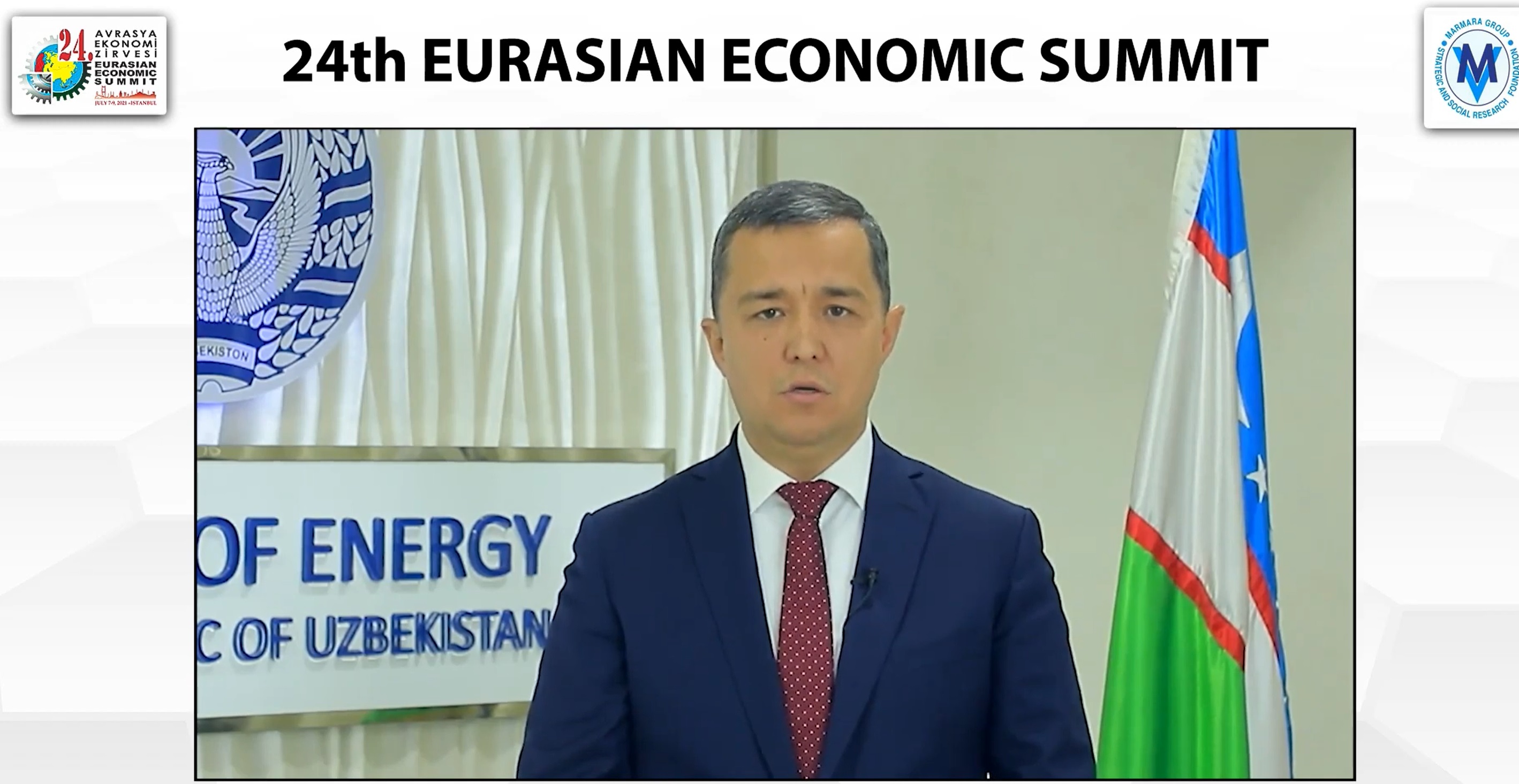
Bekhzot Narmatov, Deputy Minister of Energy of Uzbekistan, shared that Uzbekistan is about to reach its target of increasing its energy production by 2 times. Explaining that they have established the Ministry of Energy of Uzbekistan, they are constantly making energy reforms, and that they have established a New Energy Institute under the ministry, Narmatov announced that they will complete 200 mgW photovoltaic facilities this year. Narmatov stated that the direct investment of Turkish companies in energy in Uzbekistan will reach 700 million dollars.
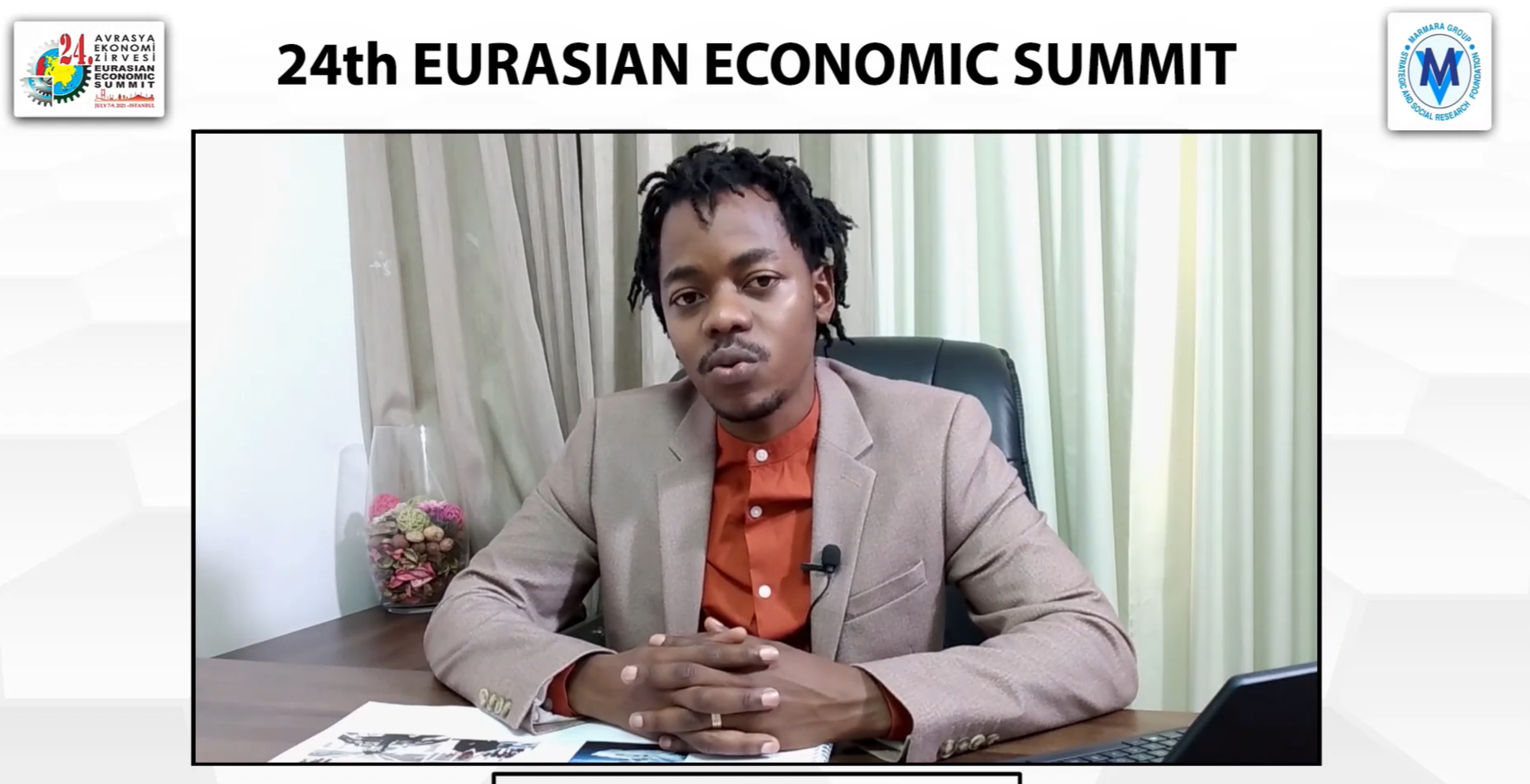
Businessman, MEGASTAGE LDA President (Angola) Delcio Henjengo stated that many people in Africa do not have access to electricity: “We are talking about 600 million people. 55 percent of the population on this continent does not have access to electricity. If we give electricity to 200 million people, I think it will benefit people. Electricity means power. We must hand over this power to the youth to create something new. Now it's time to look at Africa, our goal in the information age is; it should be clean energy.”
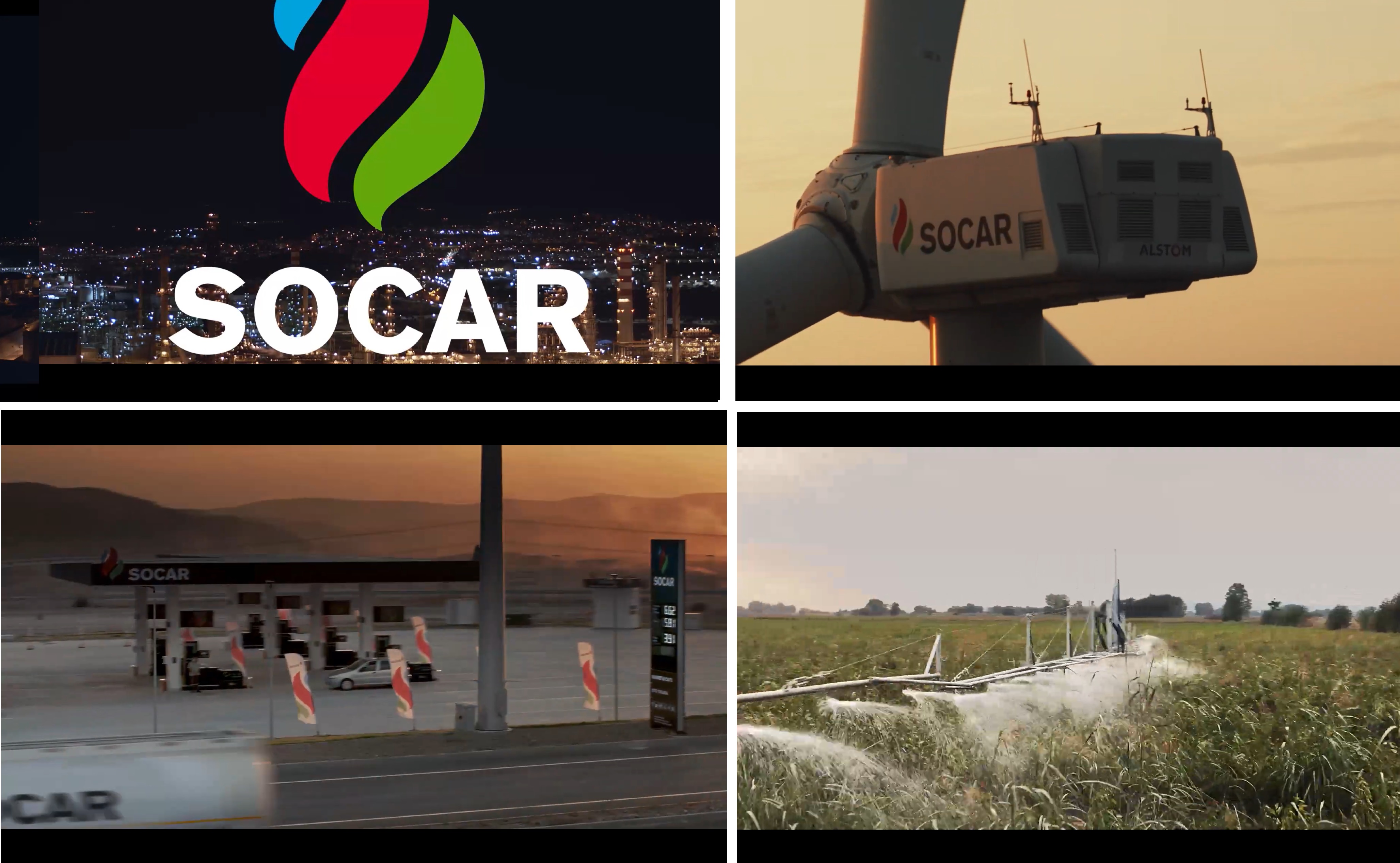
Day 2 Session 4
.jpg)
The Presidency Council of the session on 'Creating Awareness and Cooperation', 'Talking the Belt and Road', 'Ambassadors Roundtable Meeting' consisted of the following names: Dr. Akkan Suver, Members of the Marmara Group Board of Trustees; Hunting. Canberk Yılmaz and Businessman Mahmut Saklı, Faculty Member of Istanbul University Faculty of Medicine Prof.Dr. Turhan Ece.
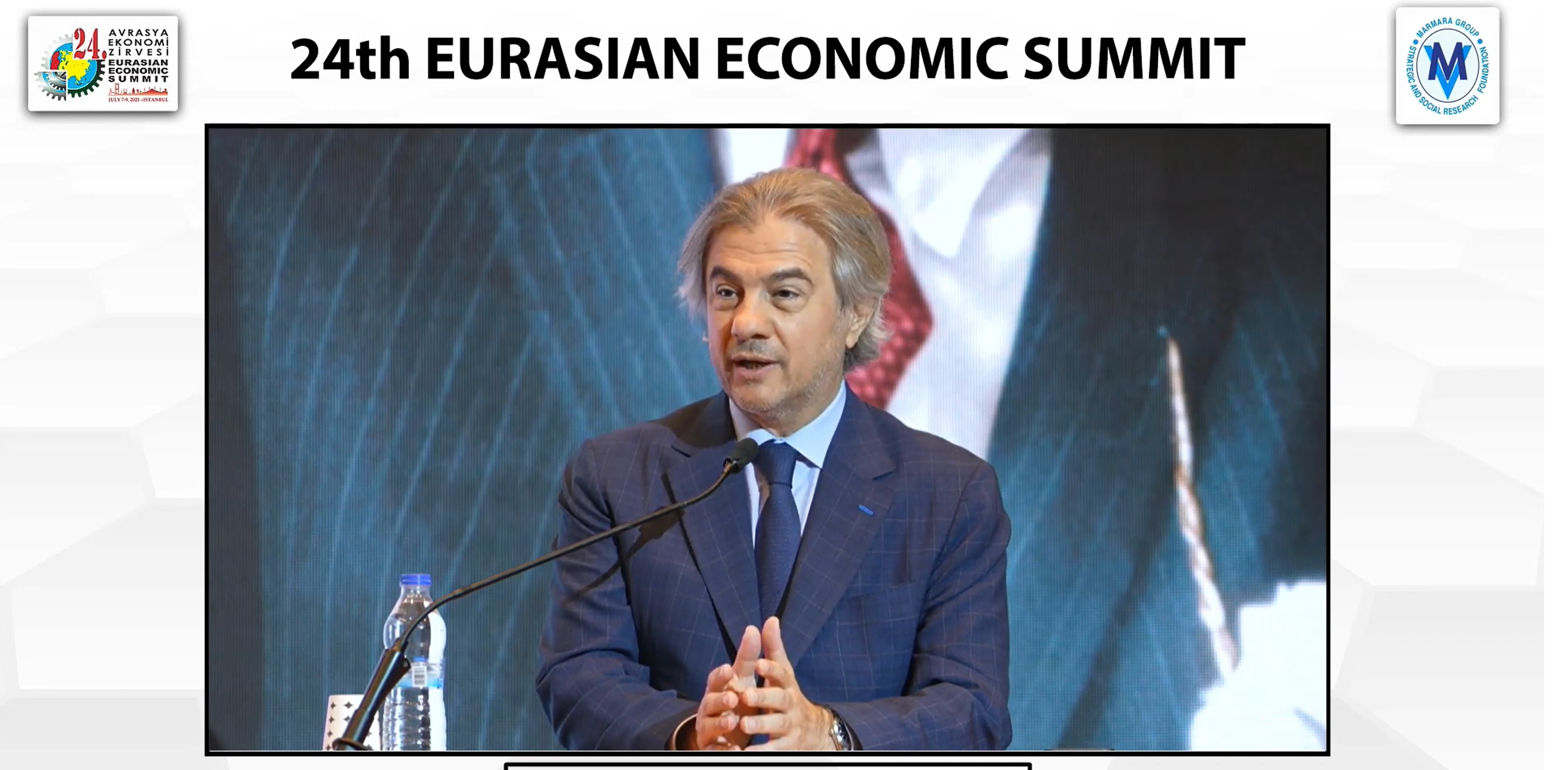
Misbah Demircan, Deputy Minister of Culture and Tourism of the Republic of Turkey, stated that the frequently used phrase 'Caravan would be prepared on the road' was misunderstood and actually means 'Let's set off early' and stated that Anatolian geography is the bridge of the world and Istanbul is the center. Noting that the iron Silk Road is the last on the world's agenda, Demircan said that there are existing bridges and transportation connections in Turkey for Silk Road countries, and that the Canal Istanbul project to be implemented is important in this respect. Demircan added that they see the Summit as a historical opportunity.
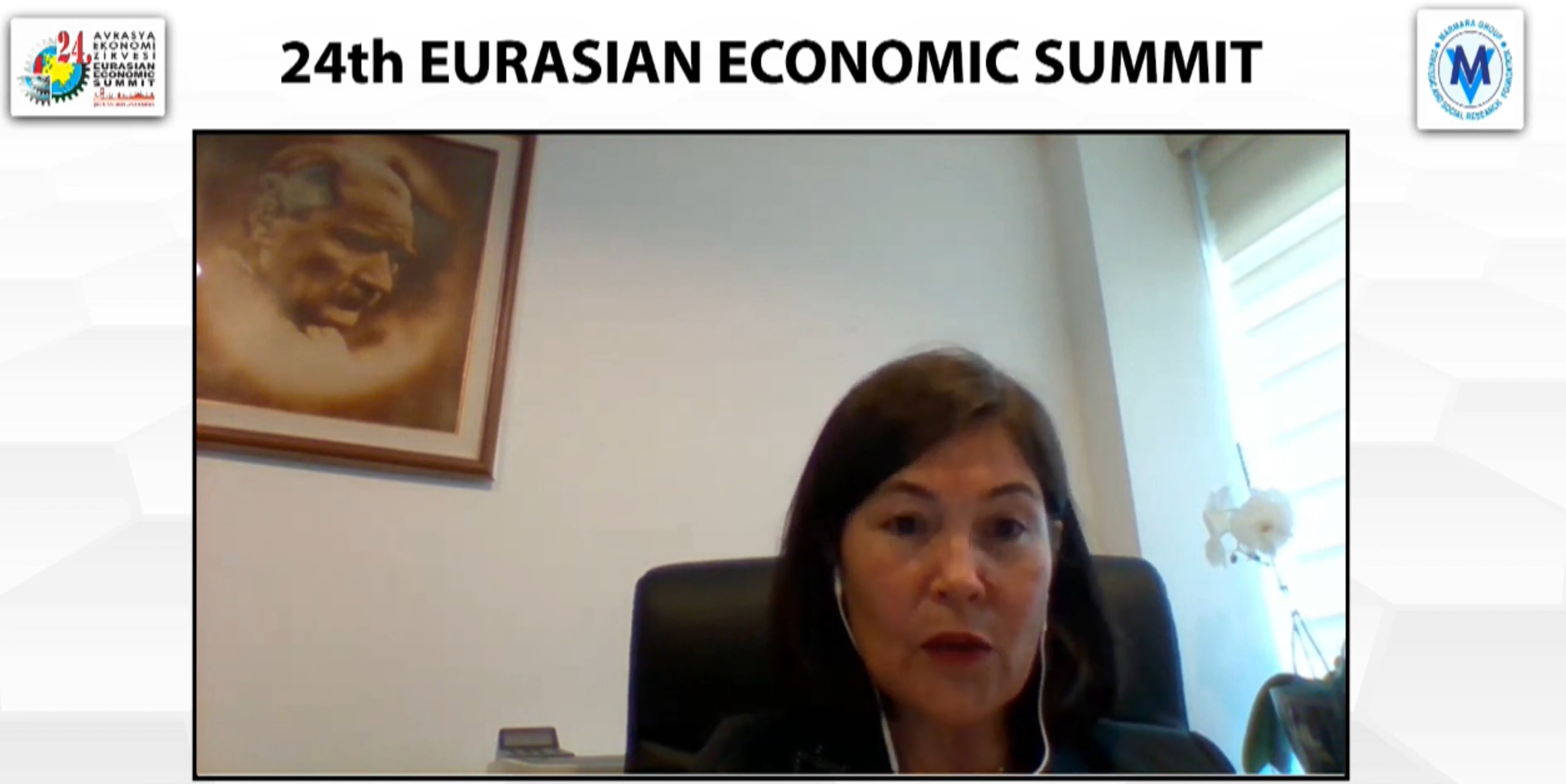
Ministry of Foreign Affairs of Turkey, 'Asia Anew' Coordinator and Ambassador Nilvana Darama, who announced the 'Asia Anew Initiative' in August 2019, explained that Turkey is an economic powerhouse with its rapidly growing market, favorable environment for investments and dynamic business world, Turkey’s goal is to establish high-tech, efficient, cost-effective, sustainable transportation and trade networks to jointly build the Asian century. We are ready to work with all your countries to build healthy, resilient and sustainable societies in Asia.”

Liu Shaobin, Ambassador of the People's Republic of China, explained that the Belt and Road Initiative has been launched since 2013, has become the most important project for international cooperation and has received great support all over the world: “Investments have been made by Chinese companies in countries on the Belt and Road Initiative. Despite the pandemic, the vitality here is very clear. A good relationship should be established between the world and nature. China has made efforts to promote ecological progress. Our philosophy of blue waters and green mountains has been accepted by the whole society. China made a significant contribution to the adoption and agreement of the Paris Agreement. Achieving peak emissions and carbon neutrality is essential to China's development. It is also an important point in the effort to create a common society. Taking responsibility for climate change, China will continue to implement an international strategy to benefit the Belt and Road Initiative people and help climate change in other countries. First of all, we aim to reach the development goal by promoting economic and social development in a balanced and integrated manner. Our goals; Implementation of the Paris Agreement, protecting the ecological environment, promoting cooperation to provide cost-effective ecological energy to developing countries. We invite Turkey and other partners to create green energy, green infrastructure and green economy to build the Green Silk Road. We will continue to achieve and be sustainable in green and clean development through comprehensive consultation.”
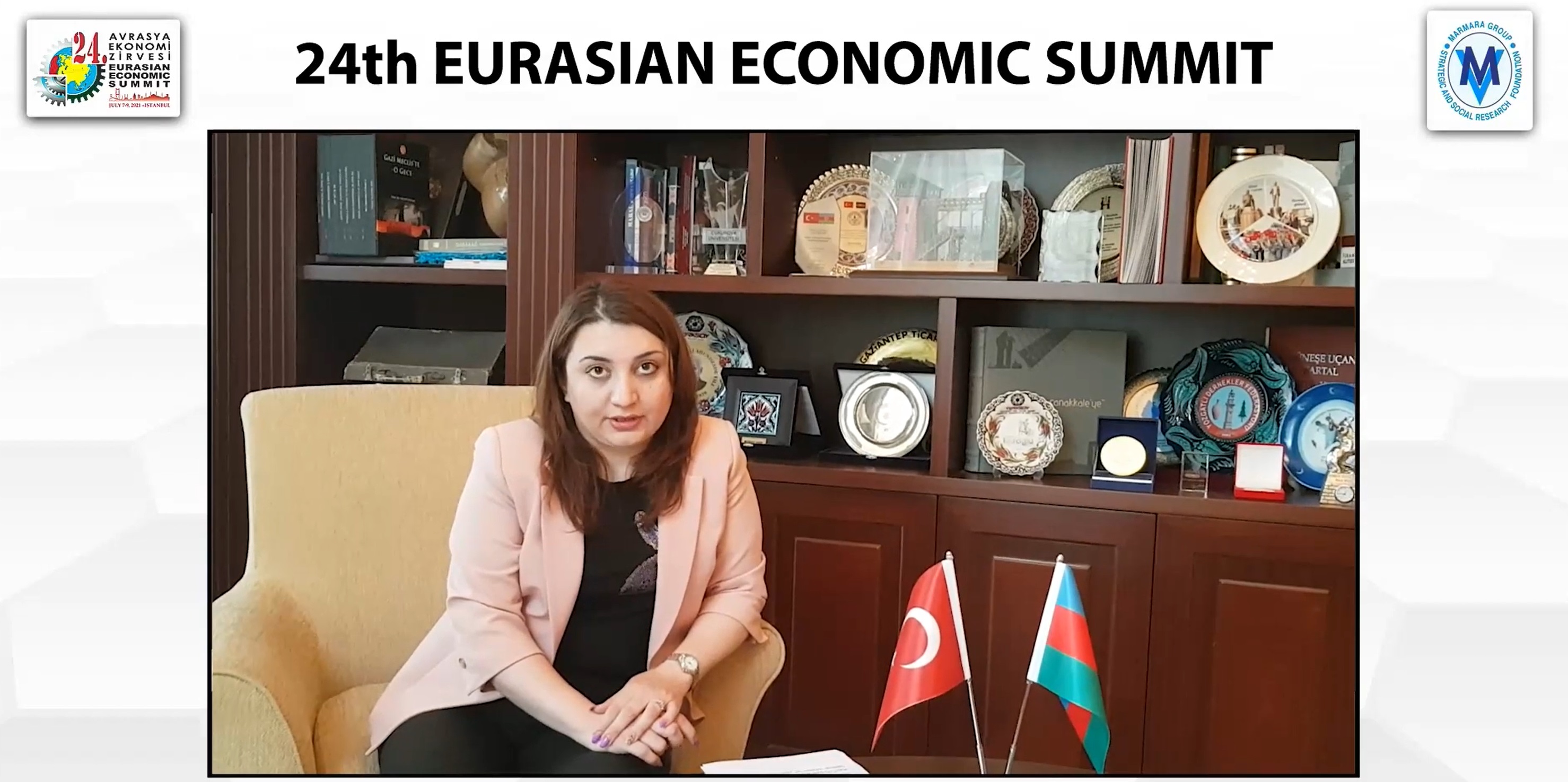
Azerbaijan Embassy Undersecretary Aygün Kocayeva mentioned that Azerbaijan plays a major role in the formation of international roads: “Azerbaijan is one of the countries that support China's One Belt One Road initiative. We are working to make Azerbaijan an important transportation hub and an important point of waterways.”
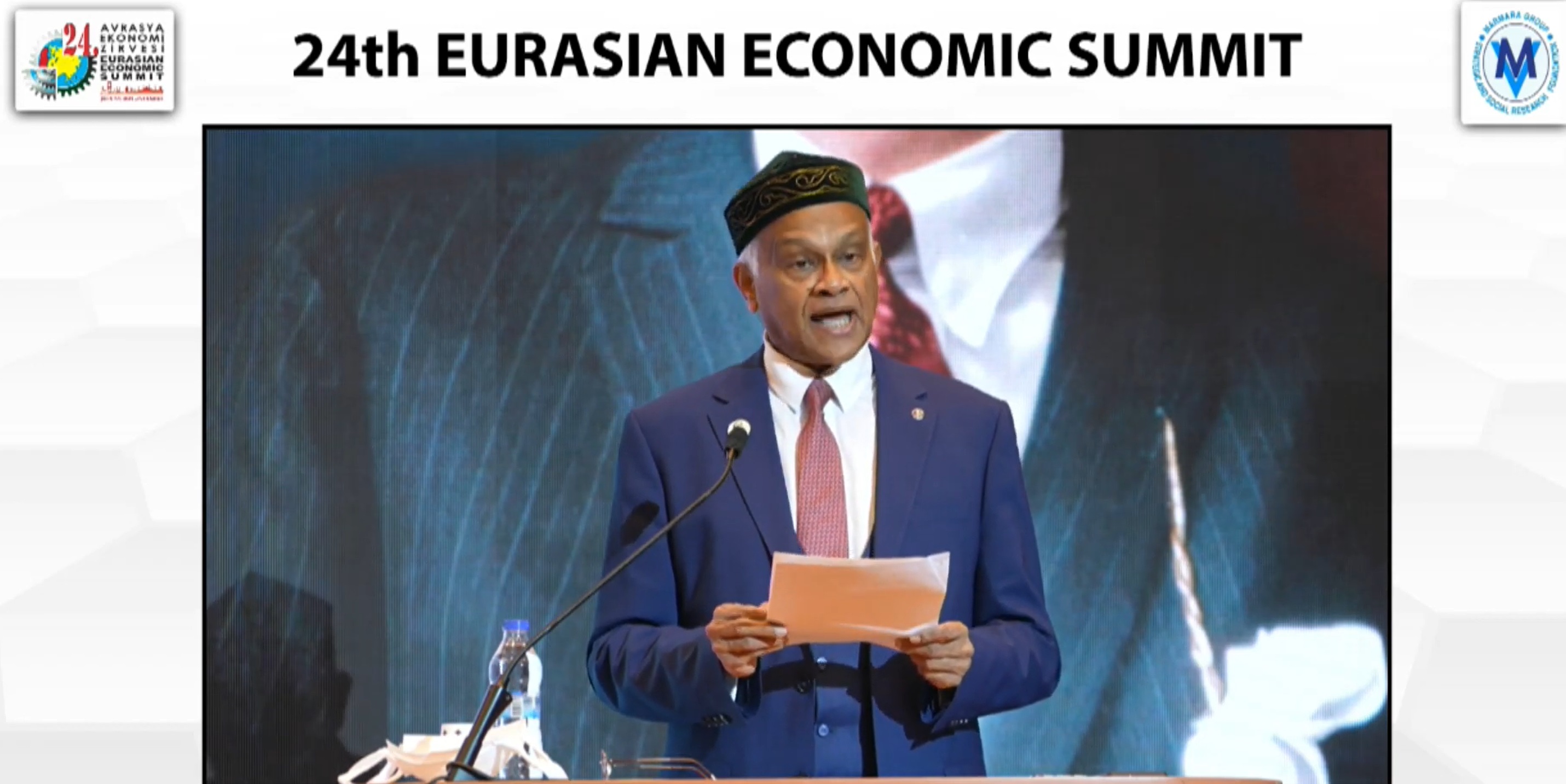
Bangladesh Ambassador Mosud Mannan stated that global and regional cooperation, global governance are important and that we should act together against problems; “We need to turn crises into opportunities,” he said.
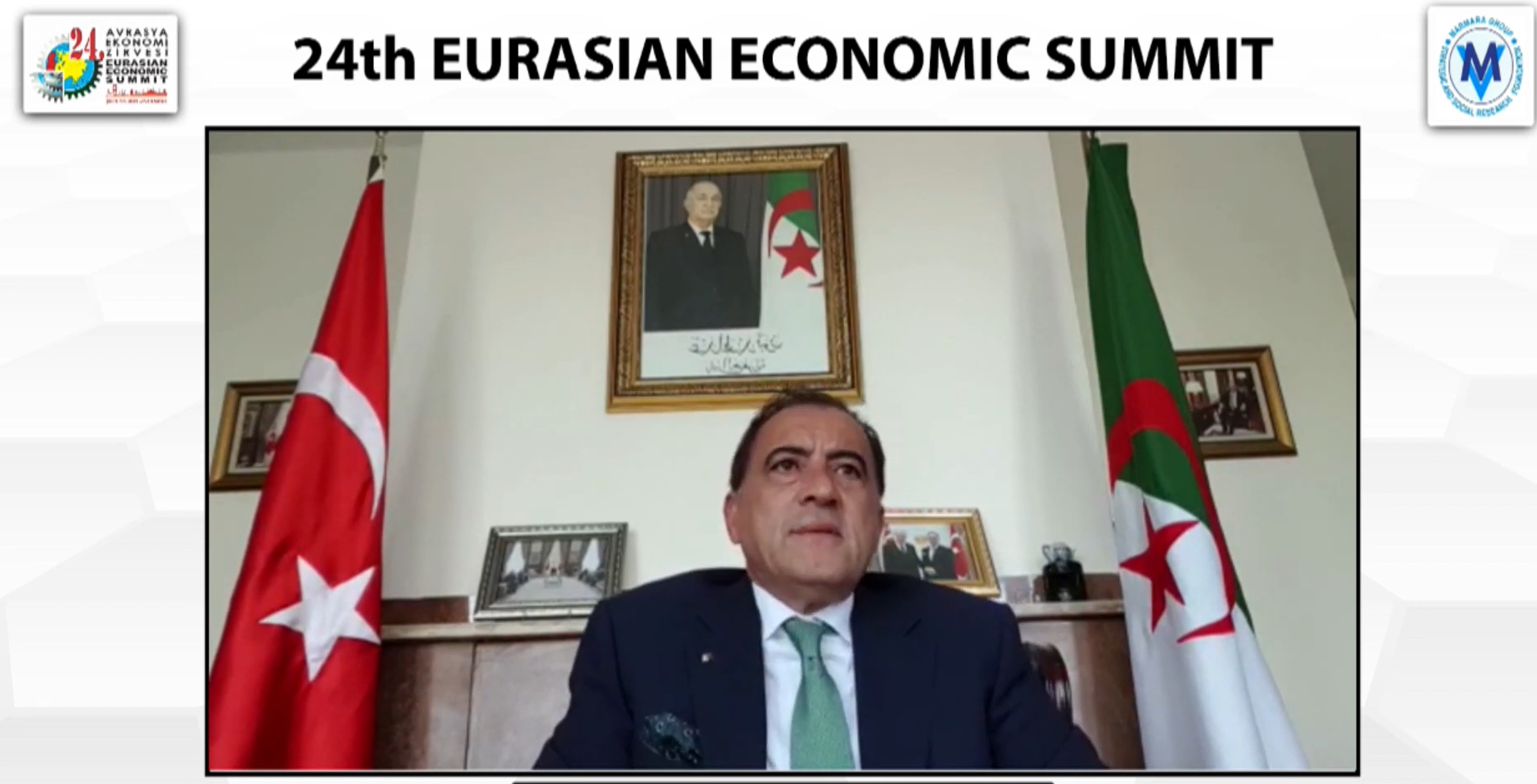
Algerian Ambassador Mourad Adjabi stated that for the first time in the world from non-Arab countries, the Algerian Government was recognized by China and provided pioneering support in its development. Adjabi stated that Algeria also participated in the Silk Road initiative, that the Belt and Road cooperation was also an advantage in energy, and that Algeria and China agreed on a central port: “Now, the Century of Asia begins. Algeria and China agreed on various infrastructures within the framework of Belt and Road cooperation. Thus, Algeria will be a gateway to Africa that guides everyone.”
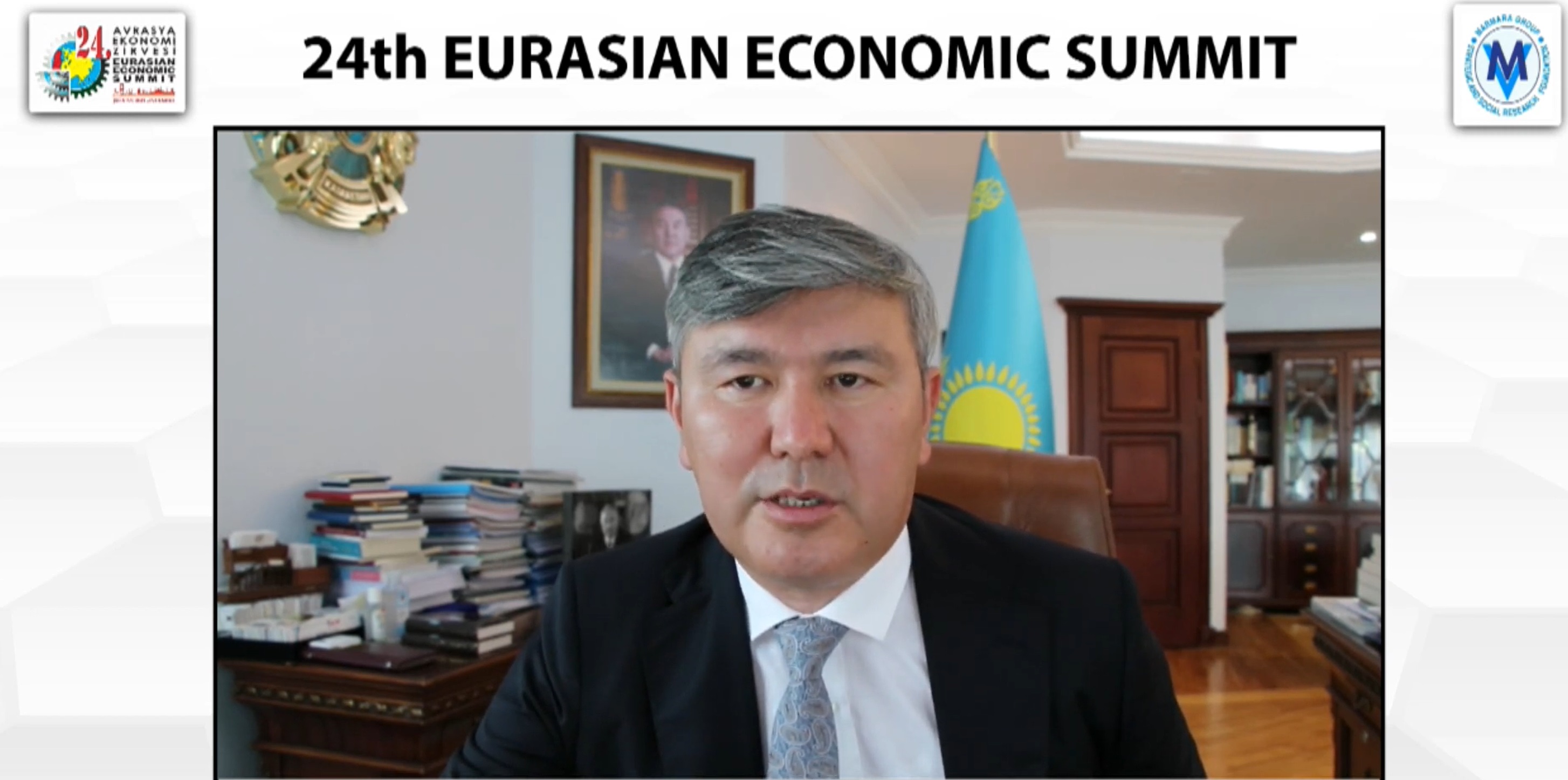
Kazakhstan Ambassador Abzal Saparbekuly said, “The attitude of Kazakhstan, which is in the center of the Eurasian continent, is important. Kazakhstan has realized economic cooperation with 4 regional centers. In 2014, the Eurasian Economic Union was established and Kazakhstan opened up to a market of 180 million. There is also a work on the economic integration of the Islamic world in Kazakhstan. Kazakhstan's policy of opening up to the East coincides with China's desire to open up to the West. Kazakhstan is connected by railways through Turkmenistan. The unification of these railways with Turkey will enable us to open up to the West. Kazakhstan is one of the key countries in the new Silk Road project. In this direction, the importance of the Eurasian Economic Union emerges. In addition to the railway, the emphasis is on road investments," he said.
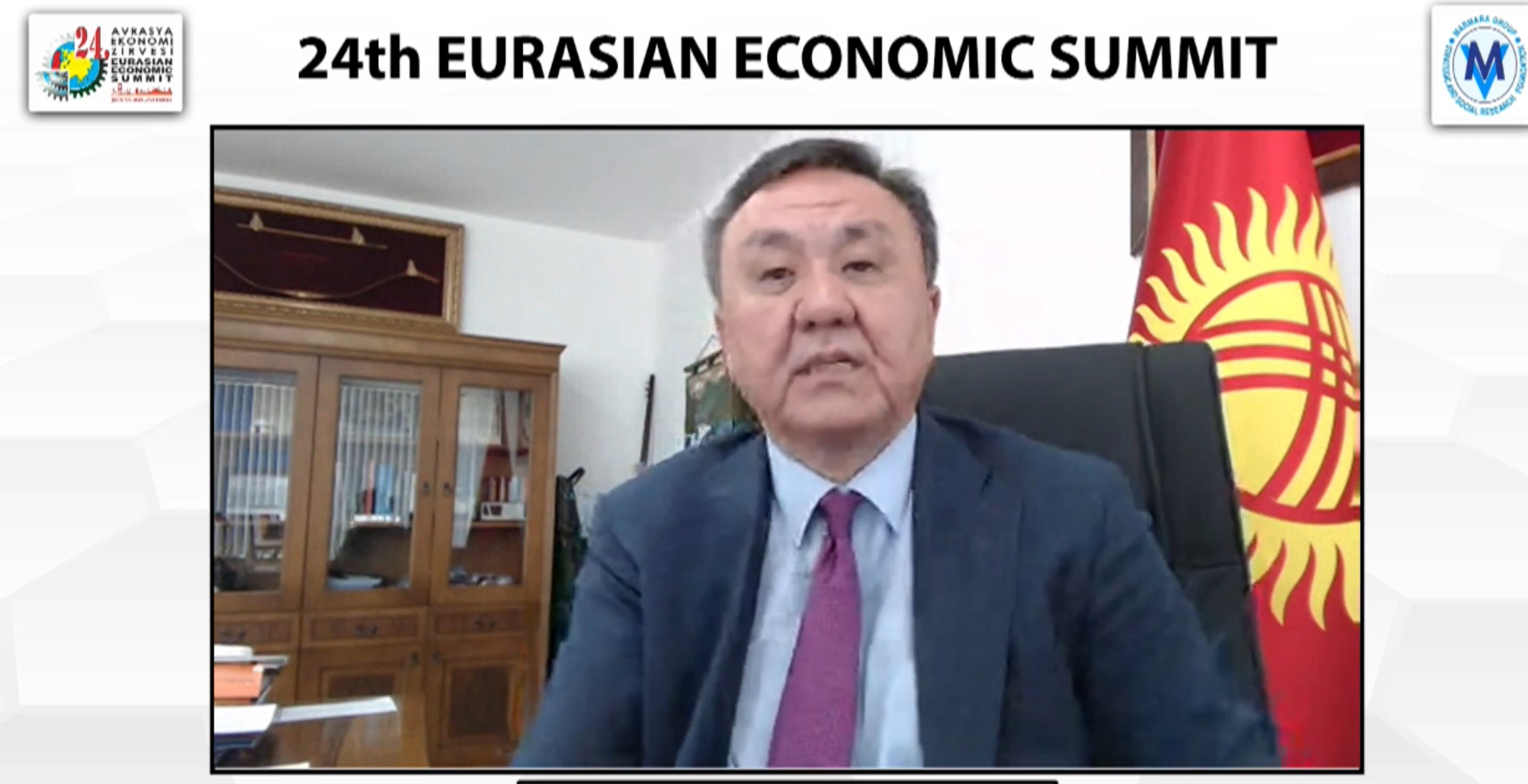
Kyrgyzstan Ambassador Kubanychbek Omuraliev stated that the Kyrgyz Republic, which does not have access to the world's seas and is trying to develop its transportation and communication infrastructures, is one of the first countries to support the belt and road initiative, and that it aims to revive the Silk Road: “It reaches Europe with the Caucasus and Turkey. Countries are still working on the construction of railways. If this project is successful, the export potential of the countries in the region will increase, and a transit highway from Asia to Europe will be established. Cultural and economic relations between the countries participating in this project will increase a lot. Baku-Tbilisi-Kars Railway Project was implemented. In the future, all markets will have a good connection with Central Asia, China and Turkish markets with Europe when connected by railway projects. Kyrgyzstan is a Member of the very vibrant Eurasian Economic Union. It borders Central Asia and the People's Republic of China. Thus, our exports to these countries will be economically profitable. Kyrgyzstan reaches countries with a population of 180 million, such as Belarus and Armenia, duty-free. I am calling out to businessmen: You can come to our country and invest, produce and reach the countries of the region. Investments are protected, our taxes are low. As a country, we need new technology, we support international digital infrastructure development. We are ready to cooperate for the creation of technology and innovation in the green economy, bioenergy, logistics and nanotechnology.

Pakistani Ambassador Muhammad S. Sajjadqazi, emphasizing that the biggest problem is the climate problem even though the pandemic creates opportunities, stated that they protect the forests in Pakistan, try to strengthen the agricultural lands in various regions of the country, and protect nature in urban and rural areas: “These protections will not only slow climate change but prevent it. It will increase our forest area. Green transformation is very important. The Belt and Road Project is very important to us. We signed the Green Development Initiative. The Belt and Road will contribute to the China-Pakistan economic corridor. China is not alone in this journey, international cooperation is very important. We are ready to contribute to the Belt and Road initiative. Pakistan and China cooperate for a modern road. Our country has allocated large budgets to combat climate change. Sustainable development is based on social, economic and environmental factors. We need to develop new ideas in this area.”
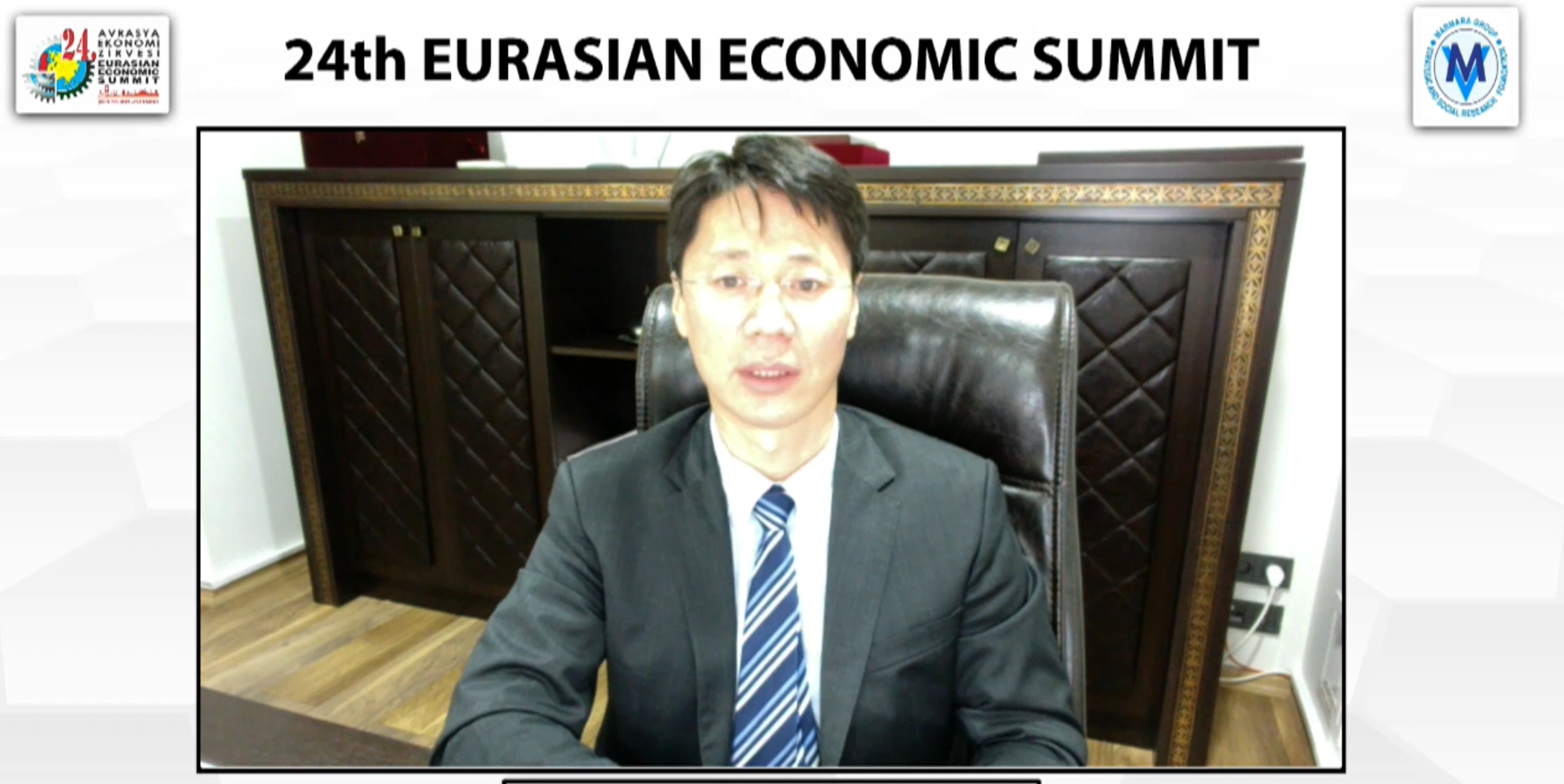
Diplomat (on behalf of Mongolia) Khishigsuren Sharav noted that the cooperation and trade between Mongolia and Turkey has increased, and that it is targeting 15 billion dollars in 2021 by increasing it even more. Noting that Mongolia supports the Belt and Road Initiative, Sharav shared that Mongolia, Russia and China are working to realize cooperation in the fields of economic cooperation, education, health, science and tourism. Noting that they also support the Healthy Silk Road, Digital Silk Road and Green Silk Road initiatives in the infrastructure projects of the Belt and Road Project, Sharav added that Mongolia will contribute to the cooperation with the states participating in the Belt and Road cooperation after the pandemic.

China Institute of International Relations (Beijing) Ma Jingjing said, “We want to move to a green economy by 2035 with our carbon neutral project. The Belt and Road Project is the roadmap for this. We are ready to work for prosperity and the future. NGOs can contribute significantly to the carbon neutral target. China has worked with NGOs to sort waste. Some Chinese NGOs are working to protect biodiversity, prevent desertification and air pollution. Increasing international cooperation is also important. Being green is the first goal of qualified development in the Belt and Road initiative. The aim is to focus on cultural exchange. "Chinese and foreign NGOs will work together," he said.
.jpg)
Dean of the National Belt and Road Academy (Beijing) Prof. Xu Qinhua said that China wants to contribute to the whole world, the Belt and Road is important for the UN's Sustainable Development Goals 2030, 2 billion people live in this region and it is very difficult to reach clean electricity: “The Belt and Road helps countries in green development. It is possible. Green development, however, also requires investment in a technology that turns greener in technology. It is an opportunity for a development model that will reduce carbon and provide a green economy, especially after the pandemic. After the pandemic, green development will be one of the most important issues.”
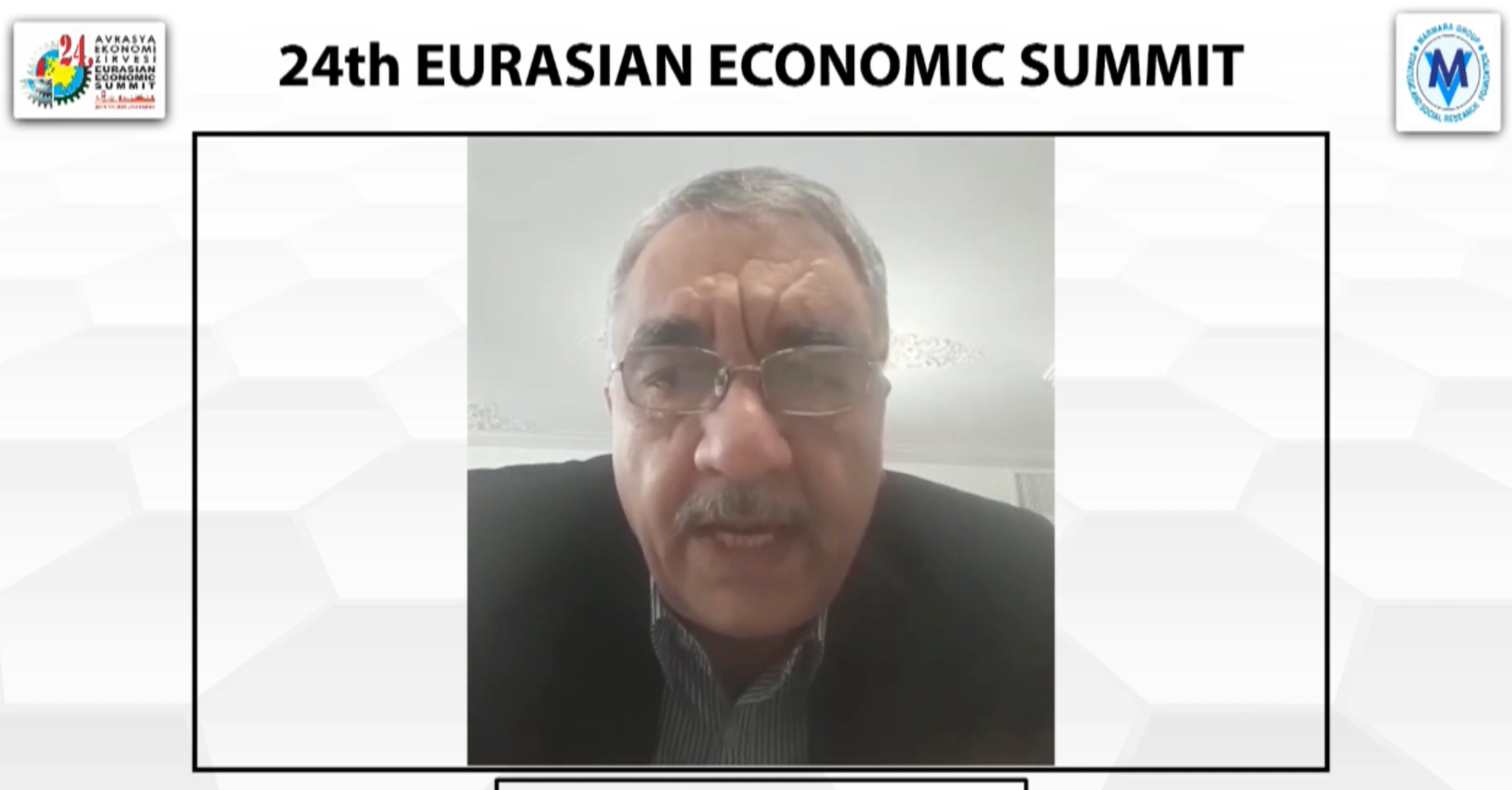
Retired Ambassador of Iran to Norway Dr. Abdoreza Farajirad stated that Iran and Turkey are the two most important countries in the region and they have great potential for cooperation: “The geopolitical positions of Iran and Turkey can contribute to the region. It can come together in the region and form an extremely large regional union. Such as the European Union, the Asian Union. I call it the 4 C's. These C's are a region that includes the Black Sea, the Caspian Sea, the Mediterranean Sea and the Gulf."

Chongyang Institute Dean Dr. Wang Wen explained that despite Covid19, Eurasian integration is accelerating, and all data show that the Belt and Road initiative is advancing: “While China was the poorest country in the world, today it has become the second largest economy in the world. It is the country that produces the most. It has the most consuming market in the world. The leadership of the Chinese Communist Party continues successfully. The Belt and Road relationship enhances Asian and intercontinental cooperation.”
.jpg)
Uzbekistan Strategic Development Center Director Eldar Tulyakov emphasized that Uzbekistan has been carrying out reforms within the strategy of actions 2017-2021 and this strategic document has been serving as a cornerstone in the reforms of all spheres in Uzbekistan. He noted that Uzbekistan has been investing its own resources and the country has been also taking measures to strengthen cooperation between international financial institutions. He added, Uzbekistan already stressed its readiness to participate in the Belt and Road projects through bilateral and regional platforms. He stated that the Uzbekistan’s involvement in the Belt and Road Initiative is essential for ensuring sustainable economic development implementing the most crucial transport and infrastructure projects that can have a positive impact on central Asia as a whole. He underlined that, China considers Uzbekistan as an essential strategic partner and is ready to work together to ensure peace and stability, joint development and prosperity in central Asia and in turn, Shavkat Mirziyoyev, President of Uzbekistan, speaking at the second meeting of the international home of one of Belt and Road, stressed the importance of this project in the socio-economic development of Uzbekistan and also addressed vital initiatives at strengthening interconnectedness in central Asia.
Day 2- 5. Session
The Presidency Council of the session titled 'Our Common Strength is Reaching Safe Harbors in a Stormy Epidemic', 'Our Common Weaknesses: Global Warming is a Bigger Threat than Covid 19' consisted of the following members: Marmara Group Foundation Academic Council Member, Sabancı University Faculty Member Prof.Dr. Ersin Kalaycıoğlu, Marmara Group Foundation EU and Human Rights Platform President, Marmara Group Foundation Honorary Medal Holder (2007) Müjgan Suver, Marmara Group Foundation Board Member, Marmara Group Foundation Honorary Medal Holder (2013) Lale Aytanç Nalbant, Marmara Group Foundation Board of Trustees Member, Journalist Leyla Tavşanoğlu.
Ersin Kalaycıoğlu said that in order to deal with global problems, we have to create global institutions, delegate authority to them and completely abandon nationalism, that the economic programs implemented today, neoliberal policies are basically based on the transfer of income and wealth to the upper income groups, they have seen that this does not work, now they are directly directed to the lower income groups. He said that it is necessary to take some steps to provide more income.
.jpg)
The Caucasus and Azerbaijan Shaykh al-Islam, Marmara Group Foundation Honorary Medal Holder (2020) Allahshukur Pashazade explained that the Azerbaijani people united like a fist and they took back their occupied lands from Armenia and are working to turn Karabakh into a heaven on earth. Pashazade underlined that a new stage has been reached in relations by signing the Shusha Declaration of President Aliyev and President Erdogan with the understanding of "One nation, two states!".
.jpg)
Chancellor of Austria (1991-1995), Owner of the Marmara Group Foundation Medal of Honor (2015) Dr. Erhard Busek said that there is a new reality and there are some dangers and we should act accordingly. Busek pointed out that the basis of a good life is a developing economy.
.jpg)
Alderman Emma Edhem, Chairman of the Turkish-British Chamber of Commerce and Industry, said that under the leadership of the UK, investments of at least 3 trillion dollars should be made for the implementation of the Paris Agreement, then the global temperature increase can be kept below 2 degrees. Stating that Green Finance is an initiative that has taken action, Edhem pointed out that the UK has spent 10 million pounds on green finance and that it aims to be a hub in green and sustainable growth.
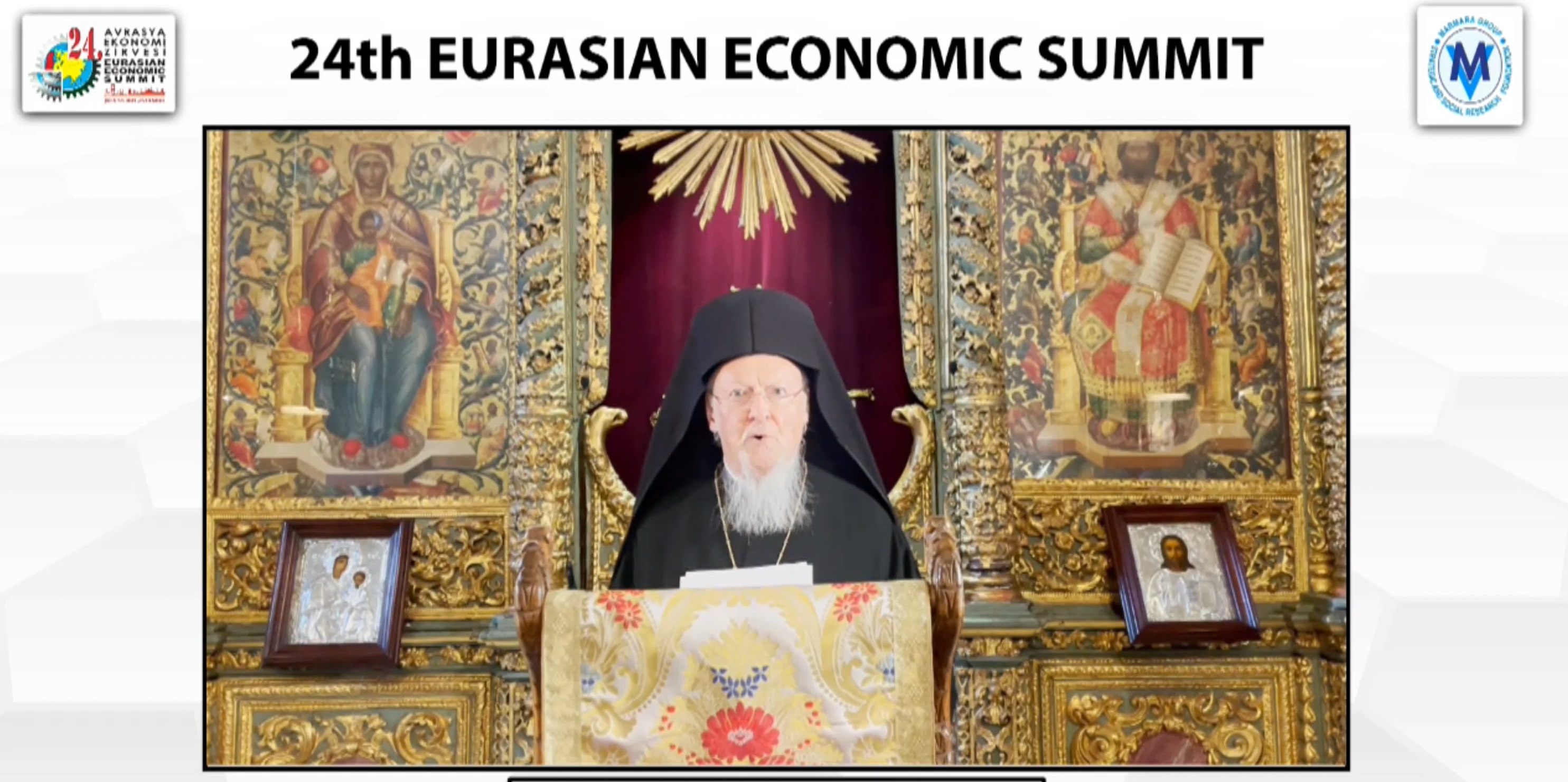
Ecumenical Patriarch, Marmara Group Foundation Medal of Honor Holder (2012) Patriarch Bartholomew stated that we have changed our perspective on the world and that the pandemic invites us to see our mistakes as a collective: “We must work again in solidarity. We need to embrace a very strong ecological and social responsibility.”
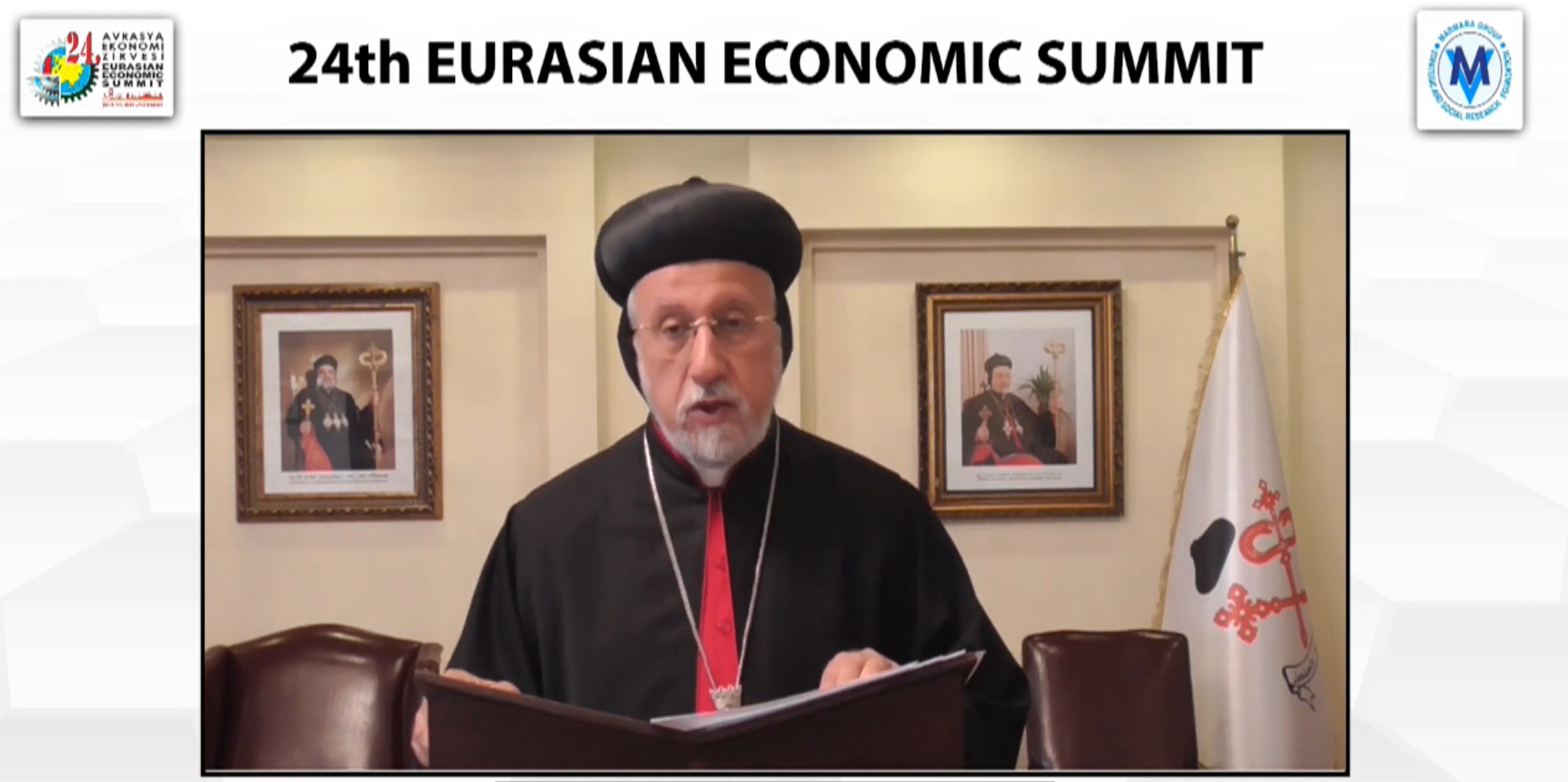
Istanbul-Ankara-Izmir Syriac Orthodox Community Deputy Patriarch, Marmara Group Foundation Honorary Medal Holder (2016) Metropolitan Yusuf Çetin said that, according to people and experts, global warming and climate change are a phenomenon that will bring the end of humanity and the world. Emphasizing that there is no anti-nature expression in monotheistic religions, Çetin said that people can be kept away from certain behaviors that will harm the nature by the formation of abilities such as thrift and humility for global warming and climate change. He stated that events such as conferences and seminars that will raise awareness of people can be held in religious places. He reminded me of the saying, "Remember where you fell, come back from there".
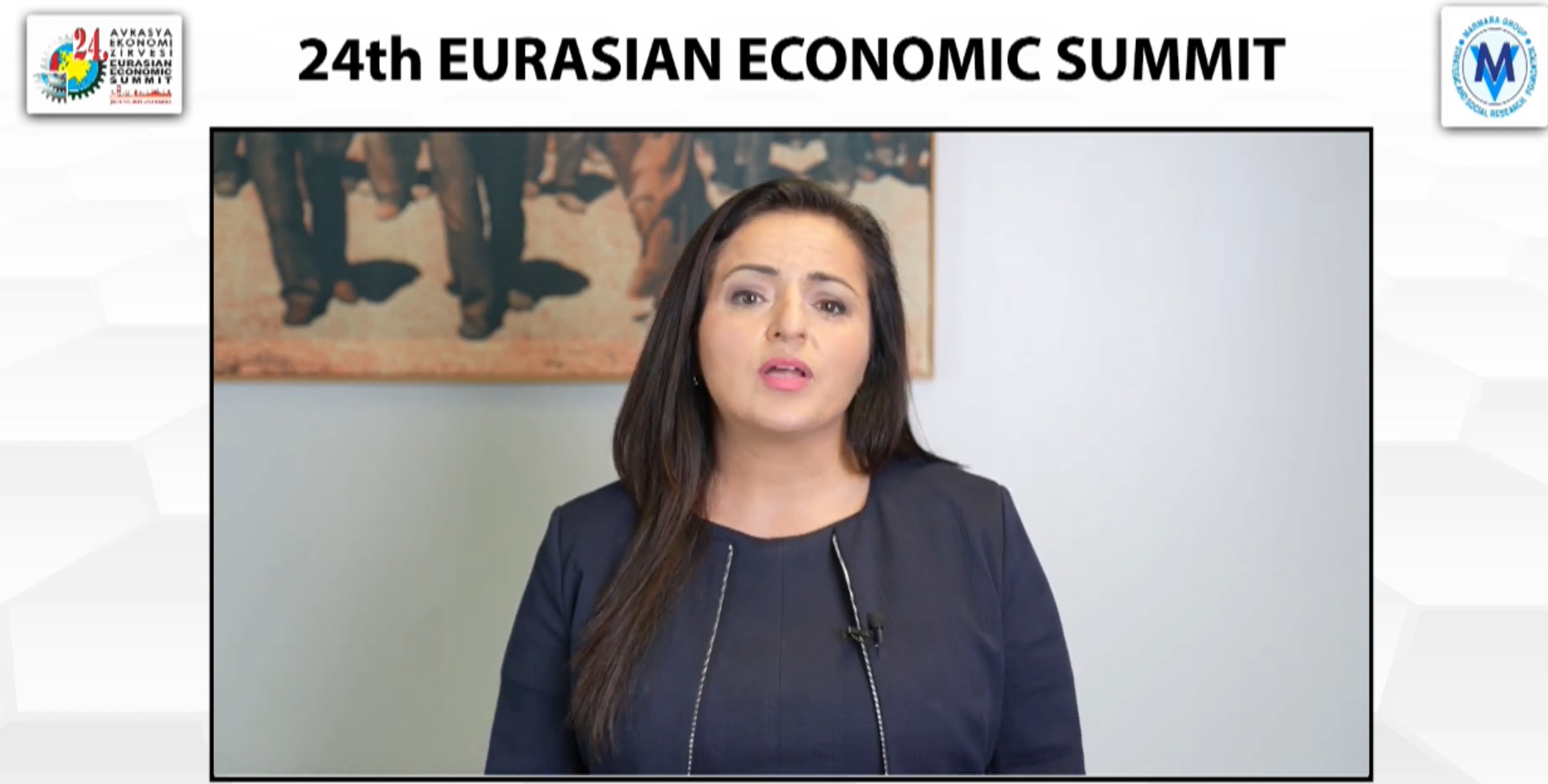
Sevim Dağdelen, Member of the German Parliament, said that they were looking for a solution that envisages international cooperation and that one of the biggest problems of our time is global warming: “We must reorganize our economies and societies consciously. The climate crisis is the greatest weakness in human history. The carbon major report has been written. 100 companies account for 70 percent of carbon emissions in the industrial sector. Disarmament is essential if we want to protect the environment. Green growth alone will not stop global warming. We have to fundamentally restructure the economy. New technology and innovation should be used. He conveyed that the global community will take good action and react to the pandemic.”
.jpg)
Orhan Çanlı, Deputy Catholic Patriarch of Assyrians of Turkey, said, “We have all entered the fearful tunnel of the pandemic. The pandemic is an alarming sign. We can no longer remain indifferent to the inequalities and destructions in the environment. Our home now suffers from the wounds we have inflicted. The pandemic announces the cry of nature even more carefully. What kind of world do we want to leave for our children and our future? So let's take care of our world, which is our mother. ‘God has given mankind a garden, we cannot leave a desert for our children.’ We have not lost hope yet. The command given to us by Allah is to love people and nature.
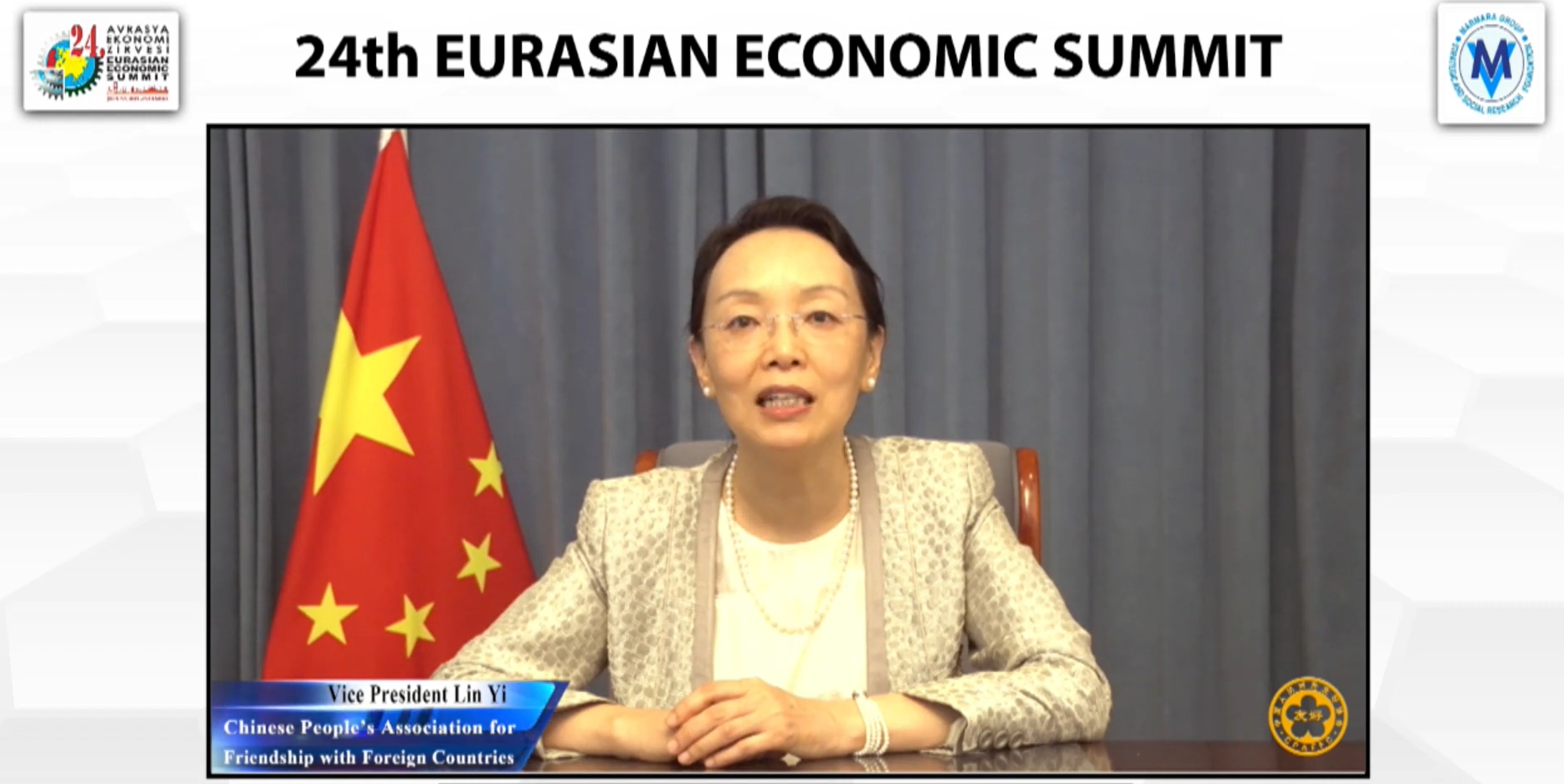
Lin Yi, Vice President of the Chinese People's Association for Friendship with Foreign Countries (CPAFFC), said, “If we work together around the world, we can protect ourselves. At CPAFFC, we are helping people from all over the world,” he said, adding that they have taken global steps to combat the pandemic: “Humanity can achieve sustainable development with their common values such as peace and development, democracy and the complete freedom of humanity. We have to be together to create a common future for humanity.”
Day 2–6. Session
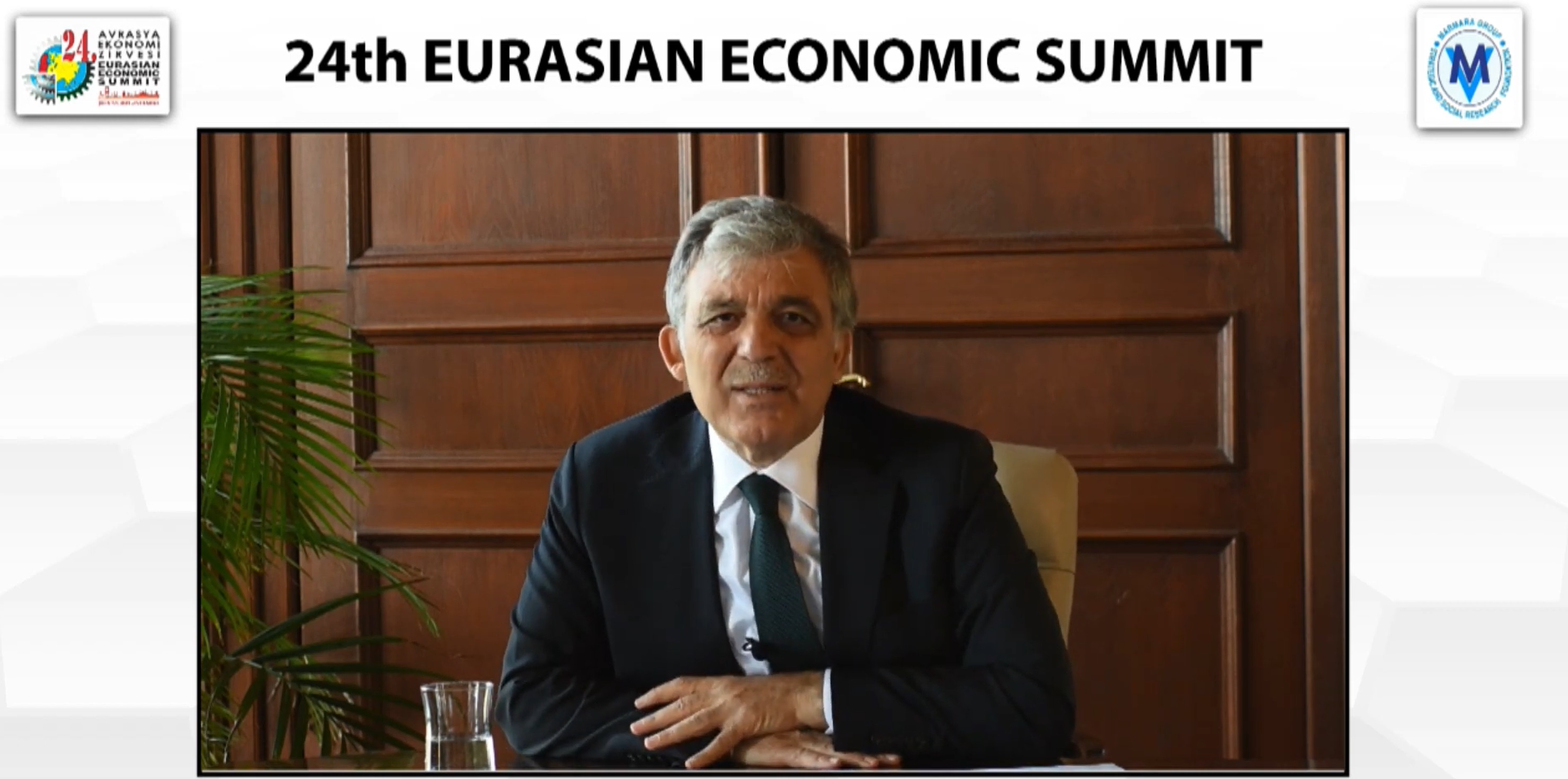
President of the Republic of Turkey (2007-2014) Abdullah Gül said that with the discovery of the vaccine, the end of the tunnel in the pandemic is visible, that it brings education and new methods and technologies, and that these will be a permanent gift to humanity. Reminding that scientists had drawn attention to the issue of global warming and climate change decades ago and said that the world will become uninhabitable, Gül said that the Paris Agreement was signed. Emphasizing the need to develop an international binding system for the solution, Gül stated that Turkey has made significant progress in areas such as wind and solar, and that 50 percent of the electricity is supplied from renewable energy sources: “Scientists say that the point of no return is still not reached. Governments and agencies should do their best. Binding decisions must be fair and just. If this is not done, no one will come close to it. The world belongs to us. Just as the past has entrusted us with humanity, we must entrust it to the future in a livable way.”
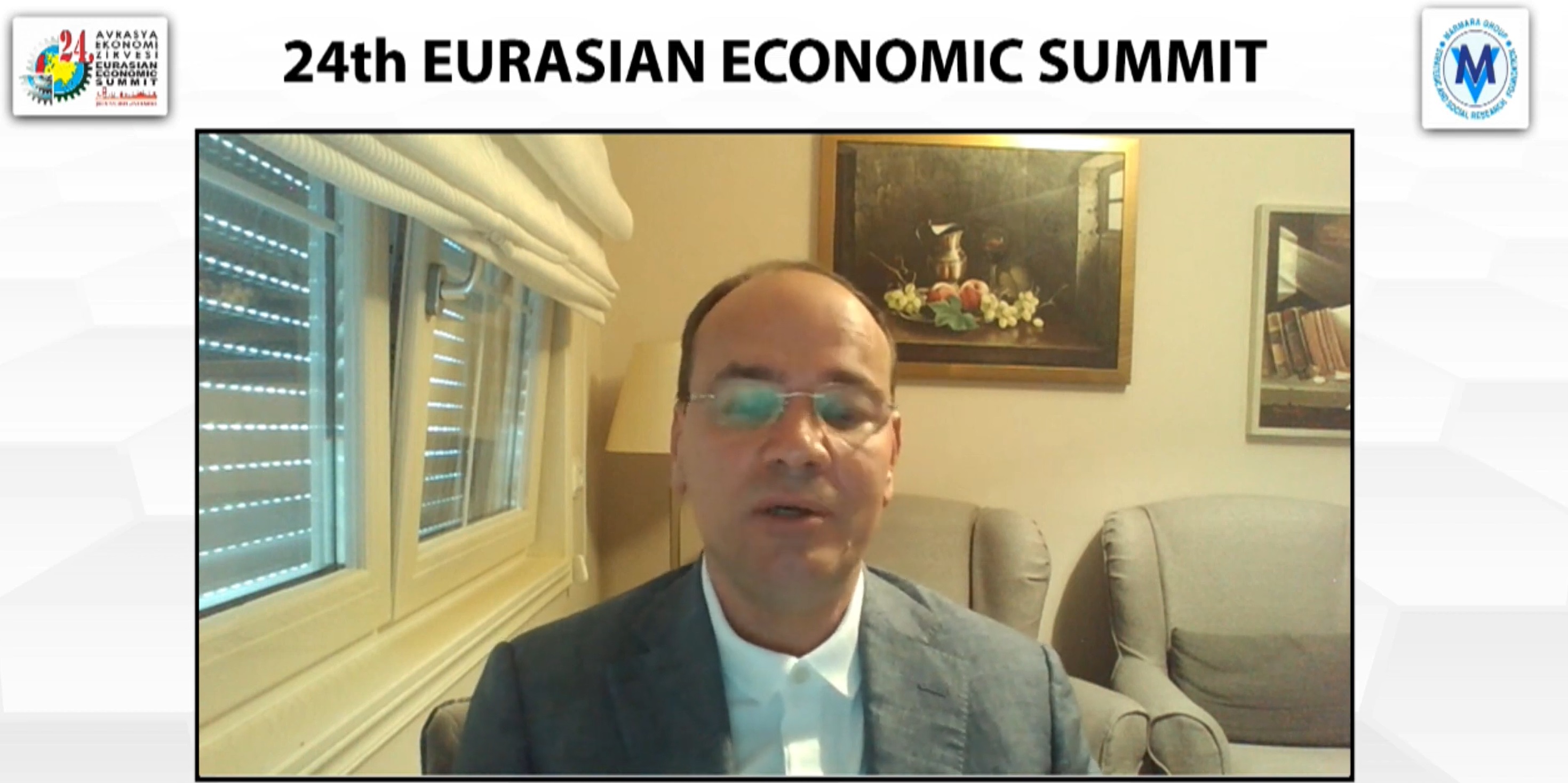
President of Albania (2012-2017) Bujar Nishani pointed out that we stand at a very important point in history, and that we may be on the verge of a disaster beyond the wealth and development experienced, and emphasized that the person at the center of all difficulties must overcome them. Mentioning that immigrant societies create opportunities and that mass migration causes political division and nationalism to increase, Nishani said that everyone needs sustainable development today, that climate change affects the economy and financial stability, and that the world will learn to live with climate change in the medium and long term: “We will solve problems faster if we act together. The world is in a position to deal with international crimes, but it has no strategy to deal with it. Increasing inequality leads to increased corruption. Legal systems may also disappear. When we look at the state of the world and think about the future situation, we may become discouraged. We have to find new approaches and solutions. Data security will be needed more. Internet technology will evolve all social structures. Industry management is also important. We are reducing poverty, but the total debt is increasing. Infant mortality is declining, but unemployment is rising. Energy efficiency is improving, but greenhouse gases are increasing. We are reducing nuclear proliferation, but terrorist attacks are increasing. Mankind gains more than it loses. All challenges must be turned into opportunities. Have the determination to move forward. Determination is required to achieve success. When we are determined, nothing can bring us down. If we start with this resource and idea and agree to build a better future, decision-making and institutional capacity will be positively affected.”
.jpg)
President of the Federation of Bosnia and Herzegovina, Marinko Cavara, said that we have to change the methods and policies we have always been used to, and that climate change is the biggest crisis in front of humanity: “Energy production, smart cities, waste management are emerging as very important issues. NATO addressed the issue as a global security issue. The desired carbon dioxide target in the Kyoto Protocol has not yet been reached. They decided to keep the warming in the Paris Agreement below 2 degrees, but still the target has not been reached. 13% of deaths in Europe are due to air pollution. Bosnia and Herzegovina has created a carbon neutral target by 2050 that will match the EU's goals. It will reduce total greenhouse gases by 12.8%. The pandemic has told us that we are fragile and sensitive. The relations of states were tested. Human activities are creating the most climate change. We have to work together.”
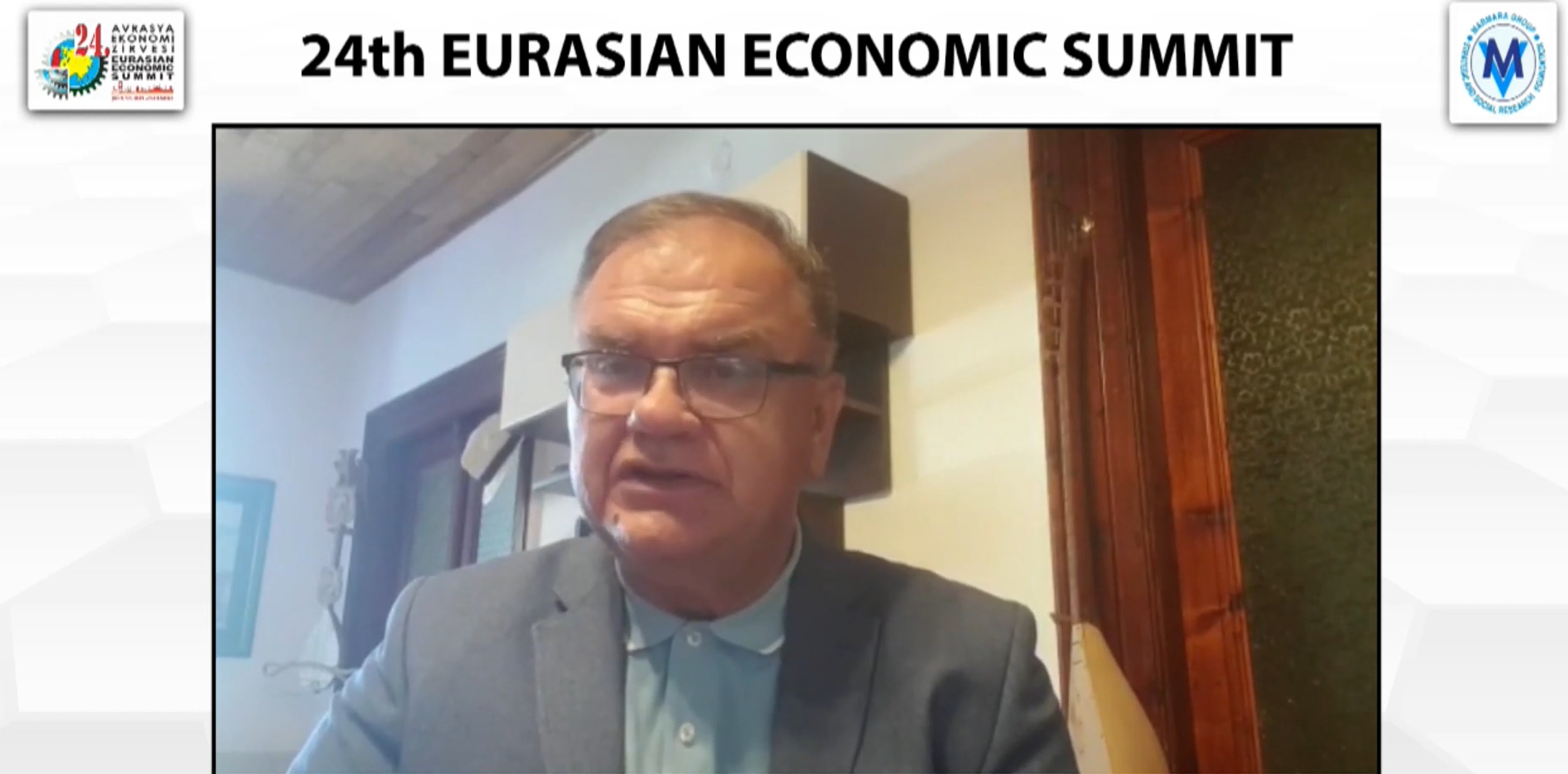
President of the Federation of Bosnia and Herzegovina (2014- 2018) Mladen Ivanic mentioned that the Covid-19 crisis and climate change are both important and difficult issues, especially for developing countries: “Rich countries will all be vaccinated in 2022. Poor countries by 2078. We have to get rich countries to share. In order to be successful, rich countries will also understand this. It is necessary to focus on less carbon, more green energy. If these resources are to be removed in poor countries, support should be offered. These resources are important to them in development. Other energy sources such as hydroelectricity should be created for poor countries. If we do not do this, we cannot achieve success. We cannot be successful if we are selfish. Let's act together. The Eurasian Economic Summit is a part of it. Let's unite, work together and hope we can all succeed together.”
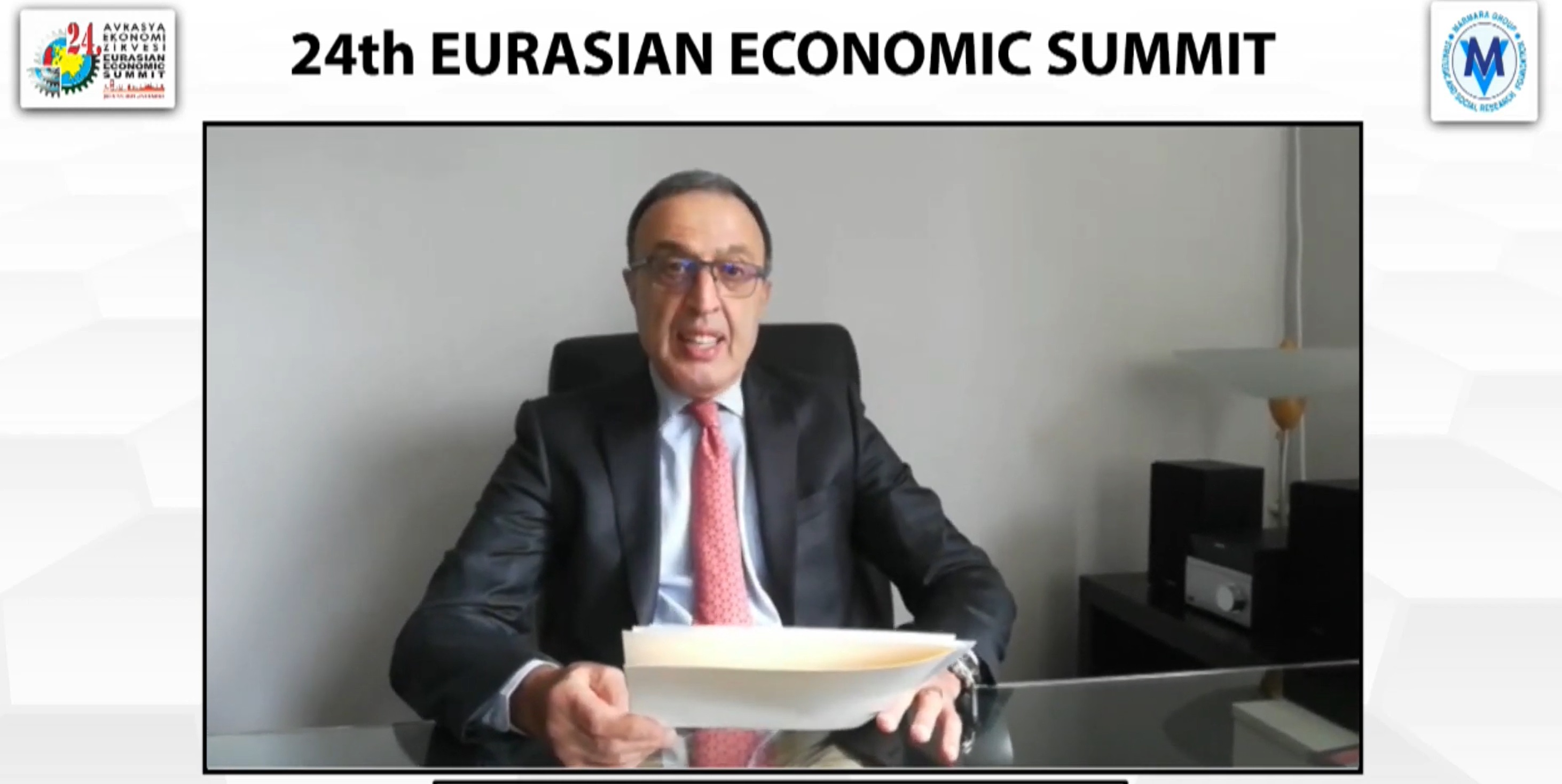
Bulgarian President (1997-2002) Petar Stoyanov, “Is Covid-19 an opportunity to look critically? Is it an opportunity to reshape our future attitudes, not policies?” he asked. Noting that the world is trying to create a common feeling, Stoyanov said that no one is safe until everyone is safe in Covid: “2021 can start a new era. These are very important for the common destiny of humanity. We have to strike the right balance. We must ensure both the development of the global economy, good employment and the protection of the planet. We must continue the good practices of the pandemic. 56 percent of consumers are aware of the impact of their purchases on the environment. Politicians should not forget the lessons learned from the pandemic. These developments give us all a glimmer of hope. Covid-19 can be a positive development. We need to rethink citizens and the resources we share.”
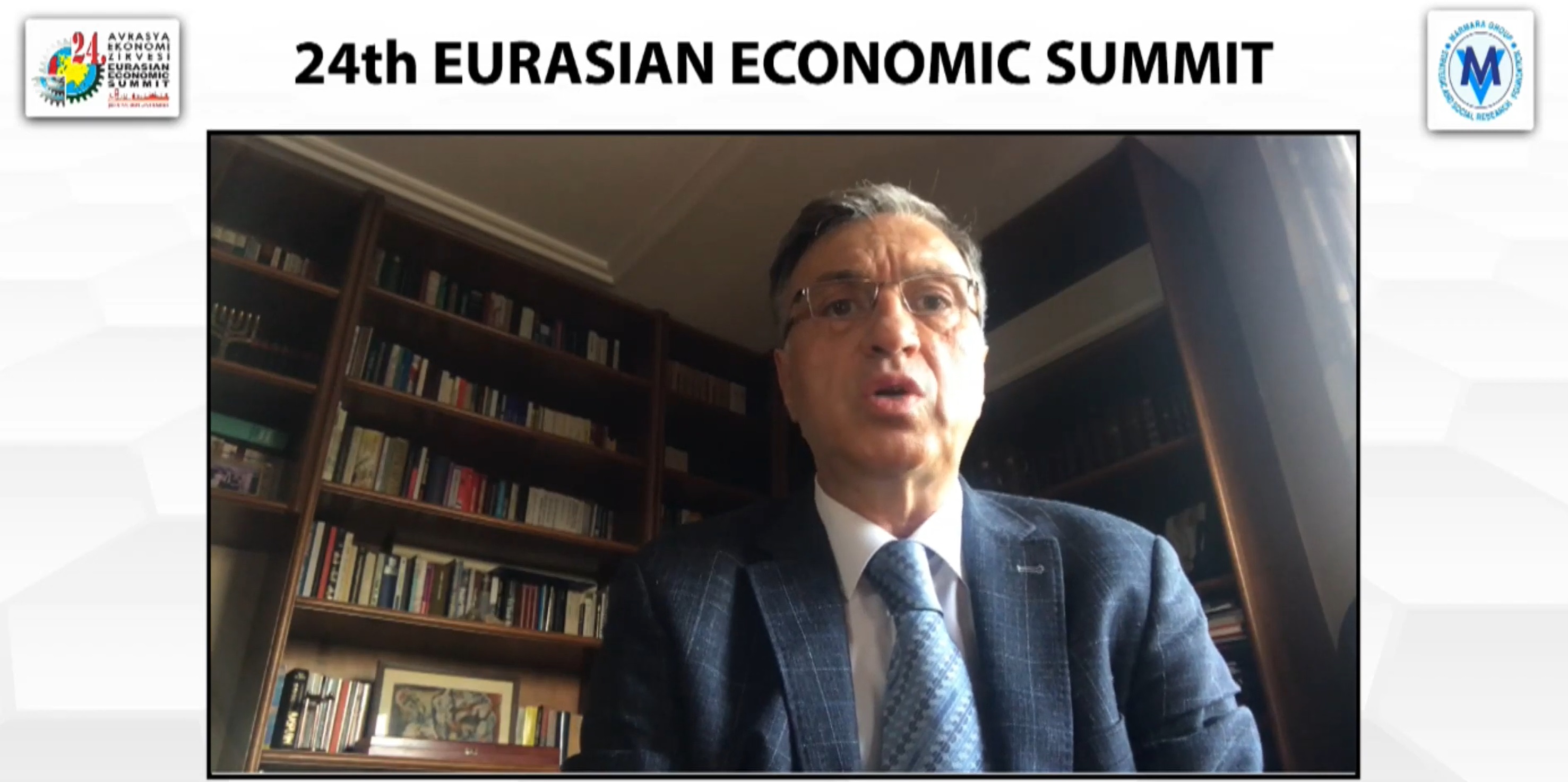
President of Montenegro (2006-2018) Filip Vujanovic stated that one of the challenges threatening the future of humanity is climate change, and said that the global society needs infrastructure change. Referring to the Kyoto and Paris Agreements, Vujanovic said, “The Paris Agreement is binding for the signatories. Montenegro also approved and accepted this contract in 2017. It is necessary to comply with the measures to protect our ecological environment. The continent of Europe will be the first carbon neutral continent by 2050. "The states that have accepted the green agenda have also accepted that they foresee it," he said.
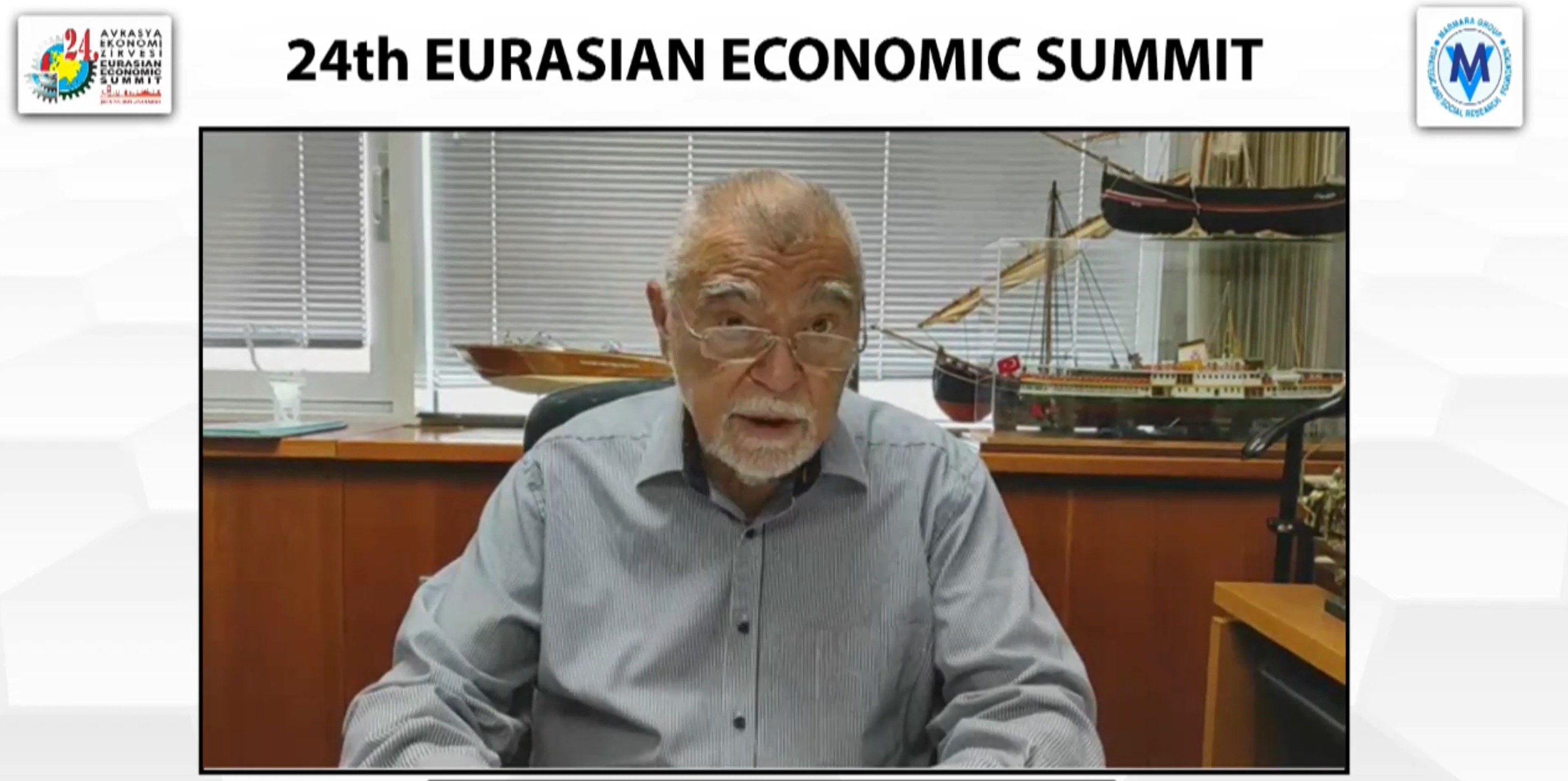
Croatian President (2000-2010) Stjepan Mesic, “How will we survive the pandemic storm?” Addressing the question, he mentioned that the access to the vaccine is not equal everywhere: “The fight is important in the global context. Russia is the first country to vaccinate. However, the EU does not accept the Russian vaccine, it is boycotted. European institutions do not approve the Russian vaccine. Politicization should not be done. We must approach the global problem in harmony. There are even those who call the Russian vaccine hybrid biological warfare. There is an anarchy of thought, second-class politics here. We must reject this. Humanity may never be able to act together. We are connected and dependent on each other, but such dependence is dangerous. Human rights should be recognized equally for all. We should not scare people with false information. We can win this war together in solidarity. Humans can change systems, evolutionary or revolutionary. Instead of fighting the pandemic, we are fighting each other. Our struggle must be together and across borders. We have to negotiate with each other. The future is based on mutual understanding. We can only be successful by acting in solidarity and together.”
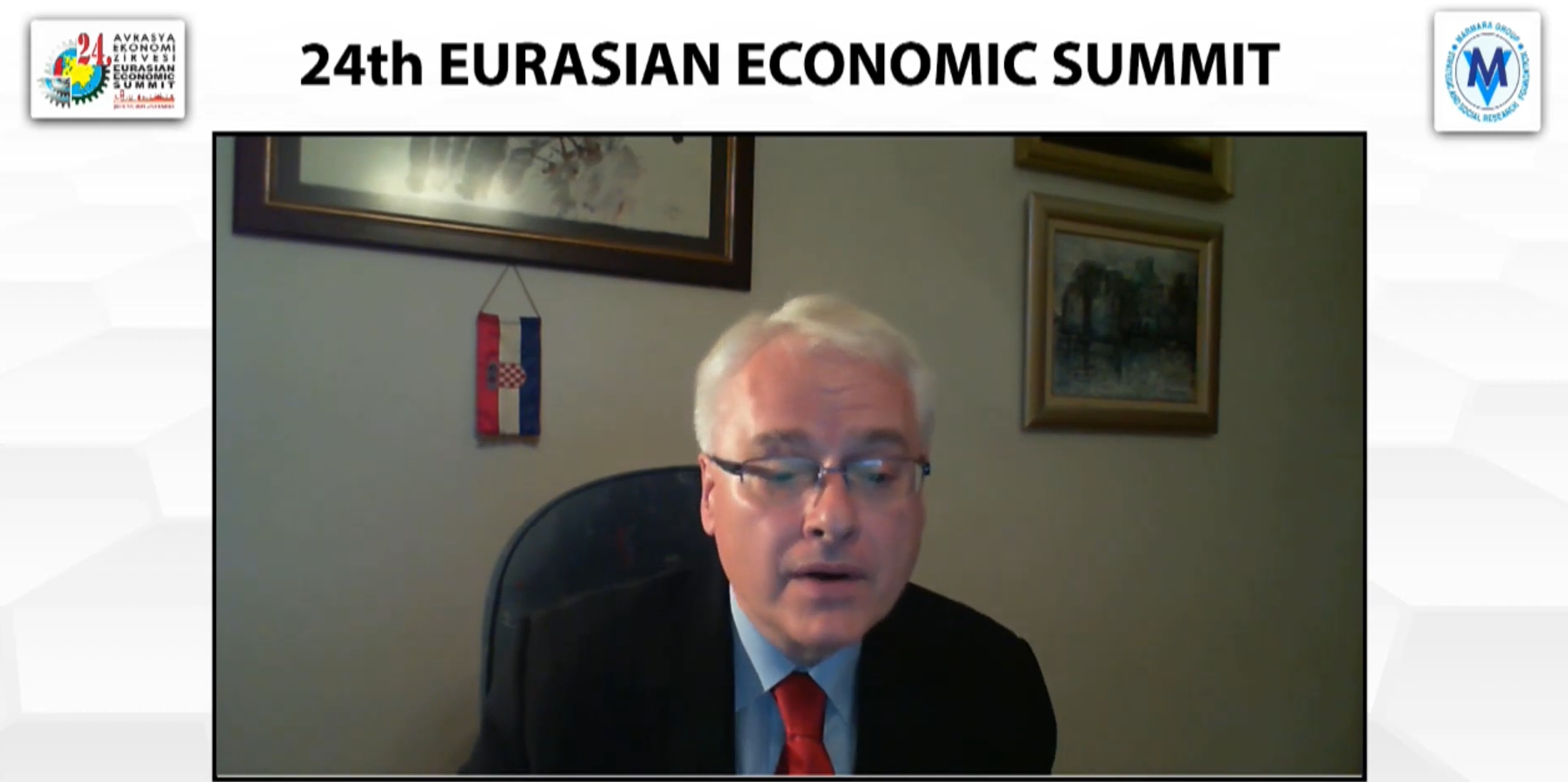
President of the Republic of Croatia (2010-2015) Prof.Dr. Ivo Josipovic stating that pandemics, nuclear wars, natural disasters are a risk to all humanity, Ivo Josipovic noted that people, statesmen, industry and scientists do not understand the danger of the virus for humanity, and they look after their pockets and profits: “The most important example of this is; is climate change. Humanity is not aware of the risks of climate change. Just like those who say there is no Covid-19. Many people in politics and science also reject climate change. They clearly do not accept the specific realities of the climate change problem. How can people in the civilized world reject all the great storms that come our way? The destruction of forests and nature in Africa and the dominance of fires, floods and air pollution in the world are all the result of human activities. Greenhouse gases and emissions to the atmosphere are intensifying. Irreversible damages will occur and there may be destruction on societies. We can say that people's living standards will gradually disappear dramatically. The sea level will rise and we may see large numbers of people fleeing their area of starvation. There will be land and water wars between people. There will also be negative effects on basic human rights. The World Health Organization says that 250,000 people will die annually from climate change in 2030 and 2050. Health and life is the most important right. Physical and mental health are under tremendous pressure. Nature and social changes affect people. Drinking water is an urgent problem threatening humanity. We can expect dramatic political changes in the near future. Inequalities are increasing. Inequality between individuals and countries is increasing, and the differences between generations are increasing. People should be informed about climate change and their awareness should be increased. The most important agreement at the global level was the Paris Agreement. The agreement, to which 190 countries became parties in 2015, drew a global framework by keeping global warming below 2 degrees. As Croatia, we are trying to meet the terms of the agreement. We are trying to reduce emissions of greenhouse gases by 30 percent by 2030.”
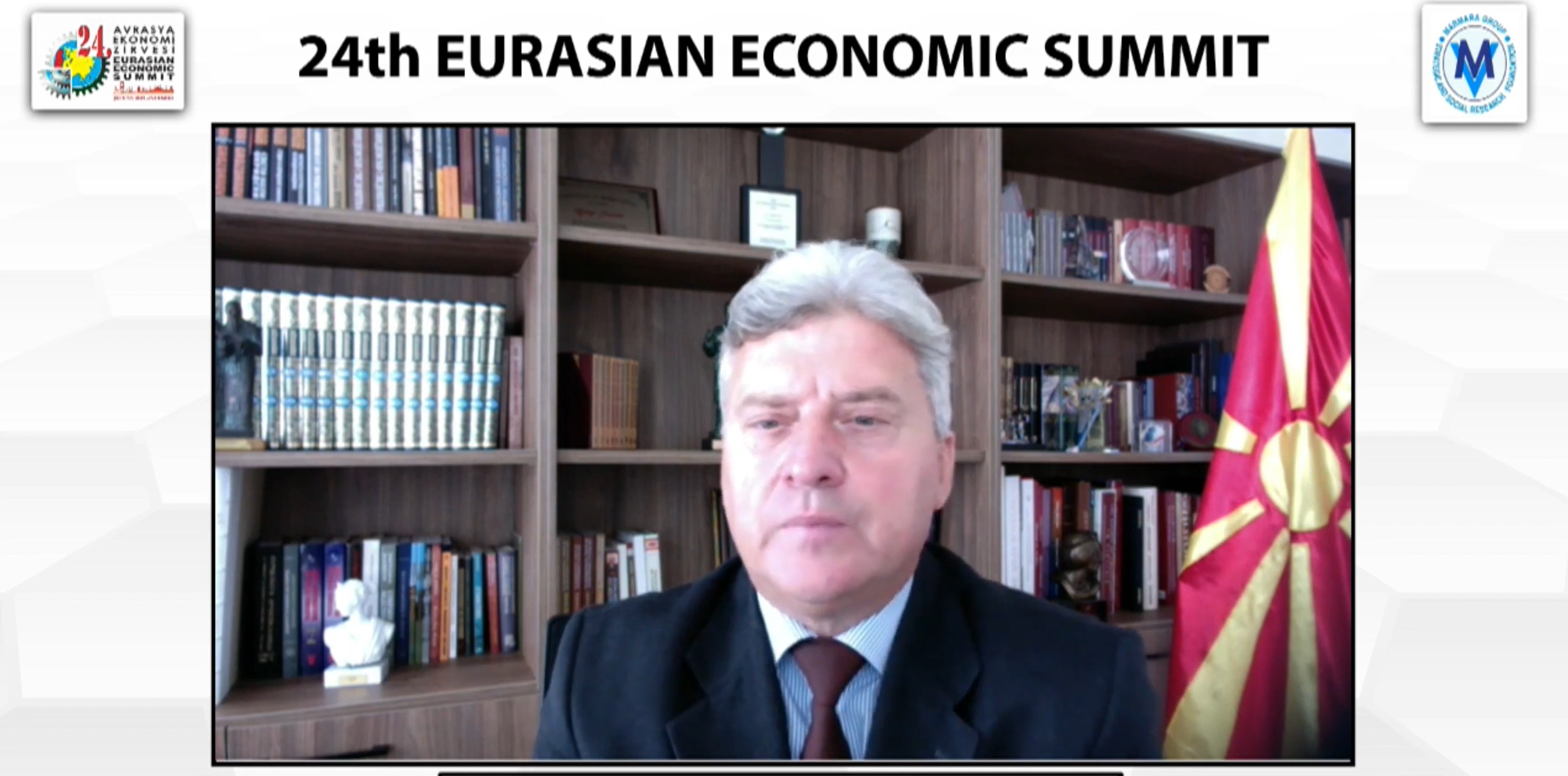
President of Macedonia (2009-2019), Marmara Group Foundation Medal of Honor (2018) Gjorge Ivanov, stating that great expectations create great disappointments, expressed that the leaders of rich countries have failed in the last 10 years as a result of the agreements made, promises and efforts regarding climate change. . He stated that the Paris Agreement has been accepted by 196 countries and that there is a commitment to the agreement on greenhouse gas reduction. Noting that changing weather conditions and natural disasters cause 320 billion dollars of damage, Ivanov asked whether the Paris Agreement would be implemented: "We will see whether China and the EU will give up coal in 2030, and whether there will be a 30 percent reduction in greenhouse gases. The USA also became a party to the convention.” Reminding that every individual has obligations, Ivanov said that Biden said that he will replace fossil fuels, that this will create a completely digital market, and that this new market will be dominated by the US financial oligarchs at enormous rates.
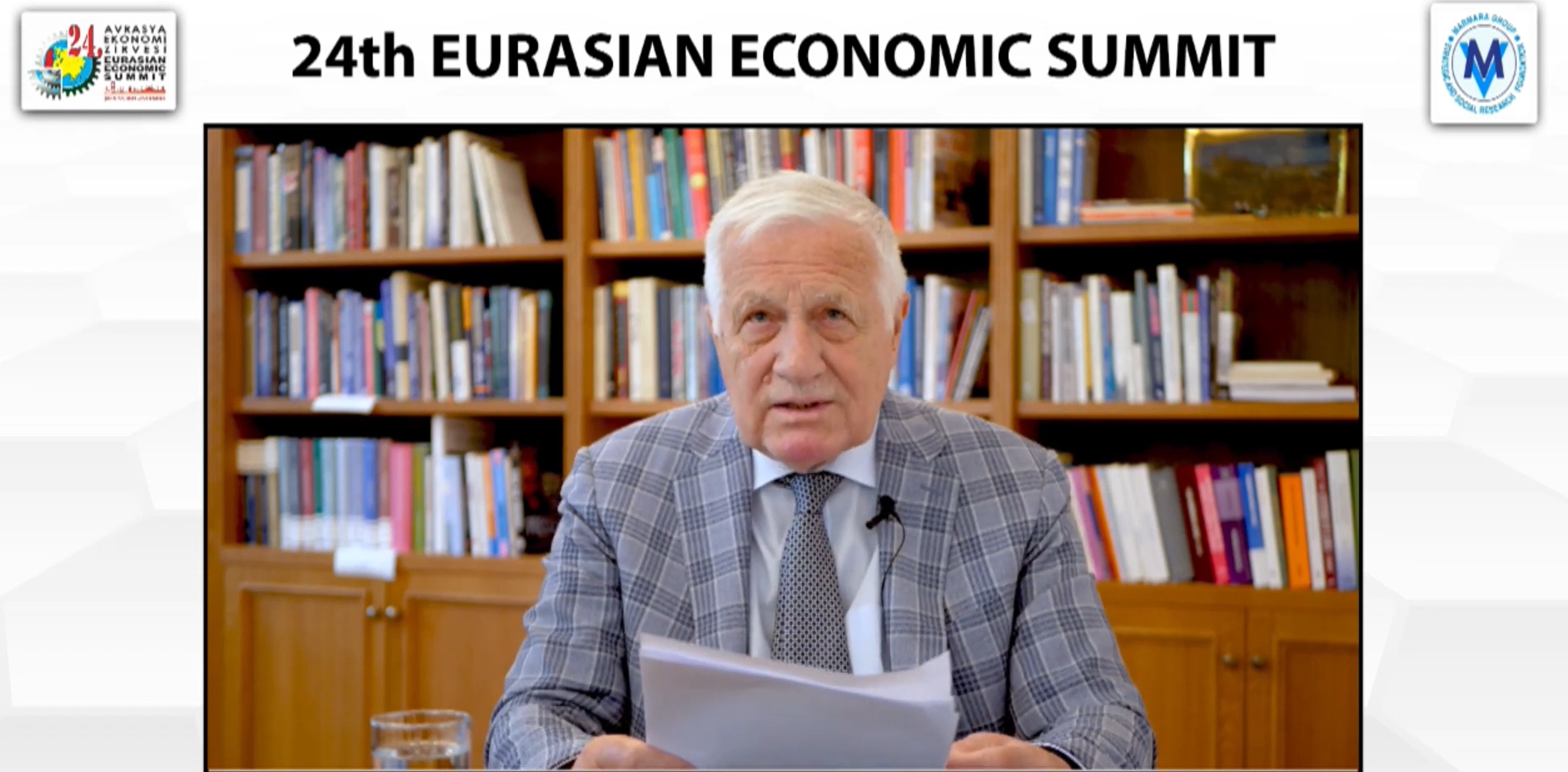
Czech President (2003-2013) Vaclav Klaus pointed out that the loss of children in this period in terms of education is great: “Harry Kissinger says; 'Human health is temporarily adversely affected, but its political and economic consequences will be affected for generations', this is my opinion. Decisions were used to limit a number of freedoms. Global top-class experts were thought to be managing this issue. Transnational names are all over the world and are criticized. I'm afraid humanity deserves nothing. No one can give humanity a better life. There is a big difference between man and humanity. Humanity is not an expression of science, not an entity. People, families, nation states, we have to look at this. I am against the global-ism supplement. This is a doctrine. Globalists reject the nation-state. I am not a citizen of the world. I am a citizen of the Czech Republic. The doctrine of human rights is at the core of the global order.”
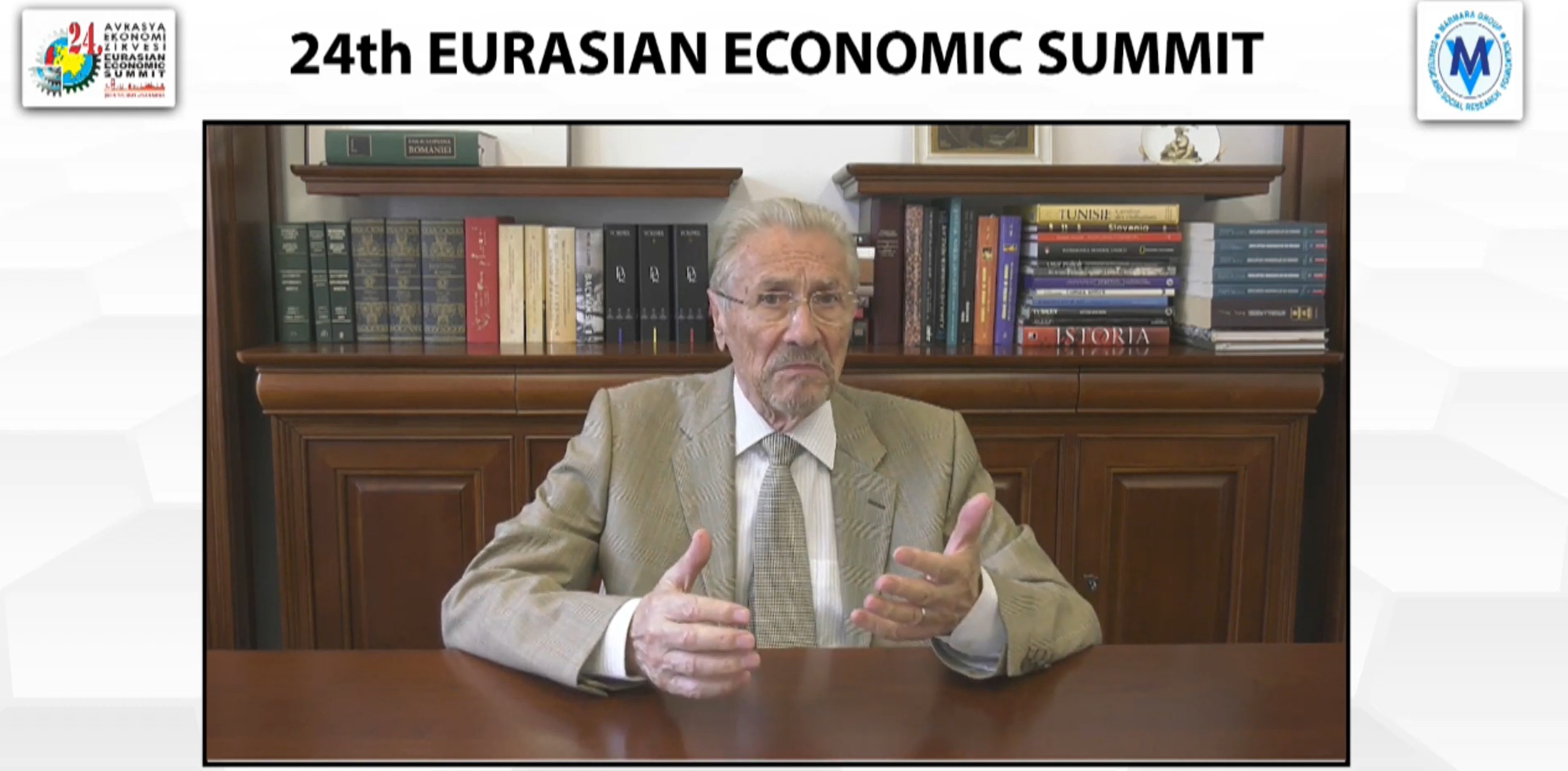
Romanian President (1996-2000) Emil Constantinescu, emphasizing that we still have to come together online even though the Pandemic has subsided, said, “I'm sure you all thought about Asian peoples once. China is much more than that,” he said, and asked what is the next step for China’s next recovery: “The future of China will lead from here. When it comes to China, normal means growing up. China has a geological fact. China has become a superpower. They were acquiring mineral resources together with Russia. Railway networks, roads will be permanent. Processes and networks are long-term.” Noting that the pandemic hit the countries very badly despite the economic and political forces, and the economies were ineffective, Constantinescu said, "The correct use of resources will determine the post-pandemic recovery."
.jpg)
The President of Moldova (1997-2001) Petru Lucinschi mentioned that the pandemic brought a lot of responsibilities in politics, economy and social areas: “Moldova is a country with very strong ties of kinship. The country is small, when people get sick, people go to each other and write prescriptions. Most recovered without medication. Most are immune to symptoms and disease. Since international relations do not go well, the sanctions of politics on the economy are bad. We experienced this in Moldova. I'm in favor of countries producing something other than sanctions. More sanctions are applied in mutual relations. The UN needs to come up with a new solution to such conflicts. We need to find ways to reassure each other.”
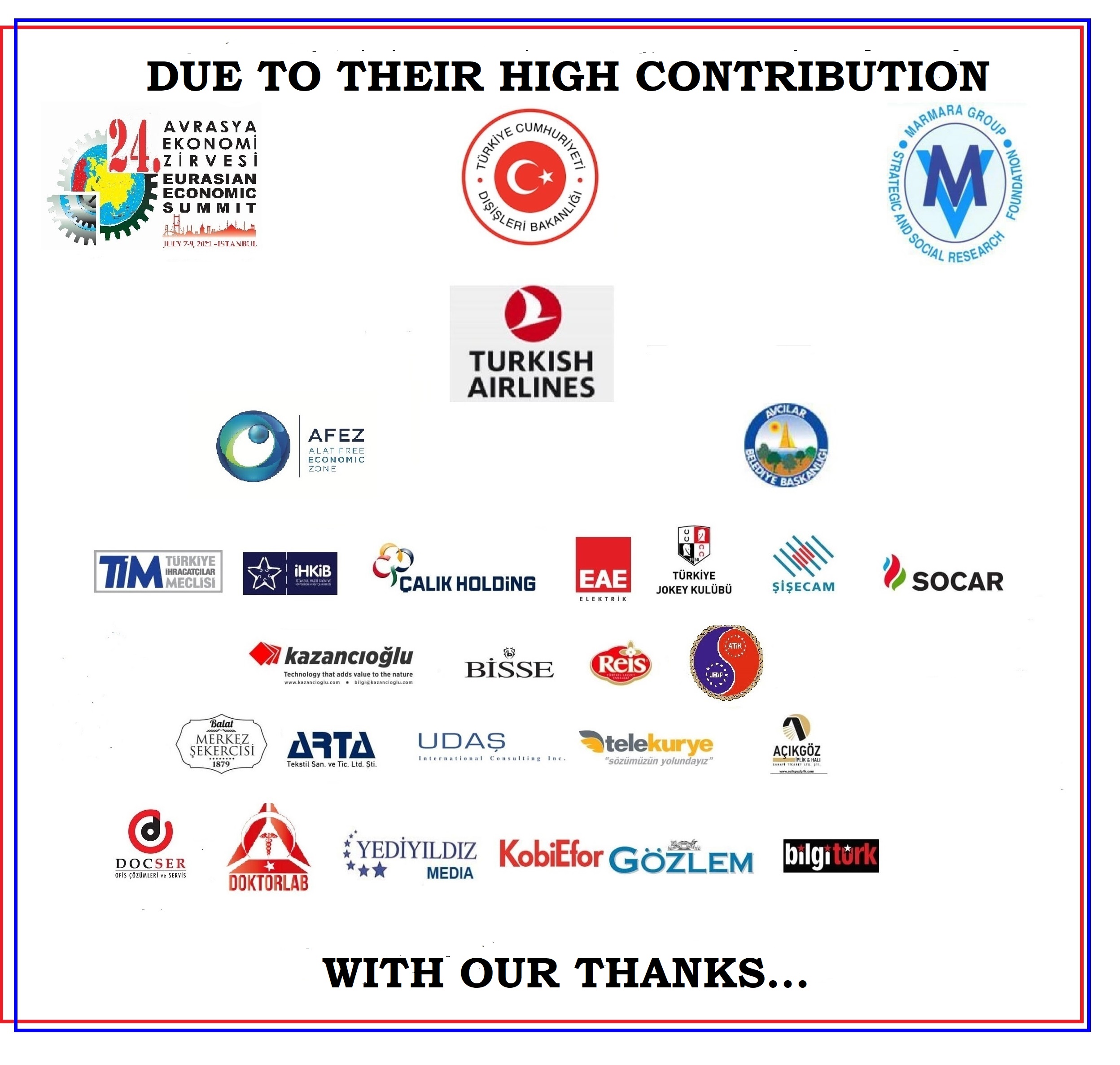
https://www.youtube.com/watch?v=B2Yyad9Gqng


